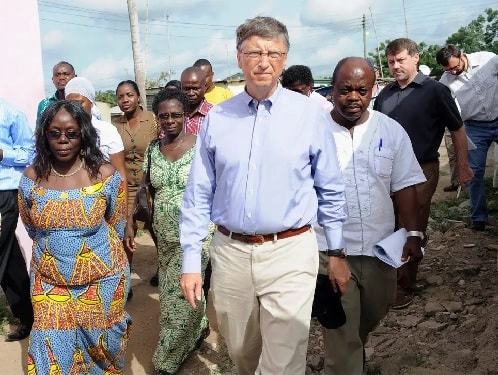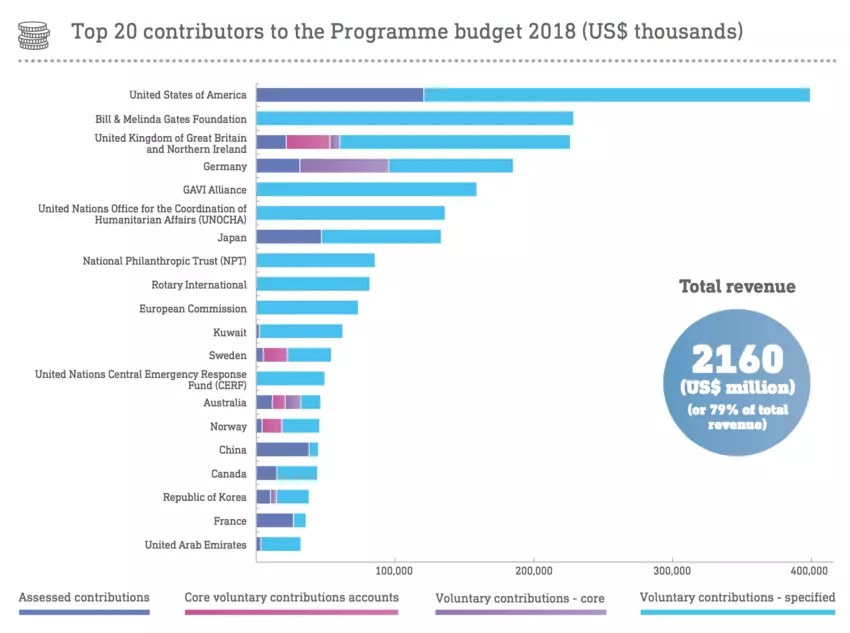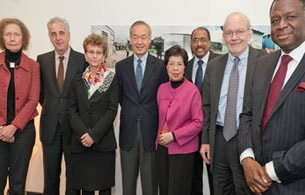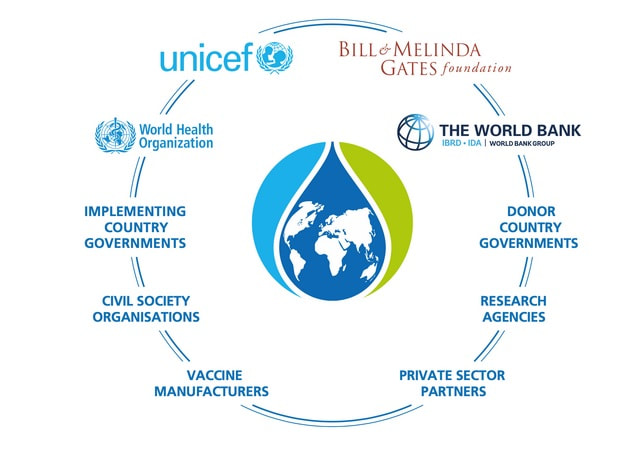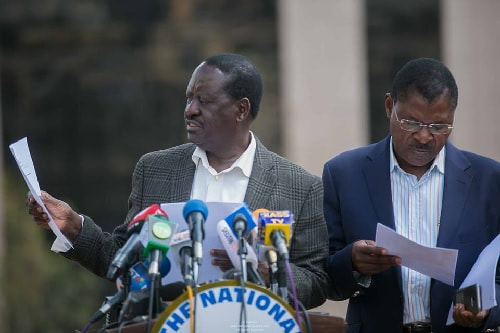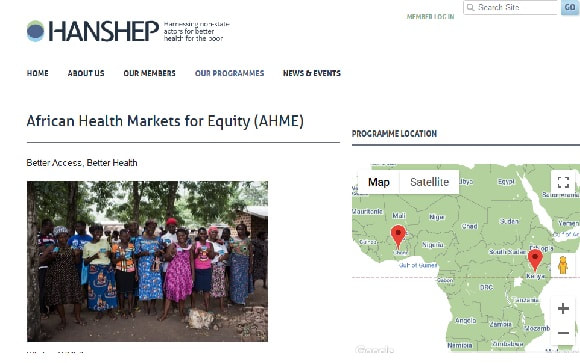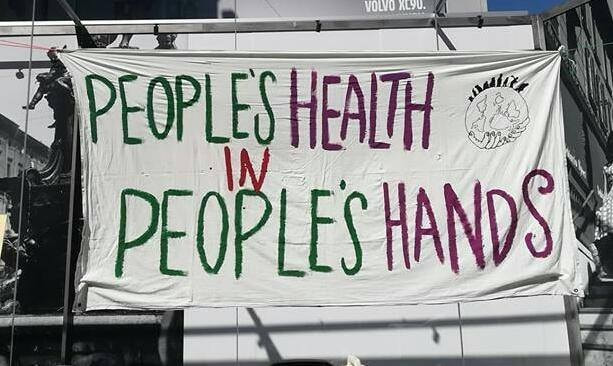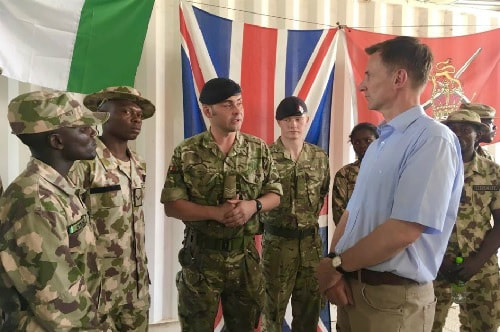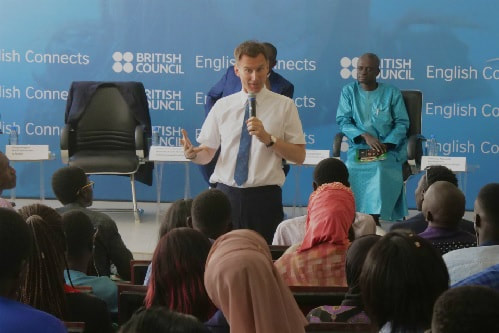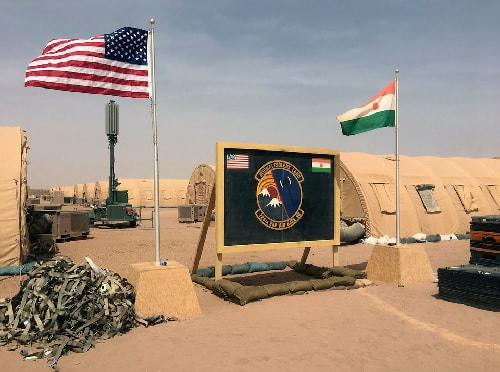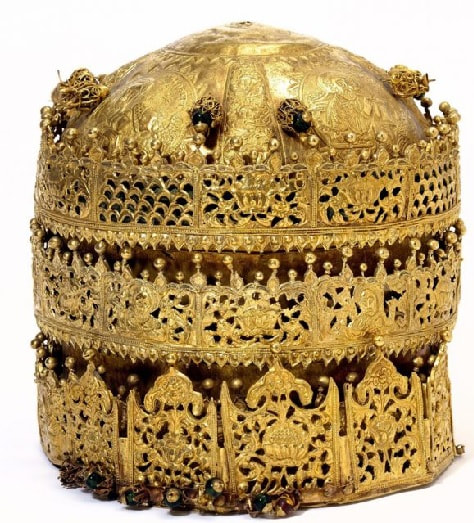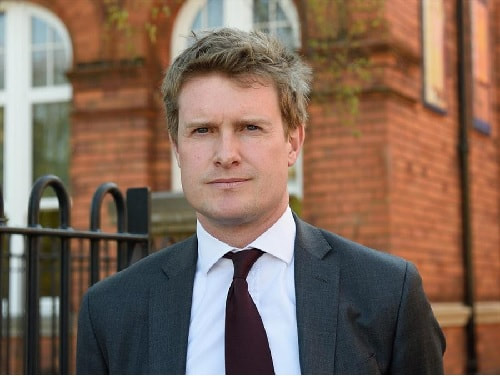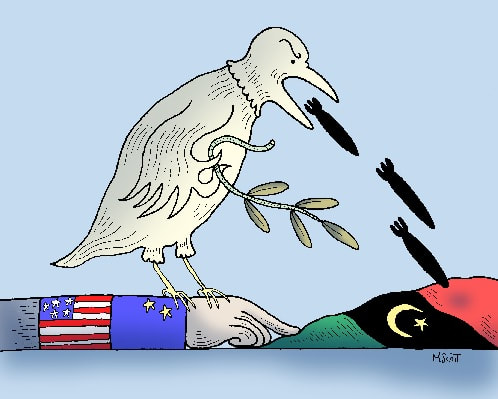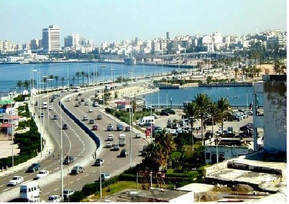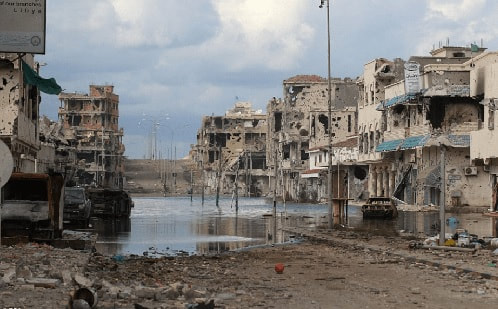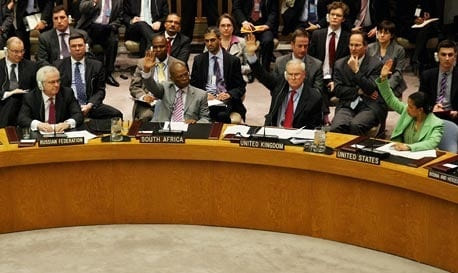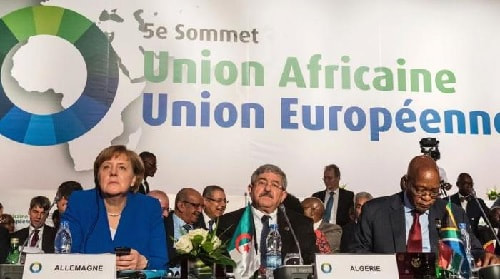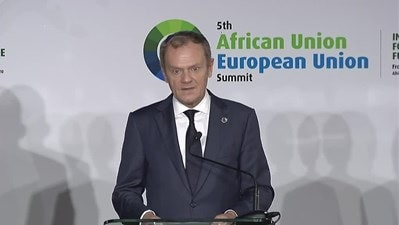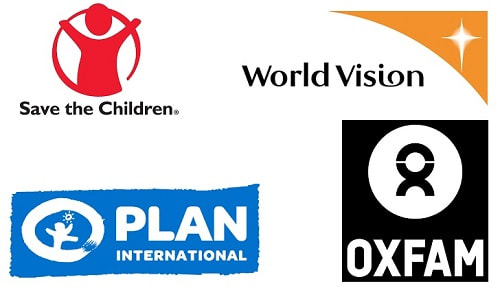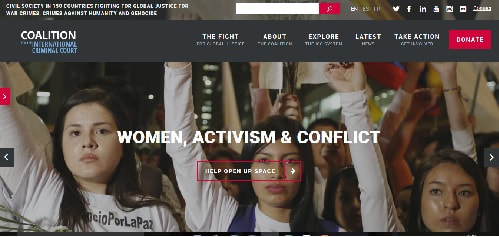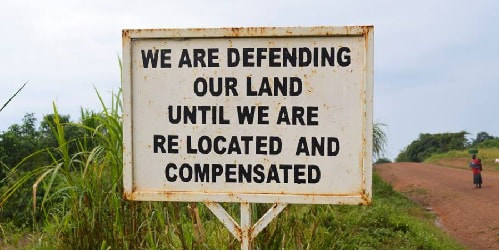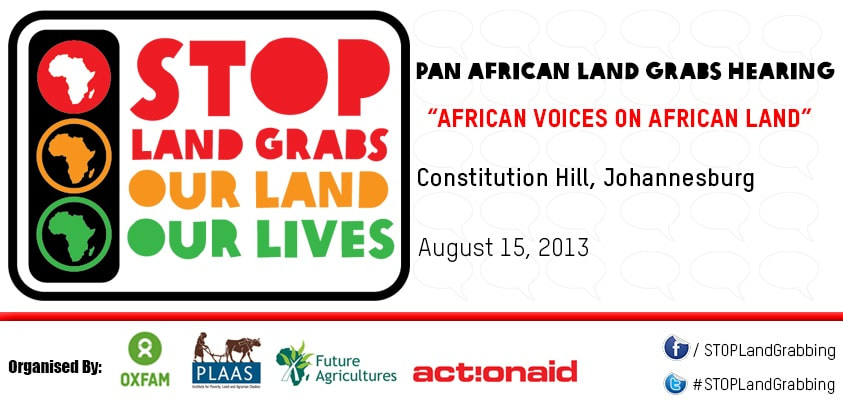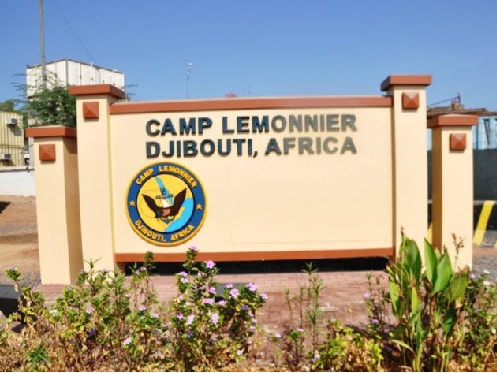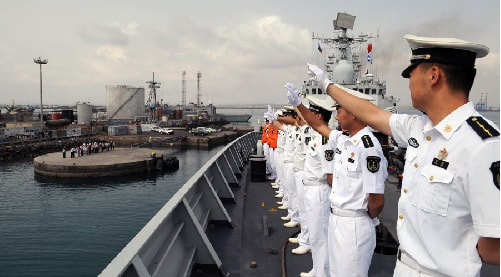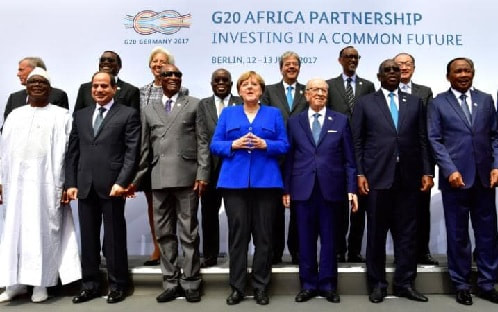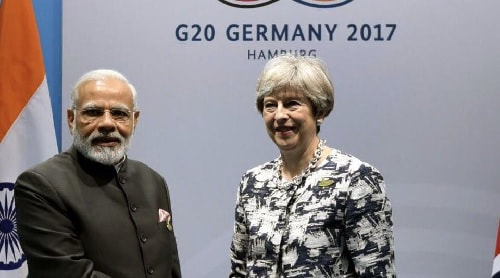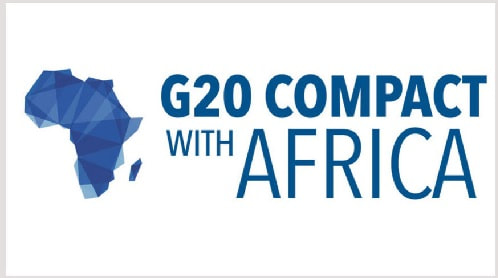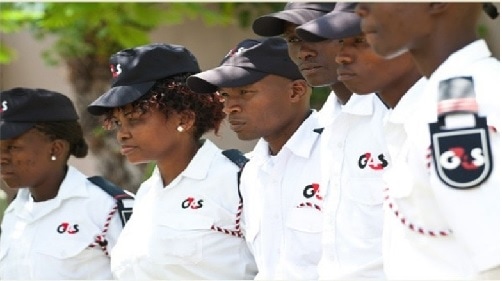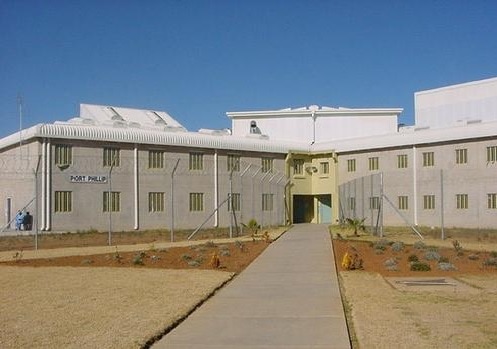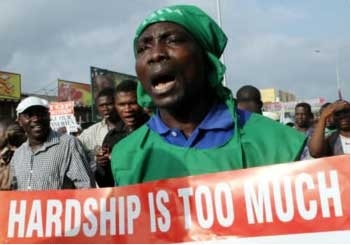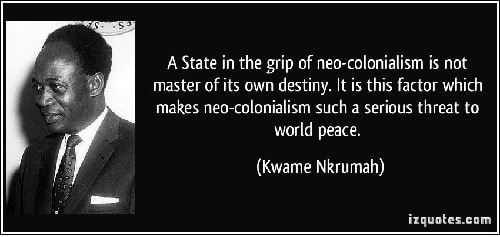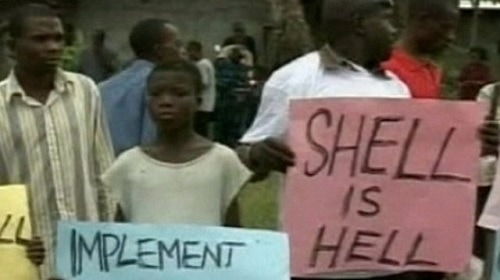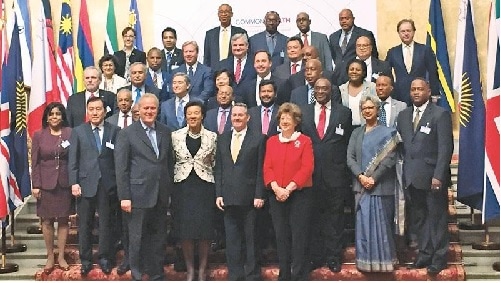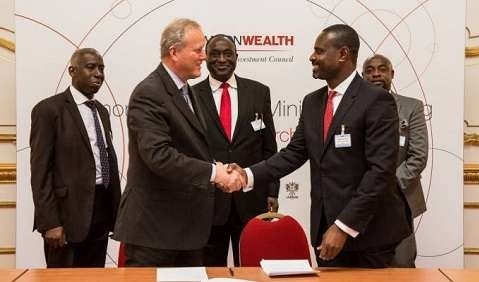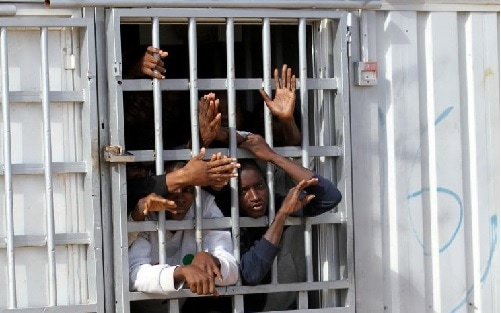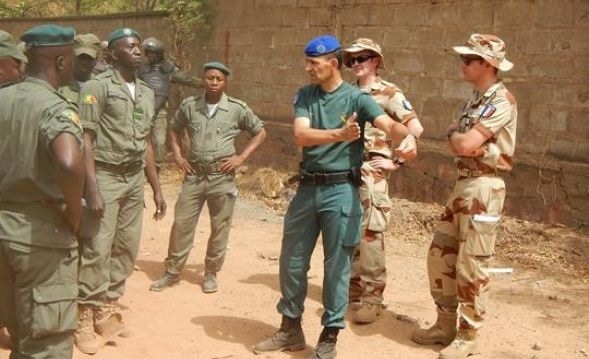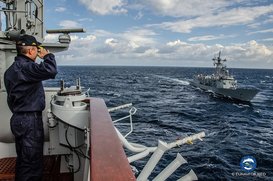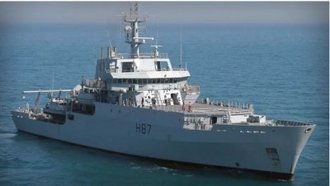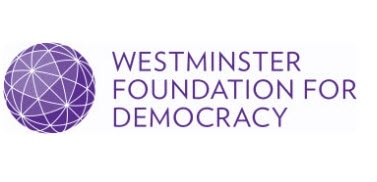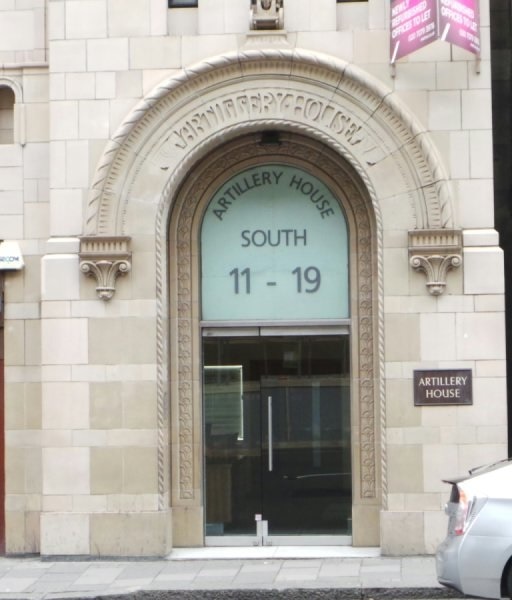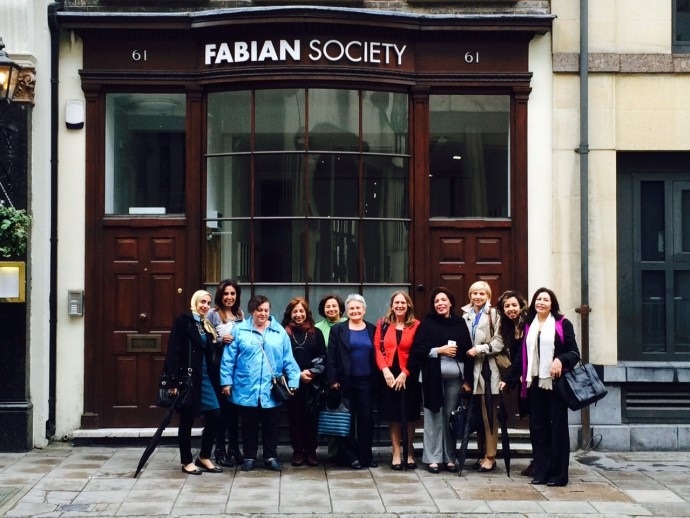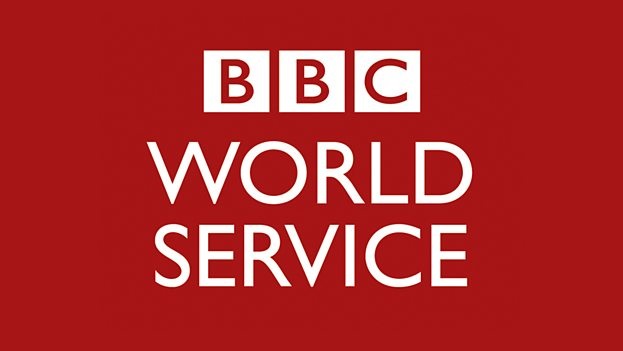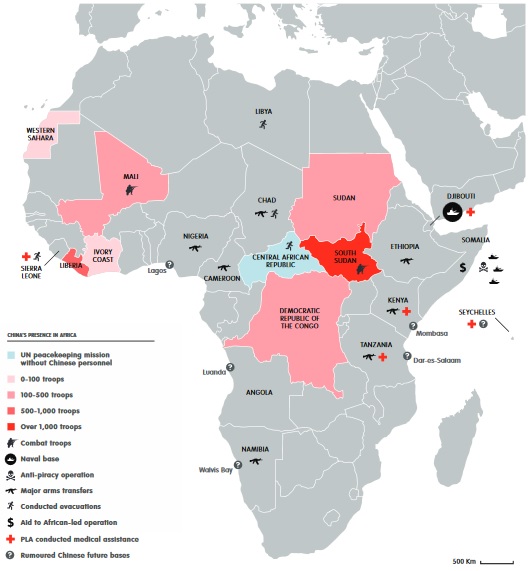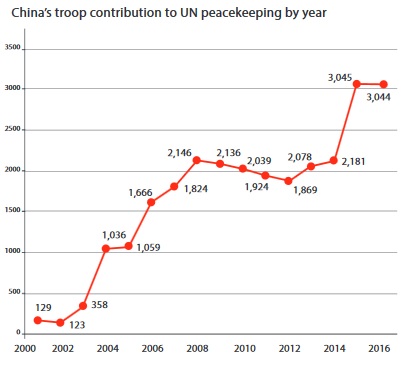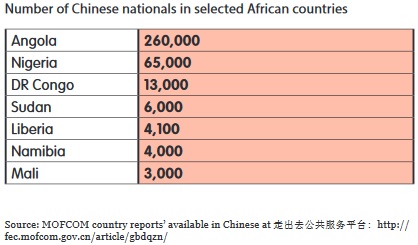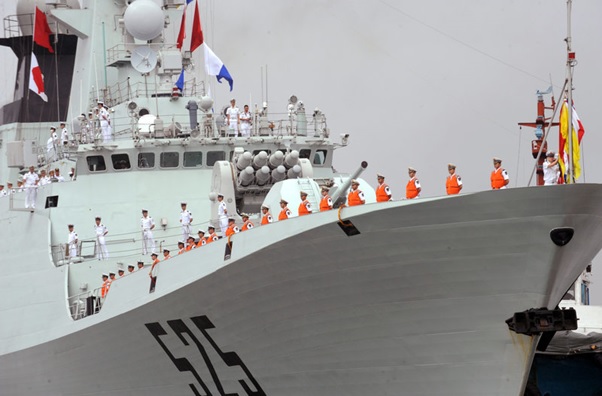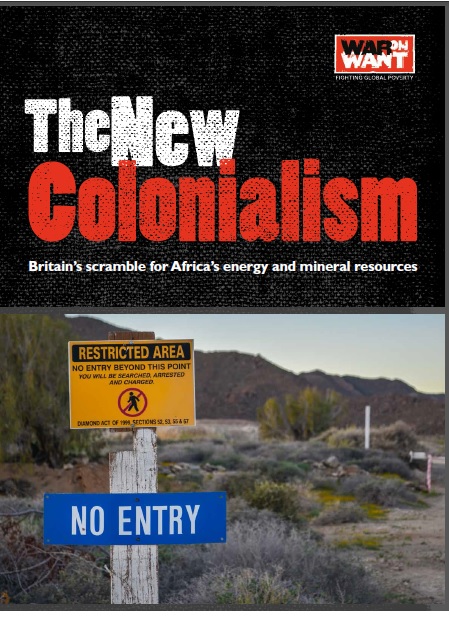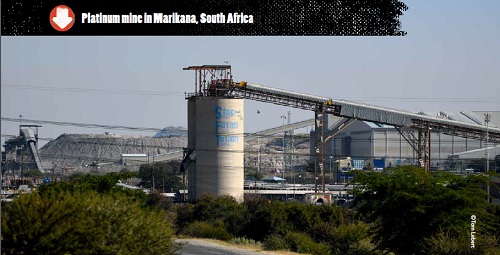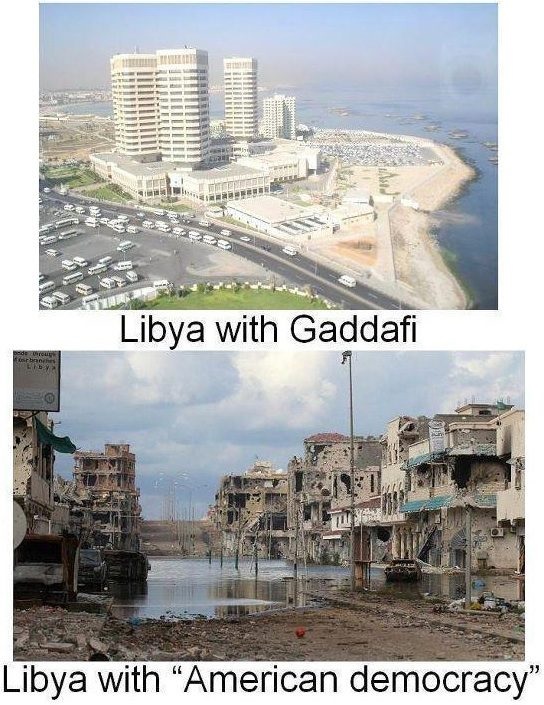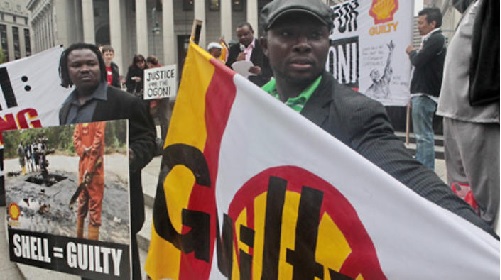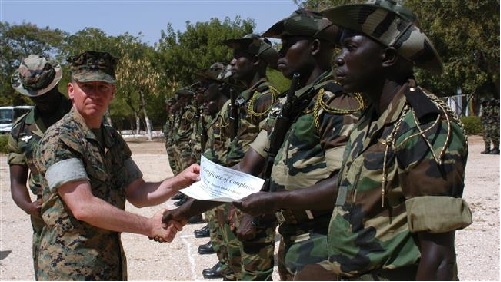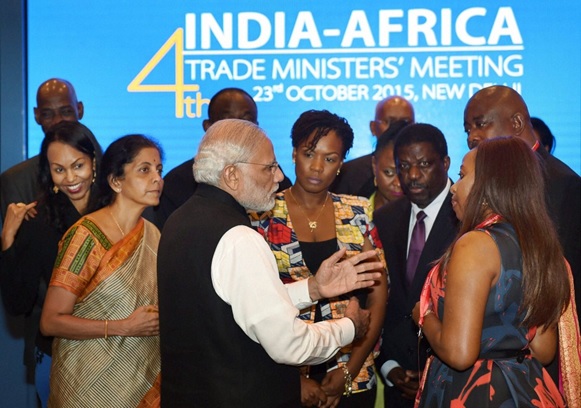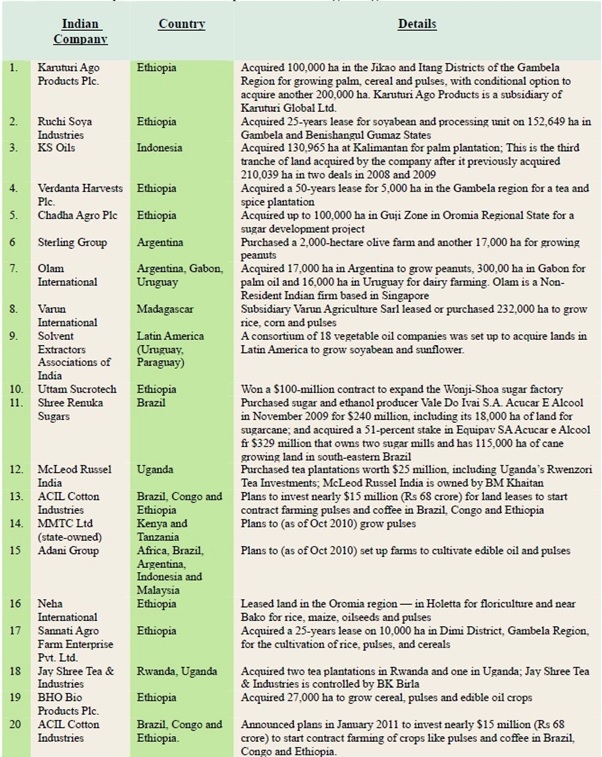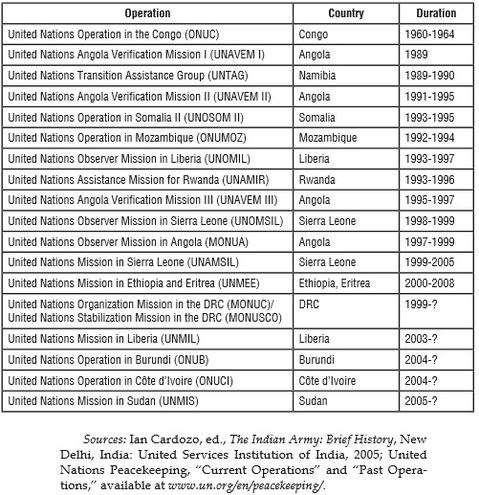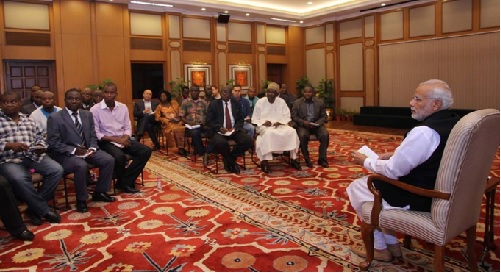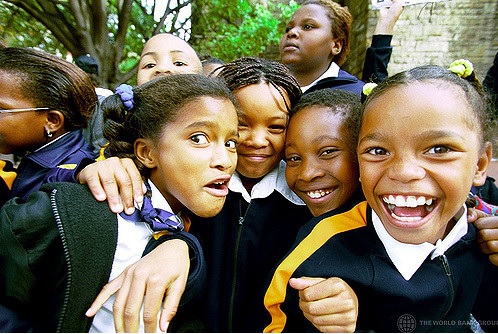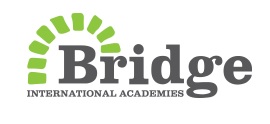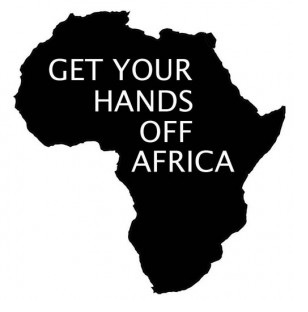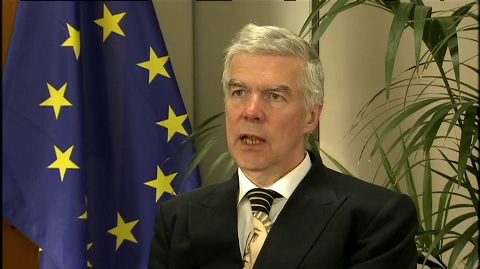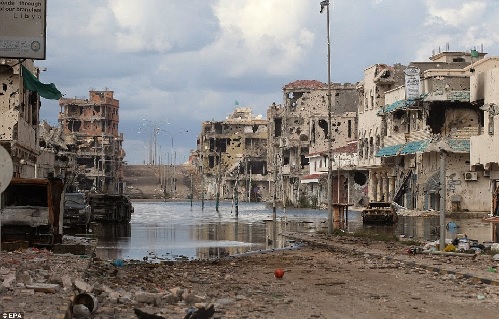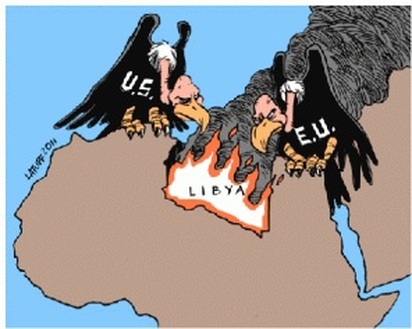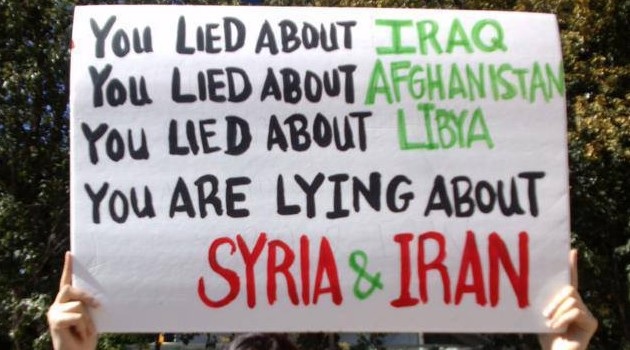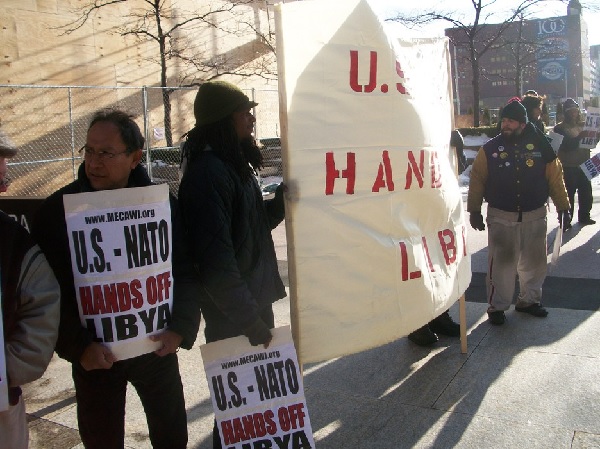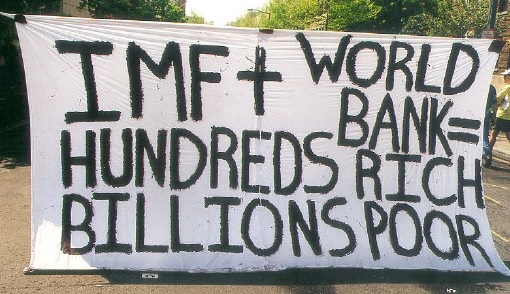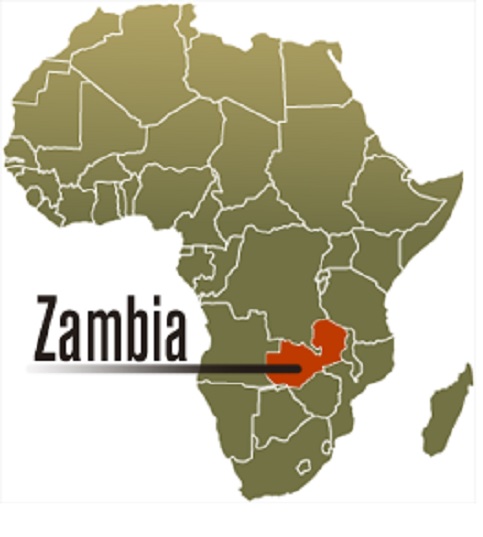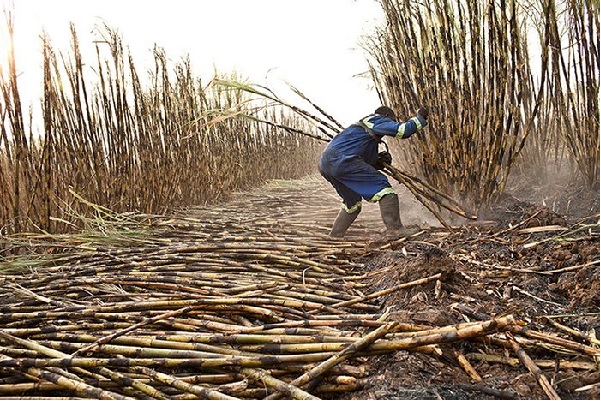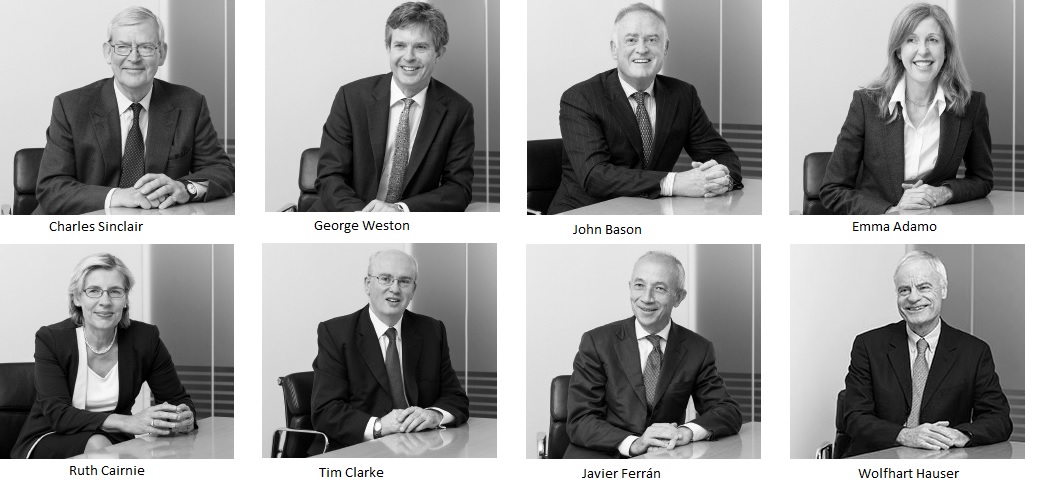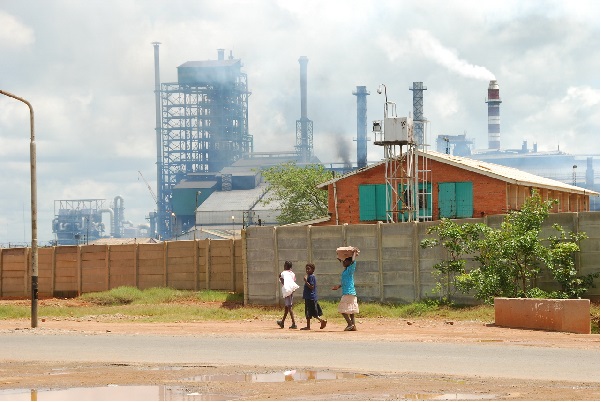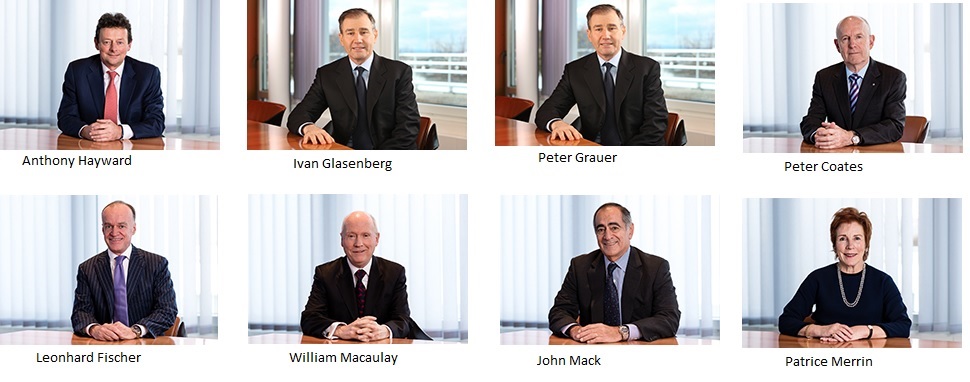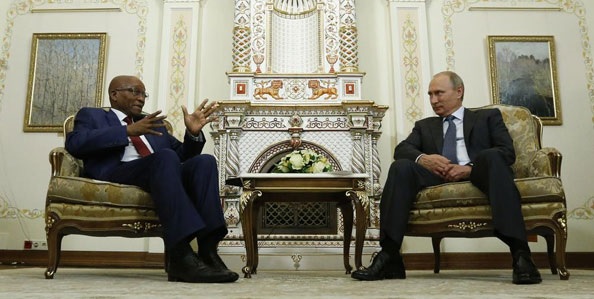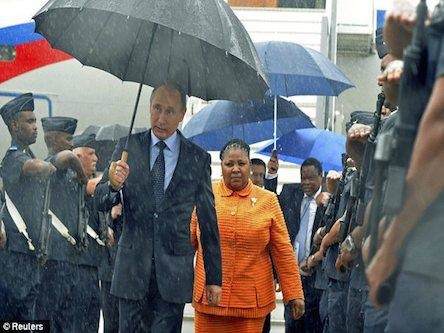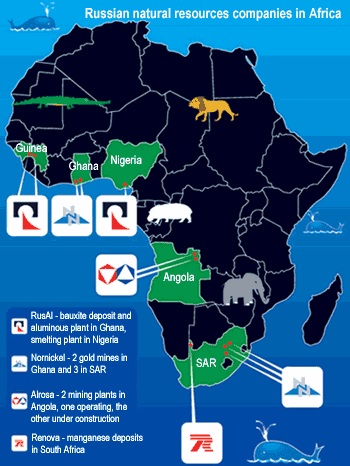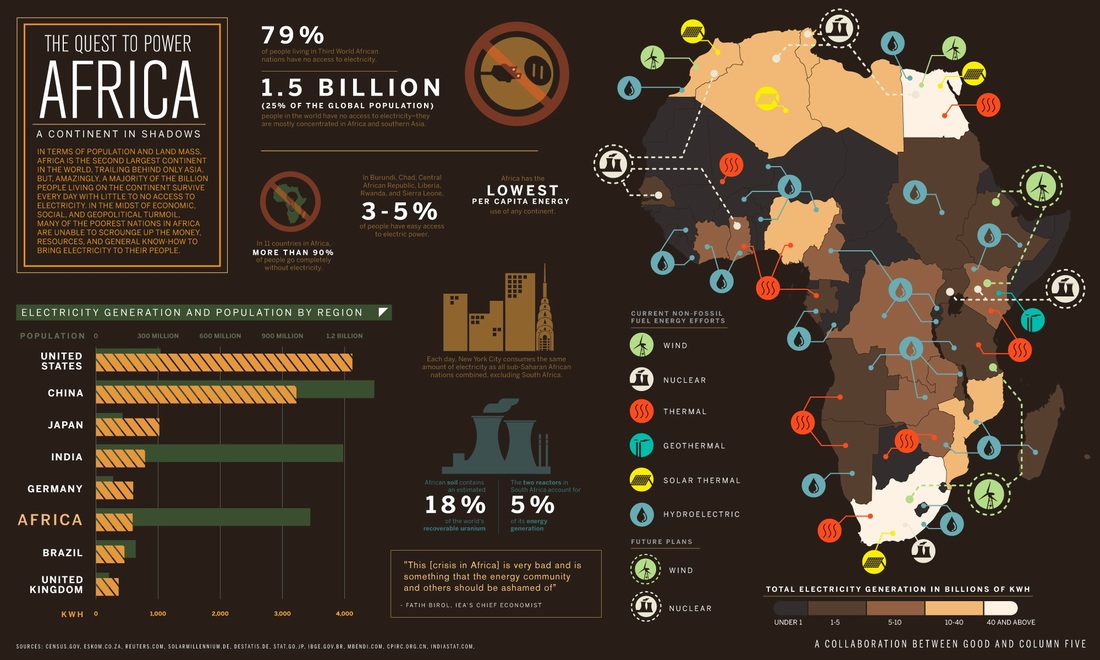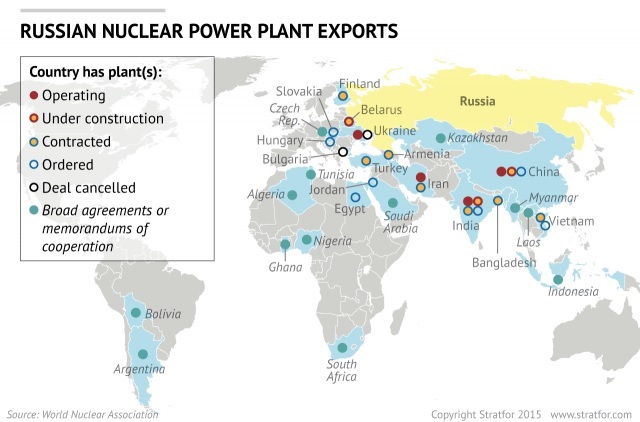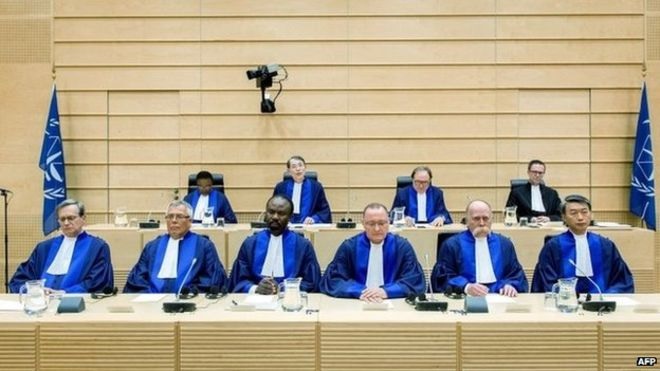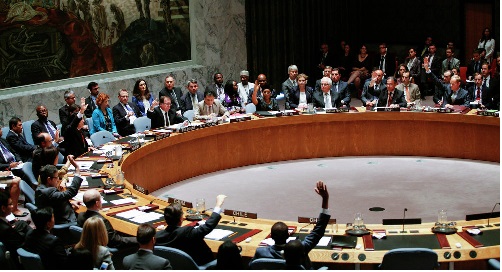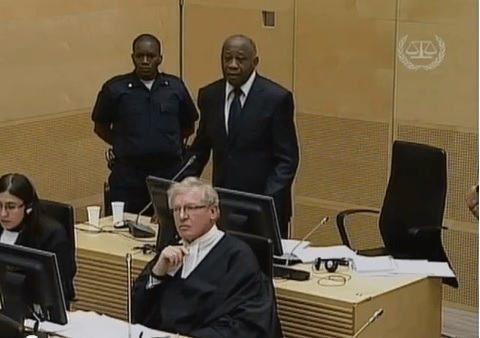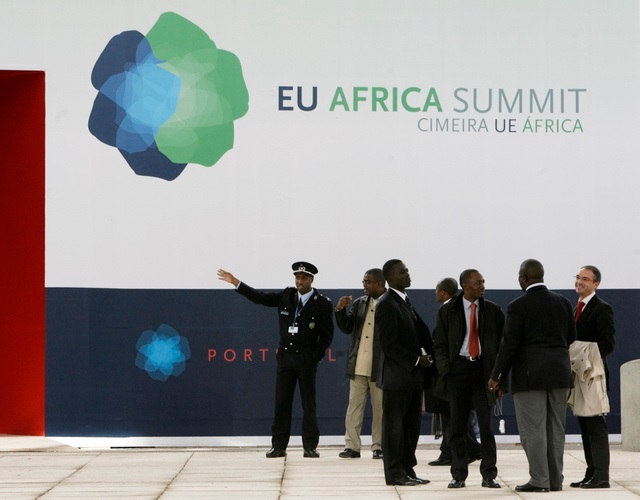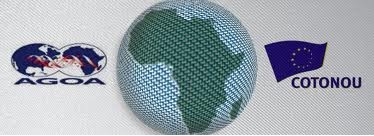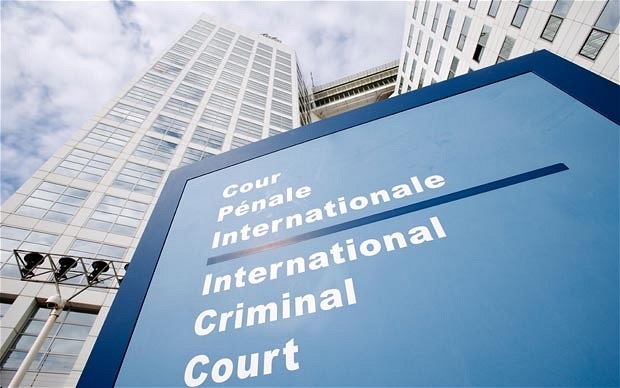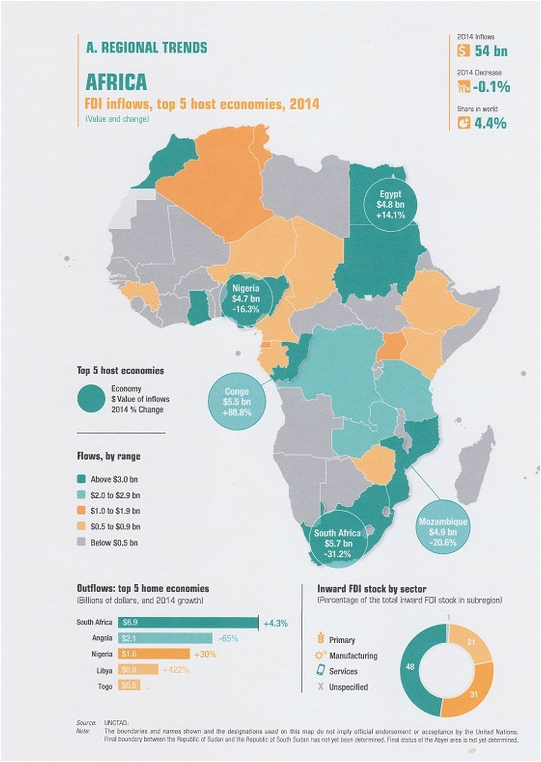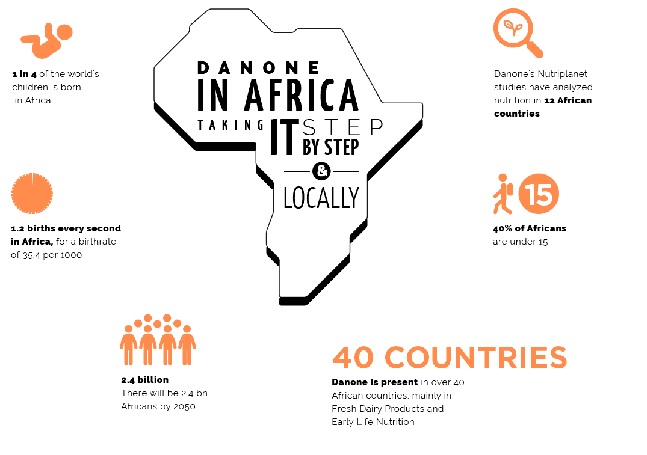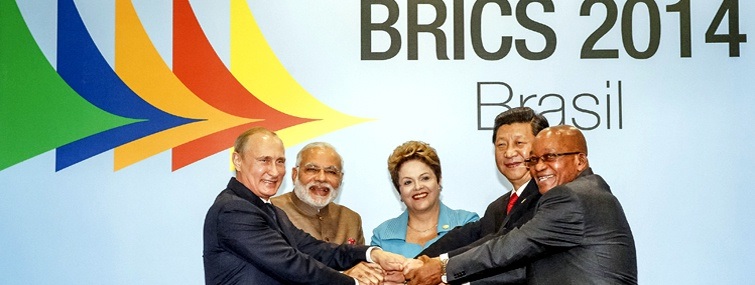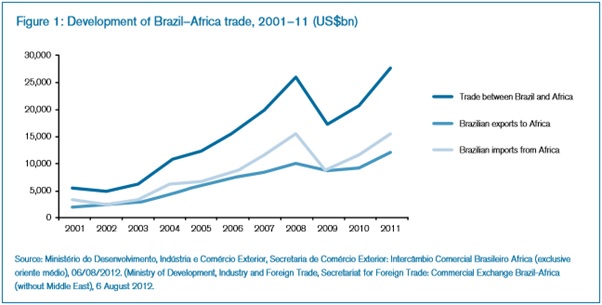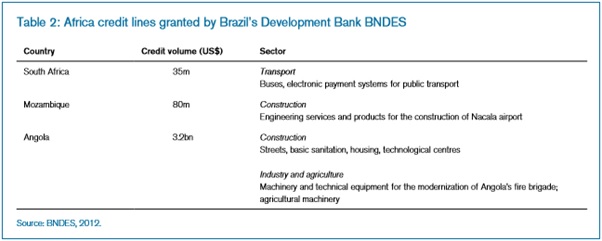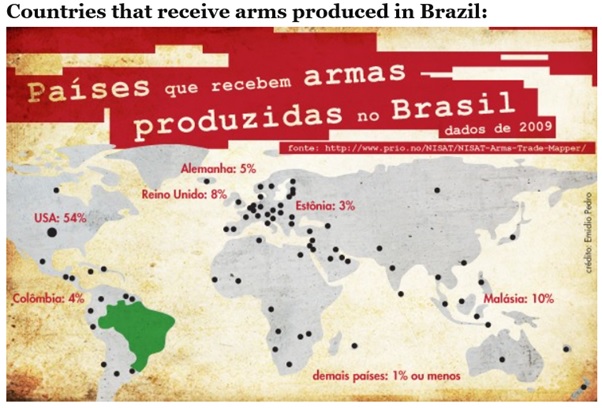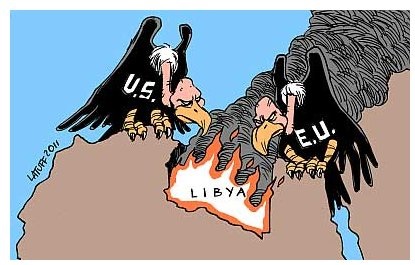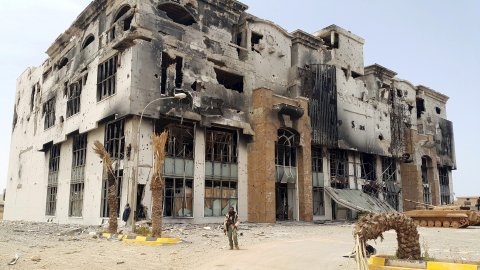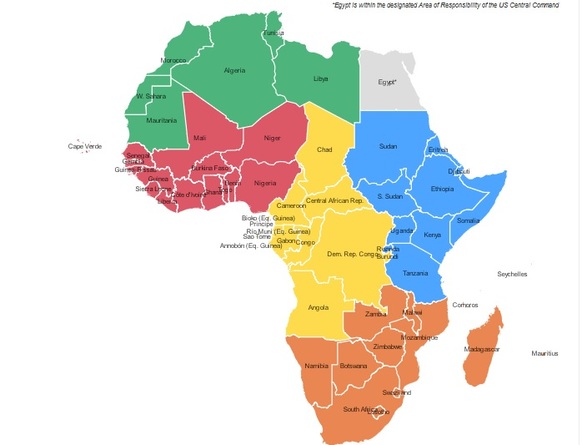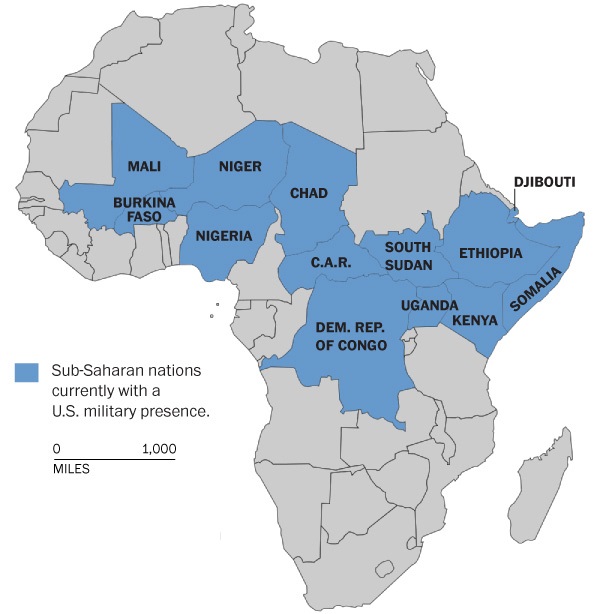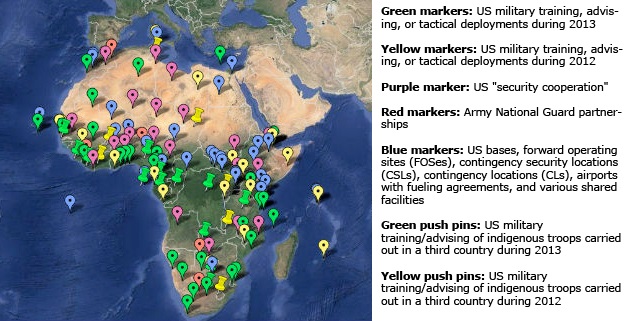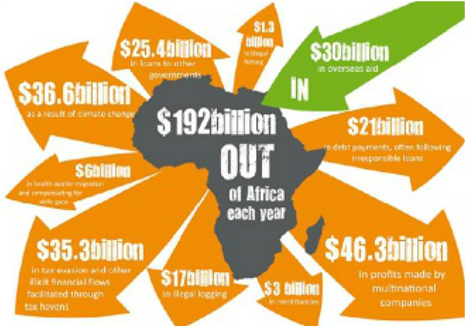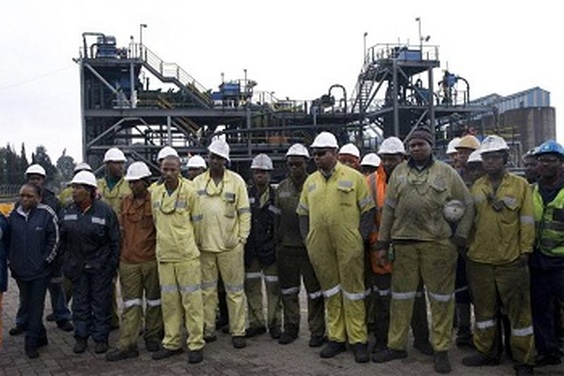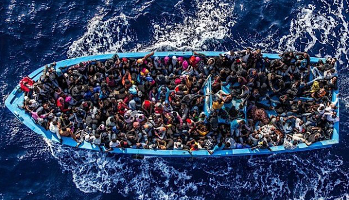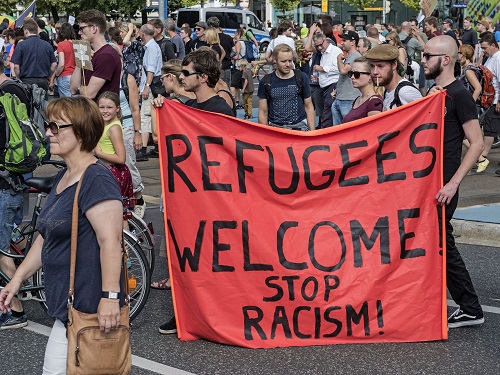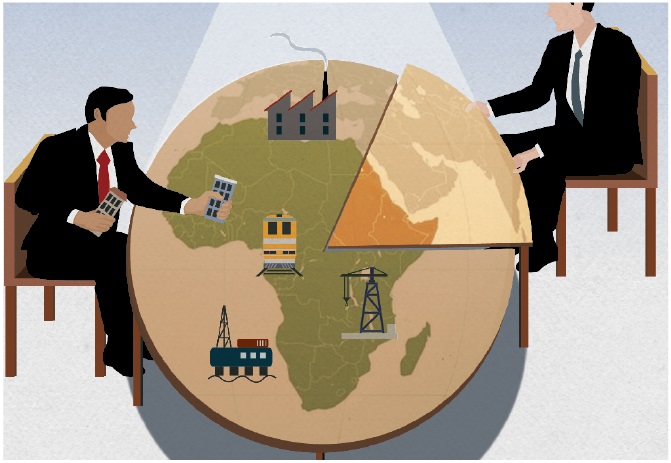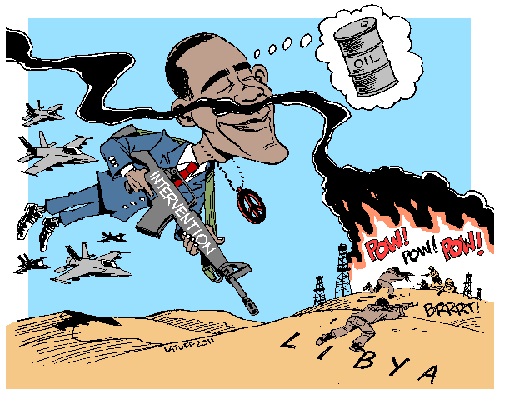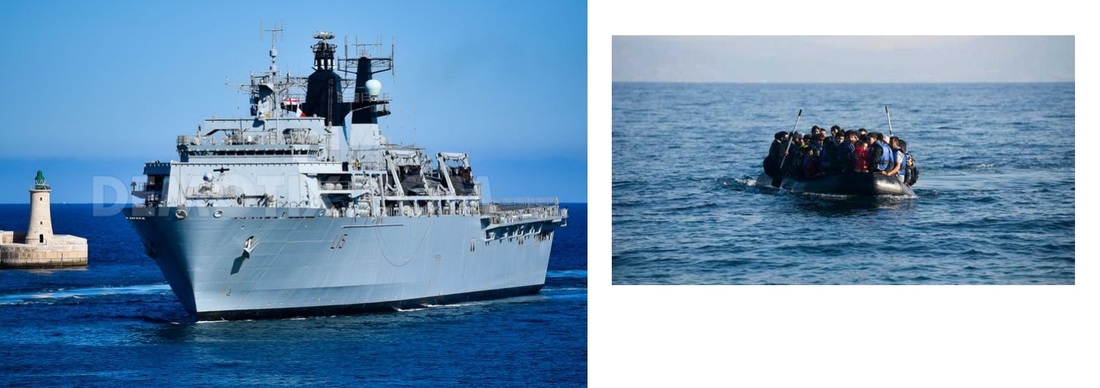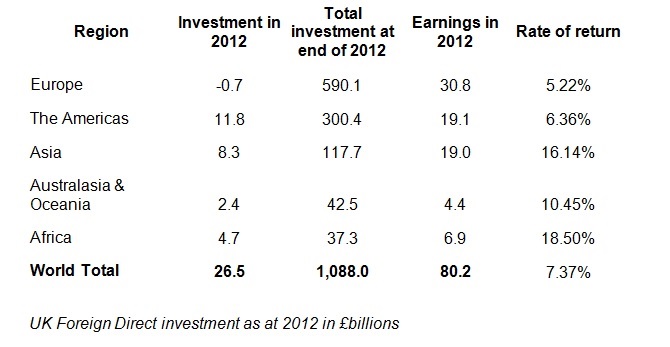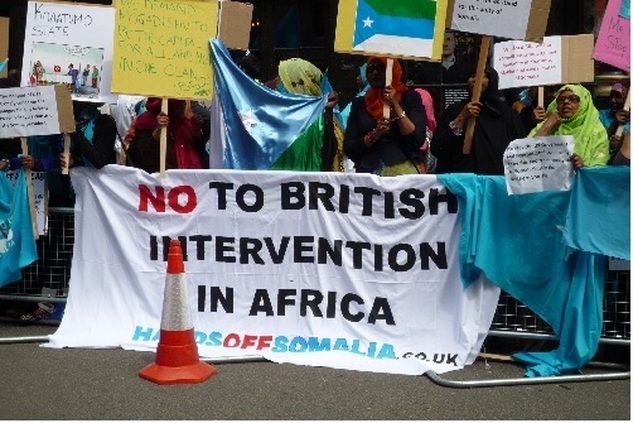Articles
|
Titles
|
Articles
The activities of the Bill and Melinda Gates Foundation in Africa must be endedThe Bill and Melinda Gates Foundation (BMGF) is reported to be one of the wealthiest private charitable foundations in the world. Its 3 trustees, the multi-billionaire couple, Bill and Melinda Gates, and the financial oligarch, Warren Buffet, are among the world’s 5 richest people, with an estimated net worth between them of over US$250 billion. According to the organisation, at the end of 2018, which are the most recent figures available, its endowment funds stood at US$46.8 billion. This is greater than the gross domestic product of 43 of the countries in Africa. In addition, the organisation employs a workforce of nearly 1500 people and in its management and conduct is indistinguishable from any trans-national corporation.
Global Influence The BMGF has leveraged its deep pockets to position itself as a key influencer of the global health agenda. It has established numerous global health Public Private Partnerships (PPP), including The Global Alliance for Vaccines and Immunizations (GAVI – The Vaccine Alliance), and it is a member of Health 8 (H8) which is regarded as the health equivalent of the G8. Membership of the H8 consists of the World Health Organisation (WHO), The United Nations Children's Fund (UNICEF), United Nations Population Fund (UNFPA), Joint United Nations Programme on HIV/AIDS (UNAIDS), the World Bank, the BMGF, the GAVI Alliance, and the Global Fund to Fight AIDS, Tuberculosis, and Malaria which was also set up by the BMGF. So, apart from the United Nations specialised agencies and the World Bank, membership of the Health 8 group is restricted to organisations which have been established by Bill and Melinda Gates. The BMGF and GAVI together are the second largest funders of the WHO, after the US government, and the BMGF is one of the principal funders of health related research globally. Its position as one of the WHO’s principal funders reflects the development of how this organisation has been funded. Historically, it had been funded through assessed mandatory contributions from its member states and voluntary contributions by member states and non-state parties. In 1971, 75% of the WHO’s budget came from the assessed contributions of the member states, and 75% of the voluntary contributions, which made up the rest of the budget, came from other UN agencies. Fiona Godlee in her article 'WHO's special programmes: undermining from above' points out that there was a shift in funding during the 1970s and 1980s as a result of attempts by the big imperial powers to maintain control of the organisation. As the newly independent countries of Africa, Asia and Latin America rapidly expanded the organisation's membership and threatened to gain control of its policy making body, the World Health Assembly (WHA), the big powers made a determined effort to circumvent the fact that they were now outnumbered in the WHO. This was done by pushing for a freeze in the organisation's core budget, while directing more of their funding into voluntary contributions and funding for special programs. Through the use of specified voluntary contributions, the donors could earmark funding for particular WHO programmes. In addition, each WHO special programme has its own director and a management executive committee made up of donors' representatives and these programmes are not under the control of the director general, the executive board, or the World Health Assembly. Through these measures the major donors could maintain control of the organisation’s policy direction. In 1980, under severe pressure from the US government, the WHA instituted a freeze on the organisation's core budget. This freeze is still in place. As a consequence of these moves, by 1989, for the first time in its history, voluntary contributions exceeded the members' assessed contributions as a part of the WHO's budget. This process has continued apace and today members’ assessed contributions account for 17% of the organisation's budget, while voluntary contributions make up 83%. These are the circumstances in which it was possible for the BMGF to emerge as a principal funder and major influencer of the WHO. According to the latest WHO financial accounts, of the US$228 million contribution from the BMGF in the 2018 financial year, 92% were for specified purposes, ensuring that control and decision making stayed with the BMGF. Commentators have noted that if the BMGF was genuinely driven by a charitable aim, it would have donated these funds to the organisation’s core funds so that their use could be decided upon by member states driven by their own health agendas.
Gates is already notorious for his reactionary Malthusian views on the need for population control and his openly stated aim to use his vaccination programmes in order to bring about population reduction. It is this reactionary outlook which drives the activity of the BMGF. For example, it has funded the establishment of the Bill & Melinda Gates Institute for Population and Reproductive Health at Johns Hopkins University. Using its levers of influence, the organisation pursues its goals with no accountability to anyone. Anne-Emanuelle Birn, author of 'Philanthrocapitalism, past and present: The Rockefeller Foundation, the Gates Foundation, and the setting(s) of the international/global health agenda' describe the Health 8 group thus, “The H8 holds meetings, like the G8, at which the mainstream global health agenda is shaped behind closed doors, and organisations considerably influenced by Gates and the BMGF constitute a plurality”. In this regard, significant pressure has been exerted on the WHO to overturn its foundational position as expressed in its constitution that, “Governments have a responsibility for the health of their peoples which can be fulfilled only by the provision of adequate health and social measures”. Instead, today, the WHO has adopted a notion of ‘universal health coverage’ which opens the door for the private health monopolies to insert themselves into the provision of health care globally.
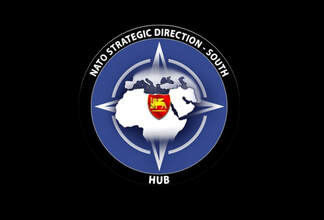 NATO's Strategic Direction Hub - South has a focus on large parts of Africa NATO's Strategic Direction Hub - South has a focus on large parts of Africa
The BMGF is also an integral part of the mechanisms of Anglo-American global rule. Jacob Levich in his article 'The Gates Foundation, Ebola, and Global Health Imperialism' points out that the organisation maintains a strategic partnership with the US government and enjoys “unlimited access to the White House”. It also maintains a strategic relationship with the British government, co-funding numerous projects with Britain's Department for International Development (DFID). In a 2015 article on the lessons to be drawn from the Ebola epidemic, Bill Gates argued for the establishment of an international institution, led by the WHO, the World Bank, the G7 and NATO, with a responsibility for responding to future pandemics. In this perspective, there is no space for the existence of sovereign states whose sovereignty needs to be respected. This colonialist outlook of the BMGF is reflected in the pattern of its grant allocation. Birn noted that in 2014, "almost three quarters of the total funds granted by the BMGF Global Health Program went to 50 organizations, 90% of which are located in the United States, United Kingdom, and Switzerland". These organisations are then tasked with carrying out the funded programmes throughout Africa, Asia and Latin America.
The BMGF in Africa This is the basis on which the BMGF carries out is activities in Africa, a continent on which it focuses particular attention. In fact, the organisation states that it devotes half of its resources to its projects in Africa. It has a strong presence in 10 countries, namely, Ethiopia, Nigeria, South Africa, Burkina Faso, the Democratic Republic of Congo, Ghana, Kenya, Senegal, Tanzania, and Zambia but also operates in 45 of the continent’s states. In addition, it operates various cross continent projects, such as the African Health Markets for Equity (AHME) while some of its global organisations such as The Global Fund to Fight AIDS, Tuberculosis and Malaria are also active on the continent. However, whether operating with individual countries, through cross continent organisations or via its global outfits, the BMGF functions as a colonial master in its relationships with African governments. Despite its extensive activities on the continent, there appears to be no documents in the public domain which specify the basis on which it carries out its activities, the mechanisms for holding it accountable and the liabilities it holds should its activities damage in any way the lives of the millions of African people that it touches. This fundamental lack of accountability to anyone in Africa for an organisation which is so active across the continent speaks volumes about the nature of the colonial relationship on which it bases its activities. Vaccinations The BMGF’s vaccination programmes represent the central core of its health focused activities in Africa. In 2010, speaking at the World Economic Forum in Davos, Bill Gates launched the BMGF’s ‘decade of vaccines’ in which the organisation committed US$10 billion over the period 2010-2020 for vaccine research, development and delivery, with the aim of vaccinating some 8 million children world-wide in this period. Bill Gates declared, “We must make this the decade of vaccines”, while his wife, Melinda, added, “We’ve made vaccines our number-one priority at the Gates Foundation”. The vaccination programmes are carried out primarily through GAVI, which claims that worldwide it has immunised some 760 million children, representing 86% of the world’s children. It also states that its aims include promoting access to 'new and under-used vaccines for millions of the most vulnerable children'. GAVI is active in 37 African countries where it offers support for vaccinations against 17 infectious diseases, including the human papillomavirus (HPV), a leading cause of cervical cancer, polio, meningitis, cholera and others. This support includes funding, provision of equipment and services and technical support from GAVI partners for those countries that are targeted for assistance. To access such support, African governments must submit an application form to GAVI and must ensure that they are compliant with the principles which GAVI outlines. This arrangement immediately lays bare the relationship between GAVI as the funder and the African government as the applicant. It is a relationship based on GAVI being the decision maker. Not surprisingly, therefore, the GAVI application form and its associated guidance set out in detail the responsibilities of the applying governments but say nothing about the responsibility of GAVI for any damages caused by the ‘new and under-used vaccines’ which the pharmaceutical corporations that are its members are marketing through it. In addition, GAVI’s ‘transitional phases’ of support are designed so that a country’s vaccination programme is wholly funded by GAVI at the outset, but then goes into a phase of co-financing and ends with the targeted country being 100% responsible for the cost of the vaccines it uses. In this way, GAVI acts as a creator of markets for its pharmaceutical corporations.
New and under-used vaccines The problems, however, are not just with GAVI’s colonial relationship with Africa nor its creation of markets for the pharmaceutical corporations, but just as importantly with its ‘new and under-used vaccines’. Dr Jérôme Munyangi, a Congolese researcher and developer of a plant based Covid 19 treatment, has pointed out that the absence of supervisory structures in Africa makes it possible for GAVI to violate all ethical standards and to use African children as guinea pigs in its activities. He points to the inclusion of ‘new vaccines’ in routine immunisation programmes when these should in fact be subjected to full clinical trials and he also highlights the failure to follow up on illnesses and deaths caused as a result of the use of such vaccines. This is a particular issue with the BMGF’s global vaccine programme. In 2009-10, it emerged that another BMGF funded organisation, Program for Appropriate Technology in Health (PATH), had conducted a study in India, where 30,000 school aged girls were vaccinated with HPV vaccines developed by Merck and GlaxoSmithKline. As a result, many of the girls fell ill and 7 died. Activists from SAMA, a women’s health group, who carried out a fact finding mission to the area in March 2010, reported that many of the girls experienced adverse reactions to the vaccination, including epileptic seizures, severe stomach ache, headaches, mood swings, early onset of menstruation, heavy bleeding and severe menstrual cramps. An Indian parliamentary standing committee on health and family welfare which investigated the matter found that in many cases the norms for gaining informed consent had been flagrantly violated, that the children had no idea about the nature of the disease or the vaccine and that the relevant authorities could not furnish requisite consent forms for the vaccinated children in a huge number of cases. 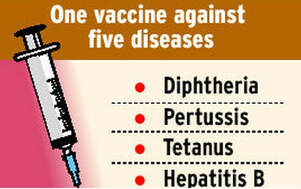
Then there is the issue of the pentavalent vaccine, which is meant to protect infants from 5 illnesses namely, diphtheria, tetanus, whooping cough, hepatitis B and haemophilus influenza type b. It is heavily promoted by GAVI which declares that it is available in ‘the world's 73 poorest countries and that ‘over 467 million children’ had been immunised with it by the end of 2018. However, in Tamil Nadu state in India, the Ministry of Health classified 54 cases of deaths of infants who were vaccinated with pentavalent as ‘adverse events following immunization’(AEFI), while Jacob Puliyel, an Indian paediatrician and member of India’s National Technical Advisory Group on Immunization, has argued that ‘the vaccine increases mortality and that the mortality in the immediate post vaccination period of babies who receive the vaccine, was double the infant mortality rate (IMR)’.
In November 2019, the Guardian newspaper reported that, ”new cases of polio linked to the oral vaccine have been reported in four African countries and more children are now being paralysed by vaccine-derived viruses than those infected by viruses in the wild”. The article adds that “In developing countries the oral vaccine is used due to its low cost and accessibility, needing only two drops per dose. In western countries, a more expensive, injectable version of the vaccine – which contains an inactivated virus incapable of causing the disease – is used as a preventative”. The polio vaccine in question had been administered as part of the Global Polio Eradication Initiative (GPEI), which is also funded by the BMGF. Secret use of birth control agents Another ugly aspect of the BMGF’s activities in Africa is its involvement with the secret use of birth control agents on women, under the guise of vaccinating them against infectious diseases. The most highly publicised case of this occurred in Kenya between 2013 and 2015. In November 2014, the Kenya Conference of Catholic Bishops (KCCB), which presides over the Kenya Catholic Health Commission, issued a press release claiming that the WHO administered and BMGF funded anti-tetanus vaccination campaign was secretly including a birth control agent in the anti-tetanus vaccines it was giving to women in Kenya. Six samples of the anti-tetanus vaccine in use by the campaign and secured by doctors giving the vaccinations were sent for testing at multiple laboratories in Kenya. All the labs reported that the samples contained the human chorionic gonadotropin (hCG). There has been a long research tradition funded by the WHO to look at the use of hCG in anti-tetanus vaccines as a means of delivering a long term contraceptive to women. The use of this birth control agent in the anti-tetanus vaccine would not only prevent future pregnancies but would also induce spontaneous abortion should a woman be pregnant when she received the vaccine. Despite strenuous denials from the WHO, BMGF and the Kenyan Ministry of Health none of them have been able to explain why the birth control agent was found in the 6 samples of anti-tetanus vaccine; why an anti- tetanus vaccine campaign targeted only women of child bearing age, given that tetanus affects women and men of all ages and why the storage and distribution of this vaccine was different from the usual practice in Kenya. This involved storing all the vaccines in a single depot in Nairobi, moving them with a police escort and ensuring that all used vials were returned to the WHO. Given the furore which followed the accusations of the KCCB, the Kenyan government established a ‘Joint Committee of Experts on Tetanus Toxoid Vaccine Testing’. However, it took the WHO 58 days to produce further samples of the vaccines for testing and this delay has not been explained by them. Given that this took place in the middle of the anti-tetanus vaccination campaign when significant numbers of the vaccine would have been in situ in the country, the delay seems difficult to explain. In addition, the new samples were delivered to the relevant laboratories outside of the protocols agreed by the Joint committee. These new samples contained no evidence of the presence of the birth control agent.
Undermining regulatory structures BMGF has also been involved in strenuous efforts to undermine the regulatory structures which cover the introduction and use of drugs in Africa. In 2015, it declared its intention to, “seek better ways to evaluate and refine potential interventions—such as vaccine candidates—before they enter costly and time-consuming clinical trials”. In this way, the BMGF serves the interests of the pharmaceutical corporations by bypassing the clinical trials process and moving directly to the use of untested vaccines on African populations. Speaking at the tenth Medicines and Healthcare products Regulatory Agency (MHRA) annual lecture at the Royal Society of Medicine in March 2015, Dan Hartman, director of integrated development for the Bill and Melinda Gates Foundation, declared the organisation's intention to reduce registration times for vaccines and drugs in sub-Saharan Africa by “50% in the next three years". What this means is illustrated by the case of the antiviral drug brincidofovir. The patent holders for this drug, Chimerix Inc. a US biotechnology company had been unable to organise clinical trials for it. However, in the wake of the 2013-14 Ebola epidemic in west Africa, the BMGF declared its support for the drug as a treatment for Ebola. Almost immediately the WHO approved the drug for wide scale trials in Africa, justifying its decision, in its document Ethical Considerations for Use of Unregistered Interventions for Ebola Disease, by stating that, “In the particular context of the current Ebola outbreak in West Africa, it is ethically acceptable to offer unproven interventions that have shown promising results in the laboratory and in animal models but have not yet been evaluated for safety and efficacy in humans as potential treatment or prevention”. In this way, the BMGF plays its role in transforming African populations into guinea pigs for the pharmaceutical industry. Privatisation of healthcare The other major thrust of BMGF’s activities in Africa is the privatisation of health care provision on the continent. This is consistent with its neo-liberal ideology, which sees access to health care not as a fundamental human right which governments must secure for their citizens but as a marketable commodity which should be provided , at a profit, by private interests, including clinics, health insurers and pharmaceutical companies. The principal mechanism that the BMGF uses to advance this agenda in Africa is the notorious Public- Private Partnership (PPP). These are organisations which draw together African governments, foreign aid departments of big imperial powers, private foundations and various health monopolies. These PPPs become the unaccountable agenda setters and decision makers on all matters relating to health in Africa, while the participating Ministries of Health of the various African countries are reduced to the role of implementing what has been decided. The African Health Markets for Equity (AHME) is one such initiative. Co-funded by the BMGF, which contributed US$60 million, and the British government’s Department for International Development (UKaid), it ran from 2012-2019 in Ghana and Kenya as a pilot project. The AHME was based on the premise that ‘private markets for health delivery are critical for expanding healthcare access for the poor, and, consequently, had the aim of ‘helping private providers deliver quality health services to poor people’. As part of this effort, the project organised private healthcare providers in both countries into social franchise networks and assisted them with gaining accreditation from the National Insurance Schemes in each country so that they could become providers of government funded healthcare for inpatient, outpatient and maternity services. Obviously, in the current situation, where under the pressure of neo-liberal reforms many governments across Africa are facing significant financial pressures, the diversion of healthcare funding into the private sector will necessarily mean less available for public health services. which, consequently, will continue to deteriorate, denying millions, particularly those in remote areas, any access to modern health care. The AHME declared that their intention for the project was to use the insights gained from the pilot in order “to support other countries in Sub-Saharan Africa and development partners for future health markets programming”. The project was evaluated by the University of California, San Francisco (UCSF), while implementation on the ground was carried out by Innovations for Poverty. Both organisations are regular recipients of funding from the BMGF. Even when promoting private health care across the continent, the BMGF does not lose its racist focus on population control of Africans. So not surprisingly, the members of this particular PPP included both Marie Stopes International and Population Services International.
The activities of the BMGF in Africa are a stark expression of what has been termed ‘health imperialism’, a modern day version of the old colonial doctrine of the ‘white man’s burden’. Using its very deep pockets and leveraging its control of many influential global health organisations, it has appointed itself as the decision maker on a myriad of health issues for millions of Africans, to whom it owes no accountability. This is in direct contradiction to the WHO's 1978 Alma Ata Declaration on Primary Health care which states that "people have the right and duty to participate individually and collectively in the planning and implementation of their health care". With its freedom to do as it likes on the continent, the BMGF routinely violates the fundamental human rights of Africans under the guise of carrying out ‘philanthropic work’. It is high time that the activities of this organisation in Africa were brought to an end.
The British government deepens its interference in AfricaIn preparation for its uncertain exit from the European Union, the British government is deepening its destructive interference in Africa as part of its efforts to revive its dead empire, rebranded as Global Britain. In this regard, Britain’s Foreign Secretary, Jeremy Hunt, visited 5 African countries, Senegal, Ghana, Nigeria, Ethiopia and Kenya, between 29 April and the 3 May. Britain’s Foreign Office described the aim of Hunt’s visit as “making the case for new UK partnerships across Africa”.
In reality, however, the new ‘partnerships’ which Hunt is seeking to establish are nothing other than the old ‘partnerships’ of racism, colonial oppression and economic plunder for which Britain is notorious across the continent. On the first leg of his trip, in Senegal, Hunt announced £750 million in funding to facilitate British investment in that country and claimed that this was a step in realising Theresa May’s ambition, announced on her trip to South Africa last year, to make Britain the largest G7 investor in Africa by 2022. That Senegal was Hunt’s first stop is evidence of Britain’s financial oligarchy’s determination to come out on top in this new scramble for Africa. This determination was further evidenced by Hunt’s announcement of a new £4 million English language programme to be directed at countries which were previously colonised by the French and Portuguese. Taken together with Britain’s recent establishment of embassies in Niger and Chad and the fact that this was a British foreign secretary’s first visit to a former French colony in Africa in 20 years, it is clear that the British government intends to wrestle various African countries out of the control of the French and Portuguese imperialists. While in Senegal, Hunt also visited Royal Marines who are involved in protecting offshore oil and gas installations being built by British companies BP and Cairn Energy. On his visit to Ghana, Hunt signed a strategic partnership agreement with the government of that country. This agreement is aimed at dragging Ghana into the imperial machinations that are spreading chaos and insecurity in wider West Africa. Hunt called on the Ghanaian government to collaborate with Britain in “regional security, especially issues of border security, crime and cyber security”. In addition, the agreement opened the door for Britain to step up its interference in Ghana’s affairs by its call for Ghana to work with Britain “to enhance macroeconomic management and increase Ghana’s domestic revenues through tax reform and well-managed oil and gas revenues”. Continuing his colonialist jaunt across Africa, Hunt arrived in Nigeria. As well as attending the UK/Nigeria Economic Development Forum, which is a mechanism aimed at facilitating the plunder of Nigeria’s resources by British corporations, Hunt also visited the British troops who are stationed in that country, allegedly to ‘fight extremism’ in the form of Boko Haram and the Islamic State in West Africa. In Ethiopia, Hunt announced Britain’s intentions to interfere in the elections in that country, by announcing £15.5 million of ‘aid’ to Ethiopia to ensure that its elections are “transparent, free and fair”, in other words that forces that will serve Britain’s imperial interest in Africa come to power there. Hunt also announced measures to strengthen Britain’s ‘soft power’ with the establishment of the Chevening Africa Media Freedom Fellowship programme which aims to place “60 African journalists to gain experience with leading UK media organisations”. In other words, these journalists are intended to become agents of disinformation working in Africa on behalf of Britain’s imperial interests. On the final stop of his trip, in Kenya, Hunt announced various programmes aimed at facilitating British investment in that country.
The recent trip of Jeremy Hunt to Africa is proof of the British oligarchy’s intention to deepen its interference in all aspects of life in Africa for the sole purpose of securing its economic interests at the expense of Africa and her people. The British oligarchy and its government must end their interference in Africa. US builds drone base in Niger
News agencies report that the United States Air Force is building a multi-million dollar base for armed drones in Niger. The Niger Air Base 201 is expected to be functional by early 2019 and lies a few miles outside Agadez, Niger. U.S. Africa Command (AFRICOM) spokeswoman Samantha Reho has attempted to justify the base by claiming that it “will be crucial in the fight against extremism”. “The location in Agadez will improve U.S. Africa Command’s capability to facilitate intelligence-sharing that better supports Niger and other partner nations, such as Nigeria, Chad, Mali and other neighbours in the region and will improve our capability to respond to regional security issues,” Reho said.
The drones, with surveillance and added striking capabilities, will have a range enabling them to reach a number of West and North African countries. Associated Press (AP) reports that the sophisticated base will eventually house fighter jets and MQ-9 drones transferred from the capital Niamey. US Air Force officials have pointed out that the $110 million project is the largest troop labour construction project in U.S. history and that the base will cost $15 million annually to operate. According to AP, the drones at the base are expected to target different groups in countries throughout the Sahel, which is a sprawling region just south of the Sahara, including the area around Lake Chad. Commander Brad Harbaugh, who is in charge of the new base has stated that “the intelligence gathered by the drones can be used by Niger and other U.S. partners for prosecuting extremists”. News agencies report that people in Niger have expressed their opposition to the increasing US militarisation of their country. The publication Business Insider quotes one Niger citizen, Amadou Roufai, as stating, "We are afraid of falling back into the same situation as in Afghanistan, with many mistakes made by American soldiers who did not always know the difference between a wedding ceremony and a training of terrorist groups," , while another, Nouhou Mahamadou, declared "The presence of foreign bases in general and American in particular is a serious surrender of our sovereignty and a serious attack on the morale of the Nigerien military,". The US under the banner of ‘fighting terrorism in Africa’ is tightening its military grip on the continent while destabilising entire regions and spreading insecurity. The US must end its interference on the African continent and withdraw its military forces and installations from there. Africa’s cultural treasures must be returned and full reparation made
One of the most important aspects of continued foreign intervention in Africa concerns the plundering of cultural artefacts by the imperialist countries not least by Britain and its major cultural institutions. This has been highlighted recently by the so-called Magdala 1868 exhibition which opened at the Victoria and Albert Museum (V&A) in London in April 2018. Magdala 1868 is an exhibition of important cultural treasures including a crown, a royal wedding dress and various religious items plundered from the then Ethiopian capital of Magdala (Maqdala) during an invasion by British troops in 1868.
The Ethiopian government, which in 2005 managed to secure the return of the plundered Axum obelisk from Italy, has demanded the return of all the items plundered in 1868 not only from the Victoria and Albert Museum but also from other museums and archives throughout Britain, including the British Library, the British Museum, the National Archives of Scotland, and several university libraries. In 2007, the government filed a formal restitution to have the treasures returned to the rightful owners. Other Ethiopian organisations have also demanded their return, including the Association for the Return of the Maqdala Ethiopian Treasures which has been particularly active in Britain. Since 1868 several items stolen from Magdala have been returned, including some religious items. However, the V&A persists in holding onto plundered items and has prominently displayed them even before the current exhibition was launched. Hundreds of other items remain stored in other British museums, included many religious icons, illuminated manuscripts and even human remains. Some items are still held by the British monarch in the Royal Library at Windsor Castle. The current exhibition has been staged in association of the Ethiopian government and the Ethiopian community in Britain. However, Ethiopia's Director of Cultural Heritage Inventory, Grading and Inspection Desalegn Abebaw explained that ‘Showing the looted Mek'dela artefacts to the public is positive; We hope it is going to create pressure on them (the V&A) that will help us in our efforts to return the artefacts to where they belong. It's good to show these artefacts to the public rather than locking them somewhere since the exposure is going to help us to return them.’ Elizabeth Wolde Giorgis, director of the Institute of Ethiopian Studies at Addis Ababa University added ‘They took someone else's possession; it is criminal and they should apologize for it. No European artefacts have been looted and taken to Africa, so why should it be OK for a British museum to have looted African treasures and not apologize for it?’
However, V&A Director Tristram Hunt, refuses to provide any apology or to return the plundered treasures to their rightful owners. Expressing a view that has long been held by the plunderers of stolen goods in Britain and elsewhere he suggested that ‘the speediest way, if Ethiopia wanted to have these items on display, is a long-term loan… that would be the easiest way to manage it.’ Such colonialist logic must be condemned in the strongest terms. Those who stole the treasures or acquired them, to use the language employed by the plunderers, have no rights to make any decisions about the treasures of Ethiopia or those of other parts of Africa that must also be returned and full reparation made.
The role of the United Nations in Libya’s suffering
On 9 February, the Panel of Experts of the United Nations Security Council (UNSC) Committee concerning Libya provided its interim report to this committee. The UN has not published the interim report nor made public its 11 recommendations but the Committee declared it would be following up 8 of these which related to its own work. This committee is currently chaired by Olof Skoog, Sweden’s representative to the UN and its resolutions are drafted by the UK mission to the UN, which is the current penholder for this committee.
However, on 7 February, Reuters news agency published an article in which it claimed to have seen the interim report. It stated that the Panel of Experts had reported to the committee that “most armed groups involved in human smuggling and trafficking in Libya have links to the country’s official security institutions”. The report went on to say that these groups “have specialized in illegal smuggling activities, notably human smuggling and trafficking”. The report further stated that Eritrean migrants reported being “arrested by the Special Deterrence Force (SDF), which is an armed group affiliated with the internationally recognized Government of National Accord’s Ministry of Interior” and then being handed over to various smuggling rings. In a mid-January briefing to the UNSC, Ghassan Salamé, Special Representative and head of the UN Support Mission in Libya (UNSMIL), stated that the “spectre of violence” is present in many parts of the country and that the “the fabric of Libyan society is frayed”. As well as the widespread violence which still racks the country, 7 years after NATO’s barbaric attack, the UNSC was informed that there are also summary executions and that “the displacement crisis in Libya is one of huge complexities”.
The UNSC cannot claim it is unaware of the consequences of the destruction of Libyan society, which was carried out by NATO and greenlighted by its own notorious resolutions 1970 and 1973 of 2011. However, at no point has the UN or its Security Council acknowledged their responsibility for the current suffering of the Libyan people nor the gross human rights abuses which are taking place in that country. The UNSC in providing diplomatic cover for NATO’s war of aggression against Libya acted in violation of its own charter which charges it with defending world peace and opposing wars of aggression. With regard to Africa, this is consistent with the UN’s previous activity. The UN must end its interference in Africa in defence of war and violation of the rights of Africa and her people.
The EU AU summit – the EU must end its interference in Africa
On 30 November, the two day EU-AU summit came to a close in Abidjan, the capital of Côte D’Ivoire. Commentators noted the neo-colonial overtones in the choice of venue, given that the current president of that country, Alassane Ouattara, was installed by French paratroopers in 2010 while the previous president, Laurent Gbagbo, is languishing in a prison cell in the Netherlands, another African victim awaiting his turn in the hands of the so-called International Criminal Court.
This reality was confirmed by the French president, Emmanuel Macron, who, on his way to Abidjan, delivered another one of his anti-African outbursts during his stop-over in Burkina Faso. Asked by Burkinabe students, whom he was addressing at the University of Ouagadougou, why there were more French soldiers in Africa than African students in France, Macron declared that the students should applaud the French soldiers as they were allegedly all over Africa in order to protect Africans. Turning to the dire situation in Libya, which was also raised by the students, Macron declared that the problem in Libya is that Africans are making other African slaves and added that France intended to fight this crime. Not once did he mention the central role that France played in NATO’s destruction of Libya in 2011 and the elevation to power of those forces they had gathered together to wage war on that country. It was this act of aggression that has unleashed instability, insecurity and mass human suffering not only in Libya but also in the wider Sahel region. The summit itself was attended by high ranking members of the EU, including Jean-Claude Juncker, President of the European Commission, Donald Tusk, the President of the Council of the EU and Federica Mogherini, High Representative of the EU for Foreign Affairs and Security Policy. Also in attendance were Germany’s chancellor Angela Merkel and France’s president Emmanuel Macron The summit’s declared goal was to focus on investing in youth as well as discussing peace and security, mobility and migration and investment and trade. The presence of such high powered EU politicians in Abidjan can be best explained by the statement of Angel Losada, the EU’s High Representative for the Sahel that, “…..the Sahel is one of the most important points and a polygon of crisis for Europe,…… it is the border of our border”. The summit can, therefore, best be viewed as part of the EU’s efforts to achieve its strategic goals in Africa. This reality was reflected in the agreements and declarations coming out of it.
The summit issued a final declaration which addressed a number of areas, including economic growth, investment, peace, security, migration and governance. With regard to peace and security, the declaration claimed that Africa and the EU “….have common security threats...... particularly the growing terrorist threats and trans-boundary criminal activities” and that ‘peace and security’ would be at the heart of the EU-AU partnership. It further stated that the summit had agreed on “……. the principle of developing as soon as possible a framework document, which will put our partnership on peace and security on a more solid and structured basis”. In this way the EU aims to consolidate and intensify its already extensive and destructive military interference in Africa, which brings people in Africa neither peace nor security. A key initiative unveiled by the EU at the summit was its External Investment Plan (EIP) whose declared aim is to “…. crowd in private investors, where viable business proposals meet social needs”. This plan envisages the establishment of a European Fund for Sustainable Development (EFSD) with an allocation of €4.1 billion from the European Commission and a further €44 billion of private capital from within the EU to fund investment in Africa. Basing itself on the current neo-liberal dogma that economic development is dependent on attracting foreign direct investment, the EU declares that the EIP is its contribution to current global commitments to “mobilise private resources and to apply innovative financing models” to address the issues of social and economic development in Africa. It is clear from this that under the guise of addressing economic underdevelopment in Africa, the EU is seeking out investment opportunities for its monopolies to further plunder Africa and deepen its enslaving economic ties with the African continent. In light of the current chaos in Libya, including the selling of people as slaves, which has resulted from NATO’s aggression against that country in 2011, the summit also issued a joint statement on the “Migrant Situation in Libya”. Reflecting the remarks made by Macron in Ouagadougou, the statement makes no mention of NATO’s aggression against Libya. Instead, it presents the issue as ‘a struggle against criminal human traffickers’. It further “…..welcomed ongoing efforts of the Presidential Council and the Government of National Accord of Libya in undertaking appropriate measures to address such incidents”. This statement turns reality on its head, given the fact that it is precisely the various militias which NATO cobbled together in 2011 and which they have installed in power in that country who are responsible not only for the ongoing racist outrages but have been involved in such outrages since 2011. Finally the statement declares that a “lasting resolution of the issue of African migrants is closely linked to addressing the root causes of the phenomenon and requires a political solution to the persistent crisis in Libya”. With this statement, the EU signals its intention to use the chaos and insecurity its previous interventions in Libya and the wider Sahel have caused as justification for further intervention. The EU-AU summit is a means for the European monopolies to further their interests in Africa. The EU must end its criminal interference in Africa which is bringing one disaster after a next for the people of that continent. 21st Century Missionaries – trans-national NGOs in Africa
The African continent is awash with so-called non-governmental organisations (NGOs) which have their origins and bases in the former colonial powers as well as in the USA and Canada. In Kenya alone in 2016, there were some 12,000 foreign expatriates working for such NGOs. These trans-national NGOs, which number in their thousands across the continent, are active in all aspects of Africa’s social, economic and political life and represent a force aimed at undermining African independence and reinforcing Africa’s neo-colonial relationship with various big powers.
The United Nations Development Programme (UNDP) in a 2013 publication noted that 8 trans-national NGOs, World Vision International, Oxfam International, Save the Children International, Plan International, Médecins Sans Frontières, CARE International, CARITAS International and ActionAid International, had a combined income of more than US$11.7 billion in 2011. This sum is greater than the World Bank estimates for the 2010 GDP of a large number of African countries, including Mozambique, Mali, Madagascar, Chad, Benin and Zimbabwe to name but a few. These 8 NGOs are all active in African countries, for example Oxfam operates in 32 countries on the continent, while there are others which are not on this list like Population Services International which operates in 28 countries in Africa. These organisations claim that, among other things, they are combating poverty, overcoming injustice, supporting family planning, empowering women and girls and carrying out a range of other activities that are, in reality, the responsibilities of the governments and peoples of the African countries themselves. In a 2002 article for the journal ‘International Affairs’, Firoze Manji and Carl O’Coill pointed out that in fact, the activities of the trans-national NGOs in Africa have expanded into more areas of African peoples’ lives, precisely as African governments were pressured to abandon their social responsibilities to their citizens under IMF Structural Adjustment Programmes and the neo-liberal economic dogma that the state should abandon its responsibilities for ensuring the well-being of its citizens. In this way, echoing the role of the missionaries in colonial Africa, these modern trans-national NGOs are part and parcel of the overall foreign intervention in Africa. Manji and O’Coill note that their activity is underpinned by the same racist narratives from the colonial era which presented Africans as ‘child-like sub-humans’ who needed the hand of the European colonialists to civilise them. The accuracy of this point is borne out by the fund raising propaganda of NGOs, such as Save The Children, which presents Africans in precisely this way. The authors of the article conclude that their activities “contribute marginally to the relief of poverty, but significantly to undermining the struggle of African people to emancipate themselves from economic, social and political oppression”.
"Another important aspect of these trans-national NGOs' activities is the way in which they have become more overtly integrated into the mechanisms which the big powers use to interfere in Africa". Another important aspect of these trans-national NGOs activities is the way in which they have become more overtly integrated into the mechanisms which the big powers use to interfere in Africa. For example, many of them now receive a considerable proportion of their funding directly from the imperialist states. Britain’s Department for International Development (DfID) states openly that these NGOs are central to its ‘aid delivery strategy’ and reported that in 2012, some 16% of its bilateral aid budget was actually delivered through them. Through mechanisms such as the Program Partnership Arrangements, the British government hands over significant sums of money to these organisations. For example, under its 2011-2016 Program Partnership Arrangement, the government handed over £361 million to these NGOs. Among major recipients of British government funding in 2015 were Population Services International £48 million, Plan International £30 million, Oxfam £25 million, Christian Aid £21 million, Care International £19 million and the Clinton Health Access Initiative, which is a subsidiary of the Clinton Foundation, £19 million. Not surprisingly, many of these trans-national NGOs are highly dependent on funding from the various big powers and have in effect become extensions of these states and institutions. For example, according to the UNDP report, Care International relies on imperial governments and institutions, including the EU, the World Bank, Britain’s (DfID) and the USA’s Agency for International Development (USAID) for some 60% of its budget, while Oxfam received 44% of its 2015-16 budget from such sources.
In addition to the institutional trans-national NGOs, there has also been the emergence of the so-called ‘charitable foundations’. These are trans-national NGOs which are set up by western millionaires and billionaires and include examples such as the Bill and Melinda Gates Foundation and the Clinton Foundation. The former which was set up by the founder of Microsoft and his wife had an income in 2010 of US$53 billion, while the latter had a 2010 income of US$143 million. The Bill and Melinda Gates Foundation claim that their activities are aimed to “to help the world’s poorest people lift themselves out of hunger and poverty and to save lives in developing countries”, while the Clinton Foundation claim that their activities are intended to “to transform lives and communities by improving global health, increasing opportunity for girls and women, reducing childhood obesity and preventable diseases, creating economic opportunity and growth, and helping communities address the effects of climate change”. With regard to Africa, the Gates Foundation states that it works closely with 10 African countries, including Ethiopia, Nigeria and South Africa, while supporting NGOs in other African countries such as Burkina Faso, Ghana, Kenya and Tanzania. They claim that their activity in Africa aims to “advance healthcare, improve agricultural production, strengthen financial services for the poor, and improve maternal and child health”, in other words to carry out the work of governments in Africa. The Clinton Foundation, for its part, states that it works in a number of African countries including Malawi, Rwanda and Tanzania with the aim of “strengthening health systems and expanding access to lifesaving treatments; providing farmers with tools they need to increase their incomes and strengthen their communities; and addressing climate change by making forests and cities more sustainable”. Having taken up the role of day to day governance in Africa on behalf of the imperial states, it is hardly surprising that these NGOs take an active part in the political life of various African countries. Using their considerable financial resources and their intimate connections to the ruling elites of the big powers, these trans-national NGOs operate in Africa as a law unto themselves and blatantly interfere in the internal affairs of the countries where they operate. Some use their wealth to set up and fund what they term ‘local African NGOs’ through which they then agitate in pursuit of their own goals. One such NGO is the Coalition for the International Criminal Court (CICC). This organisation which was established in 1995 in New York with the aim of campaigning for the establishment of an International Criminal Court, now has a network of organisations in Zambia, South Africa, Sudan, Cote D'Ivoire, Mali, Zimbabwe, Kenya and Uganda. The CICC is aggressively using these organisations to try to deter African governments from following through on their threat to leave the International Criminal Court because of its established racist bias. This financial dependence of many African NGOs on foreign funders is exemplified by the case of the Southern Africa Trust, a South African NGO. This organisation states that its aim is to end poverty in the southern Africa region and make regional integration work for the poor. According to its financial accounts for the year ending 31 March 2016, it received 82% of its revenue for that year from Britain’s DfID and a further 12% from the Bill and Melinda Gates Foundation, Charles Stewart Mott Foundation, Ford Foundation, the Rockefeller Foundation, the Open Society Initiative for Southern Africa which is a subsidiary of George Soros’ Open Society Foundations, Oxfam and Trust Africa. Therefore, this organisation is totally dependent on these foreign funders and is incapable of acting outside of their interests in Africa. It is interesting to note that Trust Africa which is listed as one of the funders of Southern African Trust is itself a Senegal based NGO which is equally dependent on the same sources of foreign funding. It lists among its funders Humanity United, a US based NGO with links to the founder of eBay and to the McCain Institute for International Leadership which is named after the infamous US warmonger John McCain, the Dutch Foreign Ministry, the Bill and Melinda Gates Foundation, the Ford Foundation, and the Open Society Foundations. Therefore, through deploying their huge financial resources, the big powers are able to develop throughout the African continent massive networks of ‘civil society’ which can be activated in pursuit of their political and economic aims in Africa.
The neo-colonial nature of these trans-national NGOs activities in Africa has, not surprisingly, prompted various African governments to address this problem. Some countries, like Eritrea, have banned them outright from operating in their country, while others such as Kenya and Ethiopia have imposed requirements on such organisations to register in order to operate. In addition, Ethiopia has limited the proportion of their income that local NGOs can receive from foreign sources. In a circular issued in 2016, Kenya’s NGOs Co-ordination Board noted that trans-national NGOs in that country were openly violating Kenyan law by ignoring the need for non-Kenyan citizens to hold work permits; paying foreign staff 4 times more for the same job than what they paid Kenyan nationals with comparable skills and qualifications, as well as providing these foreign staff with additional benefits which they did not give to Kenyan staff; recruiting foreign ‘volunteers’ who received benefits in excess of the salaries paid to Kenyan staff and that some people were making a lifelong career out of being NGO expatriates in Kenya. This activity of the trans-national NGOs in Kenya reflects the essentially racist and colonialist nature of these organisations’ activities in Africa. It is long overdue to put a stop to this element of foreign intervention in Africa. ‘Land-grabbing’ in Africa – a complex issue
Foreign intervention in the form of owning African land is a vast and complex subject. This complexity is increased by the difficulty of accessing accurate information and the need to understand the issue in its context. Two important sources of information on the topic are a 2009 report published by the United Nations Food and Agriculture Organization (FAO) and the International Institute for Environment and Development (IIED) entitled ‘Land grab or development opportunity?: Agricultural investment and international land deals in Africa’ and a 2011 Oxfam report ‘Land Grabbing in Africa: A review of impacts and possible policy responses’. The former was based on research in 5 countries (Ethiopia, Ghana, Madagascar, Mali and Sudan) carried out over a period of 5 months covering deals greater than 1000 hectares (a hectare is roughly the size of a football field) over the time frame of 2004-2009. The latter was compiled in 2011 by Tinyade Kachika, a senior legal researcher at Oxfam.
The key picture which emerges from the FAO/IIED report is that data on land acquisitions in Africa is scarce and often of limited reliability and therefore conclusions drawn from the study need to be treated with some caution. Nevertheless a picture is emerging of large-scale land acquisitions in Africa. The key features of this process include a significant amount of land being affected with some 2.5 million hectares of land allocated in the five study countries between 2004 and 2009. In addition, there is a rise in land-based investment although large-scale claims involving land of over 1000 hectares remains a small proportion of total suitable land in any one country. Furthermore, most of the remaining suitable land is already under use or claim, often by local people, and pressure is growing on higher value lands, such as, those with irrigation potential or closer to markets. There also appears to be an increase in the size of single land acquisitions, for example, there was a 452,500 hectare biofuel project in Madagascar, a 150,000 hectare livestock project in Ethiopia and a 100,000 hectare irrigation project in Mali. Another emerging feature appeared to be the dominance of the private sector in such land deals as well as the dominance of foreign investors, although domestic investors also seemed to be playing a major role. The Oxfam study also appears to show very high levels of activity with regard to land deals in Africa and argues that, in most cases, the land is not marginal as governments and investors have claimed. It notes that evidence in 2009 indicated that land deals in Ethiopia involved an estimated 602,760 hectares; in Ghana 452,000 hectares and in Mali 162,580 hectares. These land deals are driven by government policies which have the stated intention of attracting investment, particularly foreign direct investment with the aim of contributing to the economic development of the country. For example, the Oxfam report points out that the Mozambican government is promoting the country as a southern African agro fuel hub, and in 2007 alone, agro fuel investors in Mozambique applied for rights to close to 5 million hectares; Senegal's Minister for Bio fuels and Renewable Energy confirmed that there were interests by investors to establish an irrigated agricultural zone ranging from 60,000 to 600,000 hectares for the production of ethanol in the country and in 2008, it was reported that investors in Tanzania were interested in producing bio-mass for either ethanol or bio-diesel on land measuring from 30,000 to 2,000,000 acres. The report further argues that as result of such deals rural communities are dispossessed of land that they have routinely used for ages in order to accommodate domestic policy decisions promoting foreign agricultural investments. In addition, it states that there is also evidence that the validity of some contracts directly entered into between foreign investors and rural communities has been in doubt and concludes that this therefore merits labelling many land deals as "land grabbing".
On the other hand, some African governments complain that the ‘land grabbing’ issue is being deliberately fanned by some ‘development charities’ and ‘non-governmental organisations (NGOs)’ in order to prevent African countries from developing economically, since they have a vested interest in maintaining poverty in Africa. For example in 2013, the Ethiopian government issued a briefing paper to address many of the claims around ‘land grabbing’. The briefing paper states that all development activities by the government are immediately classified as “human rights violations” by the advocacy groups which themselves have a vested interest in making a living by allegedly making a contribution to poverty alleviation measures through getting funding from various donors. It is interesting to note that the ‘aid budgets’ of some of these donor countries dwarf the Gross Domestic Product (GDP) of many African countries. For example, the 2016 USAID budget was US$27.2 billion which compared with a 2016 GDP of US $25 billion for Uganda, $15 billion for Zimbabwe, and $13billion for Mozambique. Furthermore the paper states that these groups are opposed to development in countries like Ethiopia because this will eliminate their reason for being. A further concern is that some of these ‘development charities’ are in fact linked to the secret services of the donor countries which use them to gather intelligence. As a consequence, their activities have been banned in some African countries. The Ethiopian government argues that all its land deals must meet strict criteria. First, land cannot be sold outright but can only be leased, secondly only land that is sparsely populated can be used and all deals must include a 40/60 split, whereby at least 40% of the produce must be for the local market whereas 60% can be exported. In addition, local labour must be used in the project and the government encourages the transfer of technology in these processes. The African Union has established a framework for land acquisition which includes many of the caveats the Ethiopian government outlined in its briefing paper. Independent researchers note that NGOs like the Oakland Institute do act in the way suggested by the Ethiopian government. However, although they agree that the approach of the NGOs would prevent any form of national development since any attempt to build an agro-processing industry would be discredited as ‘land grabbing’, they, nevertheless, argue that the situation with regard to such land deals in Ethiopia itself remains complex. They point out that land policy in Ethiopia is based on a zoning system. Land which is zoned for peasant use is subject to redistribution according to the needs of each peasant household. However, land which is not included in the peasant use zone is available for land deals and accounts suggest that large tracts are taken out of peasant-use sector and allocated to foreign investors and that in some areas peasant farmers are losing their best lands to this. They further argue that only leasing land to foreign investors and not selling it is not particularly significant, since in many African countries land sales do take place as a lease of 25 or 50 years for foreign investors and 90 years for housing. In any event, they caution against seeing the Ethiopian approach as a model for the rest of Africa. They argue instead that in evaluating such land deals, it is necessary to have a clear picture of what is meant by development by outlining the nature of this development, the class alliances it serves and the nature of the relations with foreign capital. Land grabbing is undoubtedly one of the most hotly contested issues in the geopolitics of Africa, partly because comparatively large sections of Africa’s population are still closely connected to agricultural production whether on a subsistence basis or on a larger commercial scale so any threat to the people’s means of lively hood has serious potential implications. The case of ZanuPF inspired land reclamation from big land owners with titles dating back to the colonial era in Zimbabwe is often cited in the western press from the perspective that this has been a failed project but the fact that there are conflicting interests at play who have definite agendas in pushing one or other narrative is clear to see. Foreign military bases on the rise in AfricaOne of the most concerning developments in the struggle between various foreign powers for control over Africa’s resources and exploitation of its people is the rise of the number of foreign military bases being established on the continent. Using as their pretexts, the so-called struggle against terrorism and piracy and the provision of humanitarian assistance, various foreign powers are establishing bases across Africa.
In the lead in this regard is the USA which through its Africa Command (AFRICOM) in 2016 was active militarily in 32 African countries and had some 46 bases, outposts, and staging areas dotted across the continent. The hub of this massive network of US military intervention in Africa is the 600 acre Camp Lemonnier base in Djibouti, from which the US military co-ordinate their activities in both Africa and the Gulf of Aden. Interestingly, this base was previously a French Foreign Legion base.
France, basing itself on its long and sordid colonial history in Africa, is the next in line with regard to foreign military bases in Africa. It currently has bases in Chad, Cote d'Ivoire, Djibouti and Gabon and troops deployed in Mali, Mauritania, Burkina Faso and Niger. China, which has extensive economic interests in Africa, recently opened its first overseas base in Djibouti. Britain has two bases, one in Kenya and the other in Sierra Leone, while Japan has a base in Djibouti, Turkey has one in Somaliland and the United Arab Emirates has one in Eritrea and another in Somalia.
The quickening pace of the establishment of foreign military bases in Africa is a sign of the growing contention between these foreign powers for control of the continent and it represents a mortal danger to Africa and her people. The demand must be raised for the complete withdrawal of all foreign militaries from the African continent and for the end to foreign military intervention in Africa. G20 Summit proposals reflect new scramble for control of Africa’s human and material resources
The recent summit meeting of the G20 countries in Hamburg, Germany, was the occasion for increasing contention between the big powers over the wealth of the African continent. The governments of Britain and Germany were the most active, both in response to the unprecedented activity of China, which now dominates Africa’s international trade. The new scramble for control of Africa’s human and material resources is well under way.
The government of Germany (which currently chairs the G20) hosted a special conference on Africa held in June this year and attended by nine African heads of state and representatives of the IMF, World Bank and African Development Bank as well as government ministers and the German chancellor, Angela Merkel. As in the past the focus was establishing a so-called ‘partnership’ between the world’s twenty most powerful countries and the African continent. The outcome of the conference was the ‘Compact with Africa’ which, amongst other things, aims at encouraging the further penetration of Africa by the big financial institutions. This, it is claimed, is the best way to provide employment for Africans and thereby stem the constant flow of migrants forced to seek a livelihood in Europe, many of whom have ended up in Germany. Several African countries, Egypt, Tunisia, Morocco, Senegal, Cote d’Ivoire, Rwanda and Ghana have agreed to be part of this compact. In addition, Cote d’Ivoire, Tunisia and Ghana have also agreed to seek further collaboration with Germany leading to more enslaving ‘aid,’ in exchange for even greater penetration of these economies by Germany’s financial institutions. Regarding Cote d’Ivoire, there is some evidence that Germany is seeking to increase its activities in Francophone Africa in contention with France. These proposals have been adopted by the G20 as part of a more general ‘partnership’ with Africa which requires individual agreements between individual G20 members and African countries. The British government has also been eager to take advantage of the opportunity in the context of developing what it refers to as ‘Global Britain.’ Speaking at the summit Prime Minister Theresa May made an announcement of what was referred to as an ‘ambitious package of support to create new wealth in Africa,’ but which appears to be a new way of removing wealth from Africa for the benefit of the big financial institutions. According to May, one of the key elements will be the so-called London Centre for Global Disaster Protection, a means to provide insurance to cover various disasters in Africa such as drought and famine, which will allegedly decrease the need for what is referred to as ‘humanitarian aid.’ The government therefore plans to assist in building the insurance sector in African and other exploited countries as well as other measures to ‘help Africa integrate into global financial markets.’ This at a time when capital is flowing out of the African continent at a massive rate both by legal and illicit means. According to reports illicit capital flows may be as much as $60 billion each year. It is also clear that the British government’s new initiative is designed not only to increase the impoverishment of Africa but far from allowing Africa to develop its own independent financial institutions is also designed to create ‘more opportunities for London to become the finance hub for Africa.’ In short these and other measures aim to further the penetration of the big financial institutions in Africa and thereby maintain the foreign economic domination of the continent by Britain and the other big powers.
Both the governments of Britain and Germany claim that such measures will create jobs and lead to economic growth in Africa and by such means the problem of African refugees venturing to Europe will also be addressed. Critics of yet another new partnership for Africa point out that most African countries have not even been consulted. While nine African governments attended the conference in June only four were invited to the later G20 summit. History provides no evidence that ‘open markets, free trade, private investment’ have solved Africa’s economic problems, rather they are a cause of its underdevelopment and dependency and its peoples’ impoverishment.
These efforts by both Germany and Britain, as well as other G20 countries including India, have little to do with concern for the millions of impoverished Africans but can be seen in part as a response to the influence of China in Africa, now said to have over 10,000 companies active in the continent employing several million Africans, handling over 12 percent of the continent’s industrial production, over 50 percent of all internationally contracted construction. China-Africa trade was valued at $300 billion last year. China’s economic and military rivals such as Britain have thus been compelled to intensify their efforts in Africa whether under the guise of combatting terrorism or alleged humanitarian concern. There can therefore be no illusions about the British government’s intentions nor the aims of other G20 countries. The demand must be for Britain and the other big powers to get out of Africa. How G4S stretches its tentacles into Africa
G4S, the infamous British ‘security’ firm has over the last 40 years spread its tentacles deep into Africa. Today, this huge monopoly, which with nearly 700,000 employees in 125 countries boasts of being the second largest private sector employer in the world, has also established a considerable presence in Africa. With over 111,000 employees in more than 29 countries on the continent, it is now the largest private employer in Africa. In addition it has some 58,000 customers in Africa, including governments, businesses and non-governmental organisations.
G4S has its main African office in South Africa and regional offices in Morocco, Kenya and Nigeria. It provides ‘security’ services for multinational entities such as banks and mining, oil and gas and telecommunications companies. The ‘security’ services it offers include providing security staff for buildings, running prisons and other detention centres, transporting cash and providing security for major events. In addition, it provides security at airports and harbours. The expansion of G4S into Africa reflects both neo-liberal globalisation and increasing insecurity caused on the continent through foreign military intervention. Under the current global neo-liberal dogma of privatising the functions of the state and turning this into a means of funnelling money from the state treasury into the pockets of the monopolies, G4S has taken on the running of various prisons and detention centres in Africa. The most well-known of these is Mangaung prison in South Africa. In 2001, G4S signed a 25 year Public Private Partnership (PPP) contract with the South African government to run this maximum security facility. However, in 2013, the South African government stepped in to take control of the prisons after G4S sacked all 331 prison staff who were on strike. In addition, evidence emerged of wide-scale torture at the prison, including the forcible injecting of inmates with anti-psychotic drugs and the use of electric shocks and tasers against them. In 2014, the prison was returned to G4S control. In a 2007 investigation into the activities of G4S in Malawi, professor Thokozani Ngwira of the university of Malawi found that 95% of the G4S staff reported that their salaries only just covered the cost of their rent and food, that night shift guards had to work 84 hours per week and were paid 50% of their basic rate for overtime hours instead of the legally required 1.5 times basic rate and that the company prevented the staff from taking annual leave and then refused to pay them for unused annual leave.
In countries, such as Libya, which have descended into chaos as a result of foreign military intervention, G4S has set itself up as a provider of ‘security services’. For example, in 2012, following NATO’s destruction of that country, the EU awarded G4S a €10 million 4 year contract to provide ‘security’ for the EU’s Tripoli and Benghazi delegations. In neighbouring Mali, where foreign intervention by France has destabilised the country, G4S has also stepped up its activities. It has been noted that the destruction, rebuilding and ‘securing’ of African countries has become a lucrative business opportunity for those who organise these activities. The activities of G4S in Africa reflect the colonial hold that accompanies foreign intervention in Africa. Its links to the warmongering efforts of the big powers in Africa and their neo-liberal social and economic agendas blocks African people from taking control of their lives and countries and independently addressing the social and economic problems they face. It is long overdue for G4S to get out of Africa. African countries where G4S operates
Angola, Botswana, Cameroon, Central African Republic, Congo, Democratic Republic of the Congo, Gabon, Gambia, Ghana, Guinea, Ivory Coast, Kenya, Lesotho, Madagascar, Malawi, Mali, Mauritania, Mauritius, Morocco, Mozambique, Namibia, Nigeria, Sierra Leone, South Africa, South Sudan, Tanzania, Tunisia, Uganda and Zambia Corruption and Poverty in Africa can only be ended by breaking all neo-colonial ties
The British charity Oxfam has recently produced an extensive report on inequality and corruption in Nigeria, entitled Inequality in Nigeria: Exploring the Drivers. Nigeria is currently Africa’s biggest economy but it is well-known that 70% of its population or about 112 million people live in abject poverty, without even basic facilities such as clean water and sanitation. Nigeria is an example of a global phenomenon that a capital-centred system is incapable of meeting the needs of its population, that those who are the wealth creators live in poverty, and that the rich are getting richer and the poor becoming poorer. It is now estimated that just sixty-two people in the world have as much wealth as the poorest 50% of humans, and the richest 1% have more wealth than the other 99% of humanity combined.
Nigeria is not only Africa’s largest economy and a major oil producer but also one of the fastest growing with annual growth rates of around 7% since the year 2000. Yet the number of poor people, those living on less than $2 per day has grown overall and as a percentage of the entire population, although in the same period the number of millionaires has grown by 44%. According to the Oxfam report lifting all Nigerians out of poverty would cost $24 billion a figure lower than the wealth owned by the five wealthiest Nigerians. Nigeria, in addition to having growing economic inequality, is also known as one of the world’s most corrupt countries. It is estimated that between 1960, the year of Nigeria’s independence, and 2005, about $20 trillion was looted from its treasury by public officials. This despite the fact that Nigeria’s lawmakers are some of the highest paid in the world. However, although the Oxfam report is full of such statistics, it provides little to explain why Nigeria is in this calamitous state, other than pointing out that it is mismanaged and misgoverned. What is also curious is that the report says almost nothing about those foreign monopolies and financial institutions that continue to loot from Nigeria and its people and are those most guilty of perpetuating and institutionalising corruption. Since 80% of Nigeria’s government revenue and 35% of the country’s GDP is from its oil wealth, it is curious that Oxfam’s report says nothing about the exploitation of that wealth by Shell, Chevron, Petrobas, Total, Eni and the other major oil monopolies, the corruption that they continue to perpetuate and nothing about the neo-colonial ties that still bind Nigeria, almost as if nothing of substance occurred in 1960.
After over two years of investigations it has recently been revealed that Shell, Eni and other oil monopolies have been involved in yet another major corruption scandal in Nigeria. In 2011 Shell and the Italian oil monopoly Eni paid $1.1 billion in bribes to corrupt Nigerian government officials, including the former oil minister, to acquire rights to an off-shore oilfield. It is thought that the oilfield could generate $500 billion worth of oil at current prices. Investigations have shown that senior figures at Shell, the world’s fifth biggest company approved the bribe and employed former MI6 officers to facilitate it, one of whom had been the British security service’s representative in Nigeria. The transfer of bribery funds to a Swiss bank account was then organised by JP Morgan, one of Britain’s largest banks and a subsidiary of Morgan Chase, with the connivance of Britain’s Serious Organised Crime Agency, established in 2005 and answerable to the Home Office. Shell has continued to deny the charges of bribery although emails now available show that it’s official were fully aware of the corruption, according to reports by anti-corruption campaigners Global Witness and Finance Uncovered. The recent revelations are, of course, just the tip of the iceberg, since Shell has been active in Nigeria since the late 1950s. They demonstrate that corruption and the looting of Nigeria’s resources are a partnership between the rich in Nigeria and the financial oligarchy in Britain, the US and other countries, a relationship where the former act as the junior partners and agents of the latter.
The Commonwealth remains a means to perpetuate neo-colonialism and is an anachronism in the 21st century
The government has recently made great efforts to strengthen the neo-colonial ties that exist in the so-called Commonwealth, the organisation of some fifty-two states around the world, most of which were former British colonies. Eighteen of these countries over one third of all the members of the Commonwealth are located in the African continent. Indeed, Africa is the continent that has the most Commonwealth member states and the largest number that are not former colonies of Britain such as Namibia, Mozambique and Rwanda.
The British government’s plans, especially those involving African countries, are apparently such a significant aspect of the new post-Brexit ‘Global Britain’ that some government officials began referring to them as ‘Empire 2.0,’ a phrase that subsequently appeared in the press, ahead of the inaugural summit of Commonwealth trade ministers held in London last week. At the same time, the government used the occasion of ‘Commonwealth Day’ to promote the idea that the Commonwealth is more of a club of equals than a means for the rich and powerful to perpetuate their domination over millions of people throughout the world. Already preparations are being made for the Commonwealth heads of government meeting, which will take place next April in London, as an occasion to further strengthen this domination. The recent Commonwealth summit, attended by ministers and delegations from thirty-five countries, was organised by the Commonwealth Enterprise and Investment Council (CWEIC), which describes itself as ‘the private sector’s gateway to doing business in the Commonwealth.’ Its membership includes both governments and big monopolies, many with major interests in Africa, such as Gem Diamonds, Firestone Diamonds and Standard Chartered. According to reports CWEIC is, amongst other things, particularly interested in breaking into Commonwealth healthcare markets. Over sixty representatives from big business attended the summit. The involvement of the CWEIC exposes the entire purpose of the summit and contradicts the view, promoted by the government, that the Commonwealth is an organisation of equals, or that it is concerned with an equal claim on common wealth. The Commonwealth is especially important because of the influence that Britain exerts over many of its members through so-called ‘aid’ and other neo-colonial ties, including economic domination by the big monopolies and financial institutions. The Commonwealth constitutes an enormous market as its member states have a combined population of 2.4 billion people nearly half of whom are under 25. Latest economic indicators show that intra-Commonwealth trade has grown faster than the global average over the recent period, and is projected to be worth $1 trillion a year by 2020. According to the IMF, some countries imports are likely to grow even faster in the next five years including several African countries such as Mozambique, Ghana and Sierra Leone. However, although the wealth generated within the geographic boundaries of this organisation may be produced by the working people of many countries, they do not have first claim on it, nor is it even distributed amongst the member states. Rather, the Commonwealth is politically dominated by Britain, the former colonial power, although it also includes other economically powerful states and former ‘Dominions’ such as Canada and Australia. It also includes two of the BRICS, South Africa and India, as well as some of the world’s poorest countries. It is evident that the government has plans to develop both an African free trade zone and a wider Commonwealth free trade zone which will be of most benefit to the big monopolies and financial institutions. Such proposals were part of the agenda of the recent summit which also attempted to unite all its participants around the notion that neo-liberal globalisation is the answer to all the world’s ills rather than a major contributing factor. Championing the benefits of ‘free trade,’ was also the main theme of the speech by Liam Fox, Minister for International Trade, who spoke of neo-liberal globalisation as ‘liberation from poverty’ and warned of the dangers of any form of protectionism. Even so, some smaller countries pointed out that the pursuit of so-called free trade was mainly in the interests of Britain and the other more economically powerful states. They stressed that free trade often meant the freedom of the big powers to dominate smaller economies and the prevention of the smaller economies from access to overseas markets and required financial services, most notably through the practice of what is known as de-risking.
It is evident that the government is trying to bind the Commonwealth ever more closely to its aims, to strengthen the economic and geo-political objectives of the big monopolies and financial institutions. It wishes to tighten its neo-colonial grip on the members of the Commonwealth and demand allegiance to the same British values, the values of neo-liberal globalisation that best serve the needs of big business and finance. In short, it wishes to turn the clock back to the days of empire, in a vain attempt to make Britain ‘great’ again. However, although the Foreign Secretary, Boris Johnson, might be nostalgic about colonialism in Africa, the peoples of Africa and other parts of the world will not subject themselves to ‘Empire 2.0.’ Nor will other big and emerging powers, both those in the Commonwealth, as well as those outside it. What must be demanded it that the Commonwealth and other remnants of empire are completely dismantled and consigned to the rubbish bin of history. EU plans to hold Africans in camps in Libya run into opposition
Plans by the EU to hold Africans in camps in Libya in order to prevent them entering Europe have run into opposition from various forces in that country. These plans were announced at the recently concluded EU heads of government conference in Malta. At this conference, EU heads of government confirmed their intention to block, as far as possible, Africans crossing the Mediterranean to arrive in Europe. In this context, the EU voiced its full support for the memorandum of understanding which was struck on 3 February 2017 between the government of Italy and a representative of the Government of National Accord (GNA) which is the armed faction in Libya that is backed by the EU.
The memorandum, which states one of its aims as being to “combat illegal immigration”, includes a provision for the establishment of “temporary hosting camps in Libya, under the exclusive control of the Libyan Interior Ministry” for “irregular migrants……. in anticipation of repatriation or voluntary return to the countries of origin”. However, it soon became clear that many Libyans are opposed to the memorandum and to the efforts of the EU to set up these camps in their country. Reuters reported that the armed groups in the east of Libya rejected the agreement, while mayors from both the south and north of the country voiced their opposition to it. Consequently, it was reported that 10 mayors from towns in south west Libya were secretly flown to Italy on Monday 13 February, where they declared their support for the memorandum. The GNA armed faction controls the capital and areas around it and so would be unable to implement the provisions within the memorandum across the entire territory of the country. According to the United Nations High Commission for Refugees (UNHCR) there are currently 34 “detention centres” in Libya where displaced Libyans and migrants from other countries are being held. The German ambassador to Niger has described these as like “concentration camps”. In addition, recent press reports have highlighted the horrific conditions that confront Africans not only in Libya and on the dangerous journey across the Mediterranean but also on the equally dangerous journey across the Sahara desert. The EU’s plans to establish additional camps in Libya demonstrates not only its refusal to accept responsibility for the catastrophic human consequences of its previous and ongoing intervention in north Africa and the Sahel but also its deep seated anti-African racism. It must be opposed. The EU deepens its interference in Africa to block Africans arriving in Fortress Europe
Meeting in the Maltese capital of Valetta on 3 February, the EU heads of governments expressed their support for the EU’s policy of deepening its interference in North Africa and the Sahel region of West Africa. In its declaration at the end of the meeting, the EU declared its intention to “to take additional action to significantly reduce migratory flows along the Central Mediterranean route”. This stated policy is aimed at blocking the arrival in Europe of Africans fleeing the chaos caused by the economic and military intervention of the EU member states in various African countries. The declaration further stated the EU’s intention of ensuring the “mainstreaming of migration within its Official Development Assistance for Africa”. This policy which is elaborated in the EU document ‘Migration on the Central Mediterranean route: Managing flows, saving lives’ sets out the EU’s plans for achieving its goals with regard to “illegal” African migration into the territories of the EU member countries.
The premise of this document is that Africans “illegally” arriving in the EU is a problem which needs to be solved and that military measures and policing are the primary means for solving it. This is rather interesting since the defenders of this institution like to present it as one which is in favour of ‘freedom of movement’ of peoples. However, with regard to Africans, the EU spokespersons adopt a different and dehumanising language. They declare Africans to be “illegal immigrants”, “irregular migrants” or “economic migrants” who have no right to be in the EU and so must be prevented from reaching this destination or, when discovered within the EU, returned to their countries of origin. According to the EU, some 4,500 people lost their lives in 2016 alone crossing the central Mediterranean and some 13,000 have died since 2010 while attempting this journey. Of the around 180,000 people who made the central Mediterranean crossing in 2016, some 21% were Nigerian and 11% Eritrean with Guinea, Cote d’Ivoire, Gambia, Senegal, Mali and Sudan being other points of origin. Of these 180,000 people, some 13% were women and 14% were unaccompanied minors. The EU report states that Libya is now the departure point for some 90% of people who attempt this crossing and blames “people smugglers and traffickers” for increasing the vulnerability of migrants through their human rights violations. The EU, however, makes no mention of its own substantial role in the violent destruction of Libya in 2011 which has left what was Africa’s most prosperous country in a state of violent chaos, nor of its constant and destabilising interference in the countries of the Sahel region and West Africa in general. In response to the situation which its own previous interventions have caused, the EU now proposes intensifying this intervention in order to “save lives” which was, of course, also one of the justifications put forward in 2011 for the violent attack on Libya. In reality, the EU policy aims to intensify its intervention in Africa in order to achieve its racist aim of blocking Africans from reaching Fortress Europe. To achieve this goal, the EU has outlined a number of additional measures to complement those it already has in place.
Currently the EU operates a military operation in the central Mediterranean. This operation, named EUNAVFOR Med Operation Sophia, is intended in its own words, “to target the criminal networks exploiting vulnerable migrants” and to “disrupt the business model of the people smugglers”. In this way, the EU turns the crisis that its previous interventions in Africa have caused into a law and order issue whose solution needs the further use of military power. Operation Sophia which was set up in record time in June 2015 has at its disposal 6 naval ships and 6 aircraft from various EU member states. Its activities include, boarding, seizing and diverting vessels taking people from North Africa to Europe and it claims to have intercepted some 372 such vessels and to have arrested over 100 people so far. In addition, through its Operation Sophia, the EU is now involved in training the navy and coast guard of the Libyan Government of National Accord (GNA) which is the faction it currently supports in that country. Operation Sophia also plays a role in enforcing the UN ban on arms sales to Libya. Another aspect of the deepening EU intervention in North Africa is the EU Integrated Border Assistance Mission in Libya (EUBAM). This institution which was established under the EU’s Common Security and Defence Policy is currently located in Tunisia because of the lack of security in Libya. Among its main objectives is supporting the Libyan GNA, with whose security institutions it has strategic co-operation, with “border management” and countering “irregular migration and smuggling of migrants”. The EU has also announced that it intends to make operational in the Spring of 2017 its Seahorse Mediterranean Network satellite-supported communication infrastructure. This is intended to provide the EU naval force and those under its effective control with real time information in order to facilitate their policing of Africans crossing the Mediterranean into Europe. The EU’s plans for ending the movement of Africans into Europe which it deems “illegal” are not only focused on Libya’s northern borders. Through a range of military arrangements with countries of the Sahel region, the EU is also focusing on policing Libya’s southern borders. These missions include EUCAP Sahel Mali which is an EU mission based in Bamako with a mandate to ‘train’ the Malian police, gendarmerie and national guard , the EU Training Mission to Mali (EUTM) which is meant to ‘train’ the Malian army and the EUCAP Sahel Niger which has a mandate similar to its counterpart in Mali. The new policies agreed in Valetta will mean that the police and military services of both Mali and Niger will now be pressed into the task of policing Libya’s southern borders on behalf of the EU. In addition, it clearly sets out the aim of drawing the countries of Mauritania, Burkina Faso and Chad into this task. A further development in the EU policy on this issue is the intention to stop landing on EU territory those intercepted at sea. The German Interior Minister Thomas de Maizière speaking in Valetta stated that the EU’s intention is “…..to send them to a safe place, without bringing them into Europe”. In an informal meeting of the EU interior ministers which preceded the Valetta heads of government meeting, the idea was agreed to establish camps in Libya or other North African states where those attempting to cross the Mediterranean would be held until the EU processed them. Those who are declared not eligible to enter the EU would be returned to their country of origin. The plan is that such camps would be run by the United Nations High Commission for Refugees (UNHCR) or the International Organisation of Migrants (IOM). The EU’s approach to Africans who are fleeing the chaos caused in their home countries by endless economic plunder and military attacks from the very member states of that organisation demonstrates with total clarity the utterly racist character of that organisation. At the same time, the EU is using the so-called “crisis of illegal migration” from Africa as a means of deepening its colonialist control of African countries. The EU must end its racist migration policy and its interference in Africa. The Westminster Foundation for Democracy – a racist and colonialist institution for furthering British interference in Africa
The colonialists usually say that it was they who brought us into history: today we show that this is not so. They made us leave our history, to follow them, right at the back, to follow the progress of their history. Today, in taking up arms to liberate ourselves, in following the examples of other peoples to liberate themselves, we want to return to our history, on our own feet, by our own means and through our own sacrifices”. Amilcar Cabral One of the most pervasive and destructive features of foreign intervention in Africa is the ideological and political interference by various big powers in the lives of Africa and its peoples. As Amilcar Cabral pointed out in the quote above, this intervention is aimed at breaking the independent African historical journey, disempowering Africans and pushing them down into a state of oppression. The Westminster Foundation for Democracy (WFD) is a British limited company that actively and unashamedly pursues a policy of ideological and political interference in Africa in support of the interests of Britain’s monopolies. This organisation, which was established in March 1992, describes itself as “an arms-length non-departmental public body which operates closely with, but is independent of, the UK Government” and declares that its vision is the “universal establishment of legitimate and effective multi-party representative democracy”. However, according to its 2016 annual report, its expenditure for the year ending 31 March 2016 of £6.3 million was completely covered by funding it received from Britain’s Foreign and Commonwealth Office and Department for International Development which totalled £6.4 million. Therefore, it is clear that the WFD is a wholly funded entity of the British state. The WFD’s concept of democracy is the discredited Anglo-American “representative democracy” which was enshrined in the Charter of Paris and signed in that city in November 1990 by the member states of the Organisation for Security and Co-operation in Europe. This is a democracy based on the control of the economy by the monopolies, defence of the so-called “market”, the coming to power of political parties and the marginalisation and disempowerment of the citizens who are reduced to voting fodder in elections every 4 or 5 years. Not surprisingly, there were no African representatives present at the signing of the Paris Charter and there was no African input into the definition of democracy as set out in that document. Therefore the entire project of the WFD and its activity in Africa is based on the racist premise that African people need to be schooled by the European imperialists in “democratic governance”. This is particularly offensive given the deep crisis that the system of “representative democracy” is already experiencing in both Europe and North America and the extensive history of indigenous democratic governance throughout Africa. According to the WFD, it currently carries out its activities in at least 12 African countries, including the Democratic Republic of Congo, Kenya, Uganda, Ghana, Sierra Leone, Nigeria, South Africa, Zambia, Botswana, Mozambique, Egypt and Tunisia. In addition, it is involved in setting up and organising regional entities such as the African Liberal Network, the East African Green Federation, the Youth Academy for Africa and the Women’s Academy for Africa. In carrying out its colonialist activities in Africa, the WFD draws on all the resources of British imperialism, including its political parties and universities. For example, Oxford University’s Department of Politics and International Relations is currently engaged in a 2 year research project on WFD’s behalf. This project entitled The Political Economy of Democracy Promotion is slated to end in September 2017 and its findings are intended to contribute to making WFD’s interventions in Africa more effective. All of the Westminster political parties are engaged in the work of WFD in Africa. In fact in the year to 31 March 2016, the Conservative, Labour and Liberal Democrats received just under £2 million from the WFD for their activities. The Conservatives received just under £700 thousand, the Labour Party just under £1 million and the Lib-Dems just over £300 thousand. In addition, through its Multi Party Office, the WFD also enlists the support of the Green Party, Democratic Unionist Party, Ulster Unionist Party, Social and Democratic Party and Plaid Cymru in carrying out its work. The activities of the Westminster cartel parties on behalf of the WFD are wide ranging in Africa. For example, the WFD used the African Liberal Network, whose secretariat is funded by it, to intervene directly in the 2014 Botswana election in support of the Botswana Movement for Democracy. This interference included, “…. campaign support in a local by-election, a best practice workshop on political communication, and finally in the run-up to the 2014 national elections, research and voter outreach”. In its interference in Botswana, the WFD relied on the UK’s Liberal Democrats’ Head of Strategic Seat Operations, Victoria Marsom who led a peer-to-peer mentoring programme for the Botswana Movement for Democracy and its coalition partners in the Umbrella for Democratic Change (UDC) and guided their assessment of key constituencies and the setting of targets. There are further instances of the WFD’s disregard for the sovereignty of African countries and its brazen interference in their political life. For example, at its meeting in Ghana in 2014, the newly elected executive of the Women’s Academy for Africa (WAFA) agreed their new constitution and plan of action in the presence of representatives from Britain’s Labour Party, whose presence was facilitated by the WFD. However, the WFD does not only carry out its interference in Africa in a pro-active way but also responds to political developments, in order to maintain Britain’s colonial interests in Africa. For example, during the people’s uprisings in Egypt, a young woman, Shaimaa al-Sabbagh was shot and killed by the Egyptian police. In response, the WFD working closely with the Labour Party moved in to gain political and ideological leadership of the situation. They played an active part in the setting up of Tha’era Arab Women’s Network for Parity and Solidarity. This network draws its members from Egypt, Tunisia, Morocco and Lebanon. The Tha’era network then adopted its vision, mission and action plan “under the guidance” of the WFD and the Labour Party. In addition, a training the trainers manual was developed for the training of new members of the network. Betraying the colonialist nature of the entire project, WFD baldly states that the manual “…was put together in English and translated into Arabic”. It offers no explanation as to why a women’s network of Arabic speakers would produce their manual in English first before translating it into their first language.
The activities in Africa of Britain’s Westminster Foundation for Democracy are a continuation of Britain’s colonial crimes against Africa and her peoples. They represent the ideological and political component of a multi-faceted intervention which is aimed at undermining African independence, blocking the African people from returning to their own history and solving the problems they face by relying on themselves and their own traditions and ideas. These activities must be condemned and the demand made that Britain must end all its interference in Africa. The BBC World Service, Soft Power and Foreign Intervention in Africa
It has recently been reported that the British government will step up its intervention in Africa through the expansion of the BBC World Service in the continent. The BBC has this week announced the largest expansion of its World Service since the 1940s with plans to broadcast in eleven new languages worldwide. Six of those languages – Afaan Oromo, Amharic, Tigrinya, Yoruba, Igbo and Pidgin are mainly spoken within the African continent and it is evident that there is a particular focus on three countries, Ethiopia, Eritrea and Nigeria. In addition, the BBC World Service is planning to strengthen its broadcasting in Russian, in India and throughout the Korean peninsular, where programmes will be especially aimed at the Democratic Peoples’ Republic of Korea (North Korea). In regard to Africa, the BBC is also planning ‘enhanced television services’ including some thirty new programmes for sub-Saharan Africa. The World Service already broadcasts programmes for African audiences in Arabic, Hausa, Somali, Swahili, French and English. It has also been announced that the BBC World Service is taking special measures to make its programmes more appealing to women and youth. The BBC World Service along with the British Council is an example of what is referred to as ‘soft power’ or the wielding of influence in the world by non-coercive means. Britain’s governments pride themselves on the fact that Britain is considered the leading wielder of soft power in the world. Although the Director of the BBC World Service was at pains to deny that it aims to ‘support British foreign policy objectives’ she did admit that the World Service was an expression of ‘western values,’ and it is widely accepted that BBC broadcasts to North Korea are planned to openly oppose the government of that country. The expansion of the BBC World Service in Africa and Asia has been financed by increased government funding of £289m and has been viewed as a response by the government to the influence of other major state-financed broadcasters such as Russia’s RT, China’s CCTV and Qatar’s Al Jazeera. "......the BBC World Service is part of the government’s ‘security strategy’ along with the armed forces, police and intelligence agencies" The planned expansion of the BBC World Service emerges from the National Security Strategy and Strategic Defence Review 2015 which was presented to parliament by the then Prime Minister last November. In other words, the BBC World Service is part of the government’s ‘security strategy’ along with the armed forces, police and intelligence agencies. As David Cameron explained alongside strengthening this hard or coercive power, the government ‘will further enhance our position as the world’s leading soft power promoting our values and interests globally, with our world-class Diplomatic Service, commitment to overseas development, and institutions such as the BBC World Service and the British Council.’ In this regard Cameron explained that the BBC currently reaches 308 million people worldwide, and that its goal is to reach 500 million people by 2022. Since the BBC World Service allows this global reach into areas where the British government would not otherwise exercise influence the government’s aim was to ‘invest £85 million each year by 2017/18 in the BBC’s digital, TV and radio services around the world’ to further enhance this global reach.
Until 2014 the BBC World Service, which is the world’s leading international broadcaster, was directly funded by the government’s Foreign and Commonwealth Office (FCO) and was referred to as ‘a public corporation of the FCO.’ The change in funding relationship appears to have occurred in order to counter claims that the BBC World Service was the creature of the British government and that its broadcasts could simply be considered propaganda and also to remove the BBC World Service from any parliamentary scrutiny. Within parliament there was some concern expressed by the Foreign Affairs Committee that the apparent transfer of the funding for the World Service entirely to the BBC would be to its detriment but the announcement last year of increased government finance appears to be part of an attempt to continue the direct government funding of the past while maintaining the fiction of the BBC World Service’s alleged independence. In fact, the Foreign Secretary still maintains political responsibility for the World Service. The exact nature of the government’s future intervention in Africa through the BBC World Service is not yet known but what is clear is that foreign intervention in Africa manifests itself in many ways. The promotion of so-called ‘British values’ or ‘western values’ in Africa is evidently seen as a vital part of the Britain’s political, military and economic intervention in the continent and takes place within the context of its contention with the other big powers, especially Russia and China. The Significance of China's Military Activity in Djibouti
“China is expanding its military ties across Africa, and even constructing a naval base in Djibouti. The shift began towards the end of the Hu Jintao era (2002–2012), when Beijing declared the protection of Chinese overseas interests to be a foreign policy priority, and, based on this, announced a China–Africa Cooperative Partnership for Peace and Security.
Its direct involvement in African security has been taken to a new level under President Xi Jinping. Cooperation with Africa on peace and security is now an explicit part of Beijing’s foreign policy”. Into Africa: China’s Global Security Shift - European Council On Foreign Relations Despite years of claiming it is different from the US and European neo-colonial powers in Africa, China has recently changed its laws to allow its military and police to intervene overseas. Currently China is the 8th in global UN peace keeping operations and it has over 3,000 troops in Africa.
US Admirals argue that a the key advantage they have over the Chinese is that the Americans have been engaged in active combat on land and sea for the last thirty years, some commentators believe that China is seeking to address this issue by ramping up its military activity in and around Africa in particular. Another argument for its increased presence is as a response to the increased US military presence in Africa and its Africa Command, plus China’s desire to protect its growing interests in Africa be it the 1 million plus personnel, economic and strategic interests such the key Red Sea / Indian Ocean route.
Within this context China’s decision to establish a military base in Djibouti is a key step change, no sooner than this decision has been widely popularised China has started hinting at additional bases in Africa. So this is one trajectory of China’s contribution to the increasing militarisation of the African continent; another is China’s increasing military supplies to African countries.
China used to operate via UN but with the establishment of it first military base this will no longer be the case, it is thought that from Djibouti China’s fighter jets which have a range of 2500KM will not only be able to provide cover for its interests in many Africa countries but will also provide key cover for its Red Sea transportation routes plus its interest in the Gulf region. So not only does this create tensions with other imperialist powers already based in Djibouti most particularly with the US but it also threatens to create tensions between a Chinese base in an African country and potential hostiles from the wider region so if a regional conflict emerges this small African state could become a key strategic battle ground. In general the increasing militarisation of the African continent by the big powers creates dangers for the African people and in no way serves their interests. On the one hand it helps to facilitate the continuing plunder of the continent and its peoples whilst increasing inter imperialist military rivalry and the dangers of war.
The essence of Britain’s economic intervention in Africa has remained unchanged since the days of slavery and colonialism
British imperialism is notorious in history as one of the main plunderers of Africa’s wealth from the days of slavery and colonialism. Despite its determined efforts to turn reality on its head and present itself as a force which allegedly “gives Africa aid”, the facts demonstrate beyond any reasonable doubt that Britain remains a parasite on Africa’s economy. A recently published War on Want study, entitled, “The New Colonialism: Britain's scramble for Africa's energy and mineral resources” provides further proof, if any was needed, of the damaging effects of Britain’s economic intervention in Africa.
The study focuses on the activities of 101monopolies which are listed on the London Stock Exchange, operate in 37 African countries and between them “control over $1 trillion worth of Africa’s most valuable resources”, including gold, platinum, diamonds, copper, oil, gas and coal. These monopolies control entire branches of the economies of different African countries, thereby making them the key decision makers in these sectors. In this way, African independence is negated and it becomes impossible for African governments to formulate any coherent economic policy aimed at addressing the challenges of social and economic development on the continent. The report outlines how these monopolies operate in some of the key mining sectors in Africa:
Oil In the oil sector, as many as 27 LSE-listed companies are working in 27 sub-Saharan African countries. This includes long-standing oil producing countries such as Nigeria and Angola but also countries where discoveries have recently been made such as Kenya and Ghana. The major companies include Anglo-Irish corporation Tullow Oil, which controls 307 million barrels of oil in 12 countries in sub-Saharan Africa and describes itself as ‘Africa’s leading independent oil company’; and Shell, whose licences control 691 million barrels, mainly in Nigeria. Also important is Glencore, a company incorporated in Jersey and best known as a giant commodity trader, but which also controls 175 million barrels of oil in Cameroon, Chad and Equatorial Guinea. But some lesser-known companies have also become important in Africa. For example, Madagascar Oil, a company incorporated in Bermuda but whose corporate office is in London, has interests in five oil blocks in western Madagascar, including the Tsimiroro block, which contains a massive 1.7 billion barrels. Chariot Oil & Gas, registered in Guernsey, holds interests in oil blocks in offshore Mauritania and Namibia worth 900 million barrels to the company. Another major player is Genel Energy, a company registered in Jersey, which states that it ‘is targeting 2 billion barrels of oil’ in Somaliland. Gold
In the gold sector, 30 LSE-listed companies are operating in 21 sub-Saharan African countries. The big players are Acacia Mining Plc and Randgold Resources. Acacia, a British company which is part of the Canadian group Barrick Gold Corporation, controls 12.5 million ounces of gold and is the leading gold producer in Tanzania, where it operates three mines. Acacia holds licences covering over 6,000 km2 of land around its gold mining projects in Tanzania, Kenya, Burkina Faso and Mali. Randgold, a company incorporated in Jersey, owns and operates five gold mines in Africa and has exploration projects in Senegal, Mali, Côte d’Ivoire and the Democratic Republic of Congo. Its gold mines contain 24.6 million ounces of gold, worth $36.9 billion. Smaller gold companies include the British firms Avocet Mining (which controls 7 million ounces of gold in Burkina Faso and Guinea), Amara Mining (which says it has ‘the largest resource base of any London listed junior gold mining company with over nine million ounces of resources’, mainly in Côte d’Ivoire and Sierra Leone) and Pan African Resources (whose mines in South Africa contain 10 million ounces of gold). Diamonds Africa’s diamonds are held by just two LSE listed companies — Anglo American and Petra Diamonds. British mining giant Anglo American, via its subsidiary De Beers, controls 316 million carats of diamonds through its African operations. It produces around a third of the world’s rough diamonds by value. De Beers is well known as the world’s leading diamond company with mines in South Africa, Botswana and Namibia. Petra Diamonds, incorporated in Bermuda, controls 309 million carats of diamonds from four producing mines in South Africa and one in Tanzania (the latter being Tanzania’s only important diamond producer). Eight smaller LSE-listed diamond companies also operate in Africa. For example, British company Firestone Diamonds Plc owns 75% of the Liqhobong diamond mine in Botswana, where full production was expected by mid-2016. This mine alone has a total resource of 23 million carats, worth $4.4 billion. In South Africa, DiamondCorp Plc operates the Lace Diamond Mine south of Johannesburg, which contains 13.4 million carats. Another British company, Stellar Diamonds Plc, is developing diamond mines in Guinea and Sierra Leone containing 7.8 million carats. Coal In addition to its dominant role in diamonds, Anglo American controls 659 million tonnes of ‘saleable’ coal in South Africa, where it wholly owns and operates seven thermal coal mines and holds a majority shareholding in another. Glencore owns 43-100% of nine coal operations in South Africa, consisting of 25 mines containing 901 million tonnes of thermal coal. Other significant coal producers are Sable Mining — which mainly produces coal in two projects in Zimbabwe containing a massive 1.8 billion tonnes of coal — and Bushveld Minerals, which is exploring for coal in Madagascar in a project containing 136 million tonnes, one of only three thermal coal resources in the country. The fact that nine LSE-listed companies collectively control 3.6 billion tonnes of coal in Africa makes these companies significant environmental polluters and contributors to climate change. In 2014, the UK consumed 48.5 million tonnes of coal yet LSE-listed companies in Africa control 74 times as much. Platinum Africa’s platinum wealth is concentrated overwhelmingly in South Africa, where it is largely controlled by Anglo American and Lonmin Plc. Anglo American controls 200 million ounces of platinum from over a dozen mines in South Africa. Indeed, it provides 40% of the world’s newly mined platinum, making it Africa’s, and the world’s, largest producer of platinum group metals. Lonmin, notorious for the Marikana massacre in 2012, controls 42.9 million ounces of platinum from its mines in South Africa, principally from its Marikana mine, which contains 35 million ounces of platinum. Another significant player is British company Jubilee Platinum, which has a majority stake in the Tjate project in South Africa containing the world’s largest undeveloped defined block of platinum ore. Tjate contains a potential 65 million ounces of platinum group elements and gold. Other minerals LSE-listed companies play a key role in other commodities in Africa. For example:
The stranglehold of this small group of British registered monopolies over Africa’s mineral wealth which is exemplified in this War on Want report demonstrates the destructive impact of British economic intervention in Africa. It is time to end Britain’s economic intervention in Africa which is, in fact, the source of its political, military and ideological intervention in the continent. Britain, the other big powers and the imperialist system of states are responsible for global instability, poverty and the refugee crisis
According to reports from the UN Refugee Agency, over 200,000 refugees have crossed the Mediterranean already this year and over 2500 have lost their lives. Nearly nine hundred people lost their lives making the hazardous crossing in the last week of May this year. The majority of migrants who lost their lives embark from Libya and attempt to reach Italy and this route is particularly dangerous. Most of the migrant/refugees in Libya originate in West Africa as well as from countries such as Somalia and Eritrea. It is estimated that there are currently around 800,000 migrants still waiting in Libya to cross the Mediterranean. In addition, there are thousands more from Syria, Afghanistan and other war zones and impoverished areas seeking a new life in Europe and often at the mercy of organized criminals. According to Interpol figures human trafficking is now more lucrative than narcotics with a turnover of some $6 billion per year. In this regard there there is particular concern about the increasing numbers of unaccompanied children who make the Mediterranean crossing and then disappear. It is estimated that since the current refugee crisis started over 10,000 minors have disappeared in Europe.
The news media are full of reports suggesting that the government and Westminster parties, the governments of other EU countries and the UN are concerned about the refugee crisis and the terrible loss that is a consequence of it. Yet they can provide no effective solutions, as the numbers of refugees and deaths continues to rise. At the close of the G7 Summit in Japan, David Cameron announced that his government’s main strategy was to return those who made the dangerous Mediterranean crossing. At the same time, he claimed that Britain was doing more than any other country to ‘support jobs and livelihoods in unstable African countries’ and that the he was also engaged in measures to ‘boost the capacity of the Libyan coastguard.’ The Prime Minister was of the opinion that such measures and the deployment of a British warship to Libyan waters would ‘help stabilize Libya, secure its coast and tackle the migration crisis.’
But the fact remains that the British government has been one of the main destabilizers of Libya, as well as other African countries. Cameron presents instability in Libya and elsewhere in Africa as though Britain and the other big powers had no responsibility for it. In Libya, Britain as well as its NATO allies were the main factor that created the anarchy which still remains, with two rival governments, as well as other warring militias, and the ever-expanding presence of the sinister Daesh/ISIL, which is now reported to be a significant presence in Libya where Britain’s ‘Special Forces’ are also operating secretly without the knowledge or sanction of parliament. Even the Libyan government recognized by Britain and the UN has limited jurisdiction and can only operate with the utmost difficulty. Only recently it was announced that there is not even one nationally recognised currency in the country, with rival banknotes being printed in Britain and Russia. This government imposed by NATO, exists only in a naval base, is unelected and enjoys little popular support. Indeed, it is widely criticised for being a so closely connected with the Anglo-Americans. The military intervention of the British government has created this dire situation in what was once the most developed African country. It has facilitated the refugee crisis, which also included thousands of Libyans, and can only suggest that more intervention and interference might provide a solution. However, neither military nor economic intervention by Britain and the other big powers has produced stability in Libya or other African countries which despite considerable economic growth rates in some places are still impoverished and producing thousands of refugees. It is significant that Nigeria, Africa’s largest economy, is also one of the largest producers of refugees, not least because of the activities of Boko Haram, which have also been facilitated by military intervention in Libya, but also because of the imposition of neo-liberalism in the various forms dictated by Britain, the US and the institutions of the imperialist system of states. Cameron’s recent remarks about corruption in Nigeria mask the fact that as over a hundred Nigerian ‘civil society’ organisations pointed out in a letter to Cameron, significant amounts of Nigeria’s plundered wealth is laundered in Britain. They might also have pointed out that large-scale corruption in Nigeria was largely developed by Shell and other oil monopolies and also that Nigeria has been consistently ranked in the top ten countries in the world suffering from illicit financial flows, losing around $129 billion in the first ten years of this century alone. According to a report by the Africa Development Bank, in the thirty years before 2010 the African continent as a whole lost more from illicit financial flows and other wealth transfer than it received in so-called ‘aid’ and investment from Britain and other developed countries. Africa provided to the world plundered resources of $1.4 trillion, that is about four times the value of the entire continent’s foreign debt and almost the value of its total GDP. It goes almost without saying that many of these illicit transfers involve British monopolies and financial institutions. Moreover, Britain and its financial institutions lead the world in providing tax havens and the global transfer of illicit funds that are the cause of such poverty and instability in Africa as well as elsewhere in the world.
There can be no illusions that the words and crocodile tears of Britain’s Prime Minister, nor the proposed actions of the British government and its allies will bring stability to Libya nor other African countries. Neither will they be successful in halting the global refugee crisis which is a consequence of worldwide instability and poverty caused by the intervention of Britain and the other big powers and the existence of the imperialist system of states. However, another world is possible and for this world to be brought into being all democratic people, led by the wealth producers must find ways to empower themselves and build a new people-centred world. US and Senegal sign new agreements
In a further example of the growing United States military presence in Africa an agreement was recently signed with Senegal.During the 2013 Ebola medical episode Senegal was a base for US military aircraft to transport troops, health workers and equipment to Liberia.Senegal also hosted the annual U.S.-led counter-extremism Flintlock military exercises for West African forces earlier this year and the country is reported to be in need of assistance due to instability in Mali, Burkina Faso and Ivory Coast. This putative danger is the pretext for the updated US/Senegal agreement.
The Defense Cooperation agreement – one of many signed by US military with its allies globally - is described as a measure which will “…. facilitate the continued presence of the U.S. military in Senegal,” according to Senegal’s Minister of Foreign Affairs Mankeur Ndiaye. The agreement “will also help to enhance security cooperation and further strengthen defense relations to face common security challenges in the region.”The treaty, ratified in early May, links foreign military interference in the continent with the pretext of responding to events defined as humanitarian or security issues. This agreement updates a similar 2001 pact between the two countries and, according to reports, gives U.S. military forces access to certain facilities in Senegal and enables them to make improvements to them while there. In a related story the two countries also signed a Customs Mutual Assistance Agreement [CMAAs] around the same time. CMAAs provide the legal framework for the exchange of information and evidence to assist countries in the enforcement of customs laws, including duty evasion, trafficking, proliferation, money laundering, and terrorism-related activities. CMAAs also serve as foundational documents for subsequent information sharing arrangements, including mutual recognition arrangements on authorized economic operator programmes. With this new agreement, the United States is said to have over 70 such global CMAAs.Both agreements reflect the persistent efforts by the United States to consolidate their military and economic presence, intensify the competition and rivalry with other economic powers such as France and China and are an example of continued foreign intervention in the continent. It is a further entrenchment of political, military and economic penetration of Africa. India and Africa
We present part 3 in our 4 part series of articles on the relationships of the BRICS countries with Africa. This series of articles will leave out South Africa as this country is widely considered to be a special case and a junior partner within the BRICS. South Africa’s relationship with other African countries will be returned to at a later date. In Part 3, we discuss India's activities in Africa.
“Compared to other major world economies, India is an emerging economy, but it is making inroads into Africa. Indian investment flow in Africa is significant, at $50 billion in 2014, although the vast majority of that goes to the tax haven Mauritius. Still, Indian companies are active in a number of sectors in African economies, among them automobiles, services (mainly telecommunications and finance), pharmaceuticals, construction and resources.” The Diplomat Nov 13, 2015 India has no single document outlining its foreign policy strategy and has been criticised internally as such but one can discern it priorities from it actions according to Dhruva Jaishanka: “But beyond normalising and enhancing relations with the US, Modi’s international priorities were quickly made evident. Within his first year, he embarked upon state visits to India’s immediate neighbourhood, three crucial Indian Ocean island countries, important Asia-Pacific powers (China, Japan, and Australia), and eventually Western Europe. Modi’s second year followed in much the same fashion, with a ground-breaking visit to Bangladesh, a swing through Central Asia, a long overdue visit to Afghanistan, and a renewed focus on the Middle East or West Asia. It also included a surprise stopover in Pakistan, a trip no Indian prime minister had managed since 2004. In addition, Modi has in his first two years played host in India to most of the world’s top leaders, including those of the United States, China, Russia, France, Japan, and Germany. He also hosted a landmark India-Africa Forum Summit last November that involved 41 heads of state and government.” Dhruva Jaishankar, The Wire. May 26, 2016 In November last year India’s India-Africa Forum Summit(IAFS) was a major milestone in India’s diplomatic efforts to win over African governments and business leaders. At the same time, it represents one aspect of its contention with China by offering an alternative partner. One of the initiatives announced was the opening of a $10 billion credit line for African countries. “In an attempt to boost trade and investment opportunities abroad, India has welcomed heads of state, policymakers, and businessmen from every country in Africa, marking the largest ever India-Africa summit. Leaders from some 54 nations descended on New Delhi this week for a summit aimed at ushering in a 'partnership of prosperity' for Africa and Africans. In contrast to the economic powerhouse China, which has been accused of exploiting the continent's vast mineral and energy resources, India positioned itself as a fairer partner to a continent tipped as the global economic growth engine of the coming decades. With an estimated population of 1.1 billion, Africa's total GDP is worth over $2.8tn and has been growing at over 5 percent every year.And with India's trade with the continent worth $71bn a year, it believes Africa will help its economy grow faster and is targeting around $90bn by the end of 2015". India has a strong geographic impetus for trading with Africa, both being Indian Ocean landmasses. There is an extremely long history of trade between the two regions. Mauritius is a key strategic staging post for India with large numbers of Mauritian citizens at least partly descending from India. India has a military base in Mauritius which it is seeking to expand. 40% of all Indian investment in Africa goes into Mauritius, Africa’s biggest tourist destination. It is a well-known tax haven utilised on a large scale by Indian businesses but has also been implicated in illicit financial flows from other African nations. India is seeking to have Mauritius host the Indian Ocean Rim Association(IORA). India is a major supplier of small arms to Africa and as such it is a contributor to the militarisation of the continent. It has plans to increase its arms exports 20 fold by 2025. Africa will be a key target. The Modi presidency has extended diplomatic relations with Africa, with a number of priorities in mind. India wants a permanent seat on the UN Security council, it imports more than 90% of its hydrocarbons and would like to continue to diversify its sources from the unstable Middle East. It has significant populations within Africa with some 2.7 million citizens in various African countries being of Indian heritage. It has shown skill in making use of this asset in other regions. India would like to push the interests of its many companies, such as, the Tata Group which has various interests including airlines, automotive, chemicals, defence, locomotive, steel and real estate; Mahindra and Mahindra who operate in the automobiles sector, Bharti Airtel which focuses on tele-communications, state owned oil and gas firm the Oil and Natural Gas Corporation (ONGC); Videsh Ltd. which produces petrochemicals; agribusiness firms such as Karuturi Global and pharmaceutical companies such as Cipla and Ranbaxy which are already engaged on the continent in particular in east and southern Africa. “Although India sees China as a competitor in Africa, it has to date lacked the resources and infrastructure to compete directly," wrote Alex Vines, an Africa expert at the Chatham House think-tank in London, in a recent study of the issue. "India's concern over Chinese expansion is acute and ever-present," he added. "Its anxieties are not restricted to economic competition, but extend to security matters as well." He noted that India has signed defence agreements with several African nations along the Indian Ocean, including Mozambique, Madagascar and the Seychelles. India is also seeking a long-term lease on a group of small islands belonging to Mauritius, so that it can establish a base to protect its energy imports from Africa.
On the economic front, India has massively increased its oil imports from Africa - primarily from Nigeria, Sudan and Angola - as a way to reduce its dependence on Middle Eastern oil. India is importing minerals from the continent, including gold from South Africa and coal from Mozambique. And the Indian diamond-cutting industry, the biggest in the world, is fueled by fast-growing diamond imports from South Africa, Botswana, Namibia and Zimbabwe. India's investment in Africa, meanwhile, is increasing rapidly. One of its biggest companies, the Tata group, has invested in nearly a dozen African countries. And the Indian mobile phone company, Bharti Airtel, spent $9-billion last year to acquire the African operations of Zain, which provides mobile phone services in 15 African countries". “East African coastal states from Somalia to South Africa, including also the Seychelles, Madagascar and Mauritius, are all key partners in India's efforts to establish leadership in the Indian Ocean Region, from combating piracy to securing sea lines of communication and disaster mitigation. The above diplomatic initiatives illustrates Modi’s / India’s avowed strategy of “Neighbourhood first” and “Act East”. In July 2016 Modi plans to visit several African countries (Kenya, Mozambique, South Africa) which happen to be on the Indian Ocean rim thus indicating his priorities in Africa. India is also one of the largest contributors to UN-mandated peacekeeping and other operations in Africa, with more than 30,000 personnel involved in 17 of 22 total missions in the region since 1960.” http://www.dw.com/en/indias-modi-sets-sights-on-africa/a-18708286 According to the US National Security Strategy 2015 the US and India are closely aligned partners, with closely integrated strategies including in relation to Africa, AfriCom, the counter terrorism, patrolling the Indian Ocean and so on. The US considers that Indian contention with China in Africa is of strategic advantage to the US. It also thinks that India will grow to become amongst its most important allies along the lines of Japan and Europe. The US intends to hand the lead to India for operations in Africa where it is considered that India has more influence, entrée or political capital. The Americans would prefer that the Africans model themselves on the Indian model rather than the Chinese model because India is an eastern champion of western style democracy and of neo-liberal capitalism in Africa. The US intends to draw India away from it close relations with China and Russia who are the main targets of its military strategy.
India plays a complex role in Africa in that it uses its considerable political capital and general good relations in a way that suits the US. India is closely integrated with US and works with AfriCom. The US views it as an important strategic partner and has great hopes for it as a market and counter to China and Russia. Both China and Russia are concerned about this close relationship but, at the same time, they have close cooperation with India. India has strong military ties with Africa particularly the Indian Ocean countries, and since the 1960s has been one of the biggest supplier of 'peace keeping troops'. The US/AfriCom is looking to benefit from this experience. It is highly dependent on energy imports from the Middle East and Africa, in particular, Angola, Nigeria and Sudan so seeks to secure supply routes from all threats. It is one of the biggest arms buyers in the world and has ambitions to be a major supplier. In summary it is allied with most of the big powers and contends with them, in exploiting Africa’s people, land and resources for its immediate and long-term interest. In addition, India is very engaged in tackling piracy and securing the Indian Ocean as a safe lane of passage. It has interceded Somali pirates in a similar way to China in order to secure its interests. India is massively building up its navy with modern aircraft carriers which can launch in 45 seconds compared to the 2 minutes 30 seconds of its existing carriers. So close are its relations with the US that they are in advanced negations to locally manufacture the 300 fighter jet being ordered from the US. In a recent meeting of the African Union in Mozambique India was asked to send a war ship to be part of the protection force of the African Union thus creating military dependences in Africa.
In Indian political opinion, there is a split about who is the main enemy or ally (US / EU or China / Russia). The US clearly does not see India a threat in terms of its interests in Africa and the Indian Ocean. In fact, it has a policy of subcontracting certain roles to India and considers that it complements the US strategy as a ' democracy. The US views India as ' a better model for Africa than China’. However, the scale of Indian investment in the continent does not compare to the US or China. In some instances there is cooperation and in others there is contention. India shares a 3488km boarder with China so its close military engagements with the US causes huge discomfort in China and Russia. In terms of the Indian Ocean, India views this as its backyard and therefore it has the aim of controlling it by various means. Its intervention includes the piracy issue, the setting up of military bases, such as the one in Mauritius and military partnership agreements with Indian Ocean rim countries. It uses the Indian Ocean Rim Association as an instrument for achieving this aim. Ultimately, India would like to see a multipolar world in which it emerges as one of the big powers, whilst it partners with the US, China, Russia, Iran and so on. It has its own ambitions to maintain its independence, be treated as an equal and take its place at the high table of the big powers, in particular to gain a seat on the UN Security Council. Like some of the other BRICS it is counting on its African connection to help it achieve this aim. How privatisation opens education in Africa to foreign controlSince the unleashing of neo-liberal globalisation, the main imperialist financial institutions, such as the IMF and World Bank, have pushed privatisation in Africa, through their structural adjustment programmes and conditions attached to their programmes and loans. As a result, over the last 25 years, African countries have seen a relentless rise in the transfer of economic entities and entire sections of their economies into foreign control. Initially, the privatisation was focused on state owned economic enterprises, including factories, banks, and shipping companies but expanded to include basic infrastructure, such as railways and water provision, and is now moving into the provision of basic services such as education. The case of Bridge International Academies and its activities throughout Africa highlight the grave dangers that this process poses of reversing even the limited gains made as a result of the independence struggles.
Bridge International Academies (BIA) is a private company which was set up in 2008 by two American business people, Jay Kimmelman and Shannon May. Its declared aim is to be ‘the global leader in providing education to families who live on $2 a day per person or less’. Their intention is to be educating at least 10 million children in Africa and Asia by 2023. Currently, some of the main investors in BIA include Bill Gates, the Microsoft billionaire, the Zuckerberg Education Ventures of the Facebook founder, a venture capital firm, LearnCapital, the International Finance Corporation of the World Bank and Britain’s Department for International Development. In 2014, at the World Economic Forum on Africa, the founders of this company were named social entrepreneurs of the year. BIA, which currently focuses on providing nursery and primary education, established its first school in a poor area of Nairobi in 2009 and enrolled 299 children. Since then, the company has grown exponentially. It is now the largest private education provider on the continent. It has over 350 schools in Kenya alone with some 100,000 children attending but has also moved into Uganda and Nigeria. In total across these 3 countries, BIA now has some 414 schools. In April 2016, Liberia’s minister of education announced the Liberian government’s intention to hand over 50 of the country’s primary schools to BIA to run as part of a pilot project, with the intention of handing over the entire primary sector to private operators.
BIA, which is based on the neo-liberal dogma that education is a commodity like any other and not a human right, states that its company is founded to take advantage of the ‘massive market opportunity’ which is presented by the millions of children who due to modern day capitalism have no access to suitable education. It has developed an ‘in-a-box’ educational model based on exploiting internet technology to deliver this ‘commodity’ cheaply. This model revolves around a tablet and smart phones. BIA aims for class sizes of 40-50 children to make its model financially viable, although sometimes these are larger. All lessons are planned in the USA by teams of lesson planners. Once the lesson has been planned, the planners develop a script and these are sent electronically to the teacher’s tablet. The teachers, who are untrained and low-paid, read out the script from the tablet to the children. All lessons are standardised and are intended to be delivered in exactly the same manner in all of the BIA’s schools. As well as being the vehicle for the delivery of the lesson, the tablet acts as a kind of electronic timesheet for the teacher. It monitors their starting and finishing time and how long is spent on each section of the lesson. BIA claims that it charges around US$5 per child per month for its ‘commodity’ which is collected from parents via mobile phone payment systems. Other researchers calculate, however, that including hidden extras the cost could actually rise as high as US$20 per child per month. They further point out that for a family with 3 children in a BIA school, the cost would be prohibitive for half of the population in Kenya and Uganda since BIA costs would take up some 68% of their monthly income in Kenya and 75% in Uganda. Nevertheless, BIA has developed and is ruthlessly marketing an ‘educational model’ based on reading content from a tablet to children, employing low paid and untrained teachers and using technology to reduce the costs associated with educational administration. Notwithstanding the fulsome praise and backing that BIA has received from the imperial powers and their neo-liberal institutions, many voices are being raised against its activity in the education sector in Africa. In May 2015, over 100 organisations issued a statement condemning World Bank support for BIA. In it they note the comments of one Nairobi resident who declared, “Bridge, they come here, but they don’t understand how things work. They don’t work with other schools, with the community. They just come from door to door to sell their product”. With regard to BIA’s educational model, Ed Gragert, the director of a US based educational charity, declared, "That's not how kids learn best....... Kids learn by interacting with each other. It seems like we are going back for the sake of somebody making a profit to where a robot could teach that class". The UN's Special Rapporteur on the right to education, Kishore Singh, declared that the developments in Liberia demonstrated that the concept of education as a public good is under attack and continued that, “Provision of public education of good quality is a core function of the state……….. Abandoning this to the commercial benefit of a private company constitutes a gross violation of the right to education”. The activities of BIA in Africa highlight the grave dangers that foreign intervention continues to pose for the continent. The under-development and poverty which are a consequence of previous intervention are used as a justification for further intervention where the decision making power and all the levers of power which affect the lives of millions of Africans on a daily basis are being transferred back into the hands of foreign powers. It is nothing less than a recolonisation of the continent. Foreign intervention in Africa must end. There can be no justification for Britain’s intervention in Libya. No to foreign intervention in Africa!
In 2002 a little known former foreign policy advisor to Tony Blair named Robert Cooper wrote a now infamous article The Post Modern State and the World Order justifying a ‘new kind of imperialism.’ Cooper, who went on to to become a Special Advisor at the European Commission and a member of the European Council on Foreign Relations argued that there is the postmodern world of the EU, NATO and the other big powers and what he referred to as the ‘premodern world’ which included Africa. According to Cooper:
‘The challenge to the postmodern world is to get used to the idea of double standards. Among ourselves, we operate on the basis of laws and open cooperative security. But when dealing with more old-fashioned kinds of states outside the postmodern continent of Europe, we need to revert to the rougher methods of an earlier era - force, pre-emptive attack, deception, whatever is necessary to deal with those who still live in the nineteenth century world of every state for itself. Among ourselves, we keep the law but when we are operating in the jungle, we must also use the laws of the jungle.’ For Cooper the ‘premodern world’ was an area of ‘failed states’ which posed a danger to the ‘postmodern world.’ Such states, he asserted, might be become bases for drug barons and terrorists. In order to prevent this possibility, Cooper argued, there was a need for a ‘defensive imperialism,’ a new colonialism allegedly designed to avoid chaos and bring order to the world. Cooper argued that military intervention in Afghanistan was an example of this new imperialism. Cooper’s thinking was put into practice by the New Labour governments of Blair, which intervened with particular zeal in Africa, as well as elsewhere. Blair referred to Africa as the ‘scar on the conscience of humanity’ as if this was in itself a justification for intervention by Britain and its allies. Never did he explain that this ‘scar’ was the consequence of previous intervention in Africa by the colonial powers, exploiters and slave traders, nor that they too justified their intervention on the most noble and humanitarian grounds, the ‘civilising mission’ and the ‘white man’s burden.’
Now the demand for a new kind of imperialism, for extended foreign intervention has been taken up by the Britain’s former Foreign Secretary, William Hague. In a recent article Hague attempts to counter any opposition to the government’s plans to intervene further in Libya, to train and manage that country’s armed forces, to bolster the weak government in order to further the interests of the monopolies and enhance Britain’s geo-political influence in the region. In order to do so he argues that the chaos and anarchy that now exist in Libya are not a result of NATO intervention and the destabilisation that has followed regime change in that country but rather a consequence of the fact that allegedly Britain and its NATO allies did not intervene effectively enough and for as long as was necessary. Moreover, he argues that there is a need for prolonged intervention not only in Libya but elsewhere in Africa and western Asia if the continuing exodus of migrants and refugees, also a consequence of foreign intervention, is to be halted. According to Hague: ‘If European countries, including Britain, think they can get by without intervention in that region over the next few decades they face being overwhelmed by a movement of humanity that they have never before contemplated or experienced. Intervention – to try to prevent conflict, end wars, stabilise governments and create economic improvements – will be a completely unavoidable necessity for many Western nations.’ Hague suggests that NATO intervened in Libya on the basis of the so-called ‘right to protect’ civilians, a notion that has no basis in international law and was merely a fig-leaf to cover up plans for regime change. It is now well established, not least from Hilary Clinton’s leaked emails, that there were no endangered civilians in Benghazi to ‘protect.’ The NATO bombing of Libya continued until Muammar Gaddafi was assassinated and regime change occurred, since this was always the aim. What is more, NATO intervened in Libya in such a way as to be certain that the affiliates of the so-called al-Qaeda, Daesh and other sinister forces would be assisted both to carry out racist murders against African civilians and to strengthen their own military and political positions. NATO intervention therefore led not to the protection but to the murder of civilians. Combatting these same sinister forces is now presented by Hague and others as another justification for further intervention.
Hague’s views regarding Libya turn truth on its head as do his comments relating to ‘instability’ in parts of Africa and Western Asia. The revolutionary events that took place in Egypt and Tunisia were precisely directly against the regimes that had been supported militarily and economically by the intervention of Britain and the other big powers. The people of North Africa and other parts of the continent are struggling to empower themselves not live forever under various forms of foreign domination. As a result of NATO intervention in Libya the whole of North Africa and beyond was destabilised. But political and economic instability in those parts of Africa that produce so many migrants is also a consequence of the failed economic and political prescriptions, neo-liberal globalisation, the various forms of foreign intervention emanating from the imperialist system of states that has Hague and others as its champions. Even Hague is forced to admit that foreign intervention in Libya, as in Iraq and elsewhere has created instability and chaos but the conclusion that he seeks to draw is that ‘such situations often need a more forceful, insistent and long-term foreign presence to make them into a success.’ Hague even claims that in Libya elections were held too soon, before Britain and its allies could establish the ‘democracy’ that they require. There is little difference between the colonialist logic of Cooper and Hague and both seek to provide justifications for the actions of the British government and its allies. It is an open secret that the current British government is preparing to send troops to Libya under one guise or another, as part of a wider multinational force, as soon as it can pressure the government in that country to issue an invitation. Hague struggles to provide such a justification precisely because there cannot be one. Britain and the other big powers must cease all intervention in Libya. There must be an end to foreign intervention in Africa. Foreign intervention in Libya must be brought to an end
Five years after the event, the media has been full of reports of an interview with US President Obama, in which he alleges that the ‘worst mistake’ of his presidency was ‘failing to plan for the day after…intervening in Libya.’ Of course Obama did not mean that the NATO invasion of a sovereign African country in order to effect regime change and the assassination of its head of state was a mistake. In the same interview he made clear that in his mind US intervention ‘was the right thing to do.’
It speaks volumes about the nature of US imperialism and its chieftain that such a statement can be made. How is it conceivable that the commander in chief of the most powerful military in the world can organise armed intervention in another country, overthrow its government without having any consideration for the consequences of that act, nor any plan to deal with those consequences? Can such a story be believed following the experience of Afghanistan and Iraq? Of course it cannot, not least because the NATO intervention lasted many months and also because it is evident that even in the US the inappropriately named National Security Council engaged in lengthy forward planning. Then the US, Britain and their allies followed a similar strategy in Syria, with similarly disastrous results for the people of that country and the surrounding region. In previous interviews Obama has sought to shift the blame for the chaos and anarchy that followed the NATO invasion, the unleashing of ISIS and other sinister forces in Libya, the racist attacks and murders as well as the ensuing refugee crisis, onto others. To this end the governments of Britain and France were blamed and even the Libyans themselves were held responsible, since Obama claimed in the most blatant Eurocentric manner, ‘the degree of tribal divisions in Libya were greater than our analysts had expected.’ But facts are stubborn things and the war crimes committed in Libya are the responsibility of the governments of the US, Britain, France and their allies that had no business intervening in that country. There is now also ample evidence to show that their claims that civilian lives were at risk from the Libyan government, the justification for the NATO intervention on the basis of an alleged ‘right to protect,’ were completely false.
The NATO intervention has created a catastrophic situation in a country that was once one of the most developed and stable in Africa and has had ramifications throughout North Africa and even further afield as events in Mali and Northern Nigeria have demonstrated. Over the past five years Libya has been in chaos with two rival governments vying for supremacy, millions of people have become refugees within their own country and Libya has become a major disembarkation point for refugees from other parts of Africa and western Asia trying to reach Europe. Already this year around 20,000 refugees have arrived in Europe from Libya having made the hazardous Mediterranean crossing. Although further political intervention by the big powers appears to have resulted in a new Government of National Accord (GNA) in Libya it remains in a fragile position and is reluctant to be seen as merely the proxy of the NATO. It appears that ironically in these circumstances plans by NATO for further official military intervention have had to be temporarily shelved. Both the NATO General Secretary and Britain’s Foreign Secretary have made it clear that as soon as the GNA requests further foreign intervention they will act accordingly. In recent days the the GNA has held meetings with the governments of Britain, Italy, France, Spain as well as the UN and so it appears all the conditions are being created for further intervention. Nevertheless, it is well established that special forces from Britain, France and other countries are already deployed in Libya and this situation has resulted in the House of Commons Foreign Affairs Committee criticising Foreign Secretary Phillip Hammond for misleading them over the government’s intentions regarding Libya. They have accused Hammond of being ‘less than candid’ and ‘wholly and deliberately misleading’ over the existing intervention of British special forces, as well as on the government’s plans to conduct further air strikes and send 1000 British troops to Libya to defend the GNA and train the Libyan army. The accusations have been made following a visit by the committee to North Africa last month. There they were told by a ‘British source working at the direction of the defence attaché,’ that the government was to begin air strikes and send the troops in the ‘near future.’ Hammond denied that any such briefing had taken place.
The dangerous and unstable situation in Libya continues as does the meddling of Britain and its allies. The consequences are being felt not only in Libya, and many other parts of Africa, but also in Europe where the refugee crisis continues. Britain and the other big powers have created this chaos and instability and are poised to justify further intervention by posing as the saviours, those that can solve problems which they themselves have caused. Nothing can be further from the truth, as recent history has shown. The demand must be that Britain and its allies cease all intervention in Libya and elsewhere. Foreign intervention by the big powers in Africa must be brought to an end! How foreign control of African economies undermines Africa’s economic development
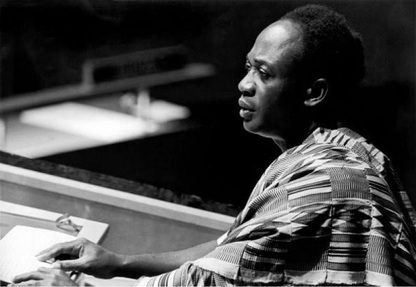 Kwame Nkrumah Kwame Nkrumah
In March 1964, when presenting Ghana’s 7 Year Development Plan to parliament in Accra, Kwame Nkrumah declared, “I have come here today to present to you, and to the people of Ghana, our Seven-Year Development Plan, which when completed, will bring Ghana to the threshold of a modem State based on a highly organised and efficient agricultural and industrial programme”. He continued, “….it is our aim, by this Plan, to eradicate completely the colonial structure of our economy”. He further stated that implementation of the plan should lead to the creation in Ghana of “a self-sustaining economy, based on socialist production and distribution. An economy balanced between industry and agriculture, providing a sufficiency of food for the people, and supporting secondary industries based on the products of our agriculture. In other words, an economy founded securely on the basis of socialist production and distribution”. With these words, Nkrumah articulated a vision of how people-centred economic development might take place in an African country. Central to this vision was the idea that the state, as the representative of society, would play a key role in the economy. Through state ownership of the key economic sectors, surpluses could be used to develop new branches of productive economic activity, thereby diversifying the economy, and providing funding for a range of social provisions for the population, such as health care and education. The state’s control of the economy would also enable it to ensure that social and economic development was fairly distributed across all regions of the country. The aim, as Nkrumah explained, was to demolish the old colonial economy that tied Ghana into a dependent economic relationship with Britain and, instead, establish a self-sustaining, balanced economy to meet the needs of the people of Ghana. In just under 2 years after this speech, on 24 February 1966, the government of Ghana led by Nkrumah was overthrown in a CIA organised coup and the 7 year development plan was scrapped by the new CIA backed regime. Now, some 50 years after that coup, Africa remains mired in economic underdevelopment. Today, neo-liberal economic dogma is enforced across the continent and the myth is being peddled that foreign direct investment (FDI) and the foreign control this brings of all the key economic sectors of African countries will bring about economic development and solve the numerous economic and social problems which millions of people on the continent face. This hostility to the role of the state in the economy is a key element of the neo-liberal economic dogma. The United Nations Conference on Trade and Development (UNCTAD) in a 2005 publication explains how this process of returning key sectors of African economies into the hands of foreign corporations, and thereby reversing some of the gains of independence, was carried out. It notes that starting in the 1980’s, soon after the adoption of neo-liberal economics by the main big powers, the International Monetary Fund (IMF) through its structural adjustment programmes began to demand that African economies be ‘liberalised’, meaning that the state should give up its ownership of key resources and hand these over to foreign multi-nationals, and by doing this, surrender its control over key sectors of the country’s economy. For example, with regard to mining, which has historically been one of the key economic sectors of various African countries, it notes that by the end of 1995, 35 of these countries had produced new mining codes which, “reduced tax levels, eased immigration laws for expatriate workers, and granted tax exemptions for imported equipment”. The drive was to transform previously state owned enterprises into the private property of the foreign multi-nationals and relegate the state to the role of tax collector with regard to these essential economic activities being carried out on its territory. However, even this role was re-organised to meet the needs of the foreign monopolies. For example, the UNCTAD publication notes that in Ghana, “corporate income tax, which stood at 50 to 55 per cent in 1975, had by 1994 been reduced to 35 per cent, and the royalty rate reduced from 6 per cent of total mineral value in 1975 to 3 per cent in 1987. Additionally, the personal remittance quota for expatriate personnel was freed from any tax imposed on the transfer of foreign exchange out of the country”. In this way, under the diktat of the IMF and World Bank, not only were key African economic resources being transferred into the hands of foreign monopolies but clear steps were being taken to ensure that the claims of the African people and governments on the wealth arising from the exploitation of these resources would be reduced to a minimum.
Today, the neo-liberal economic doctrines are being applied all over Africa to the detriment of the continent’s development and the well-being of its people. Important economic sectors of various African countries are owned by different foreign monopolies, which use their control and decision making power in these sectors to pursue their own profit driven motives. This makes it practically impossible for any African government to produce a coherent plan for the country’s balanced and sustainable economic development, in the way that Nkrumah’s government did in 1964. Even in their reduced role of tax collectors, the African governments are ineffective. The foreign monopolies use their international connections to run rings around them and , ‘legally’ and ‘illegally’, spirit away for their own personal consumption most of the wealth produced by the workers in Africa. This plundered wealth is desperately needed in African countries to fund economic and social development and to lift the mass of the people out of grinding poverty. This control of African economies by foreign corporations is pervasive. The example of Zambia with regard to sugar production and mining illustrates the disastrous nature of the current state of affairs. According to the African Statistical Yearbook 2015, Zambia has a population of just over 15 million people. 87% of the population live below the International Poverty Line of US$2 per day, over 48% of the population suffer from undernourishment and the country has an infant mortality rate of 55.8 deaths per 1000 live births. This compares with 3.8 deaths per 1000 live births in the UK. It has 1 doctor, 10 nurses and 18 hospital beds per 10,000 people while comparable figures for the UK are 28 doctors, 88 nurses and 29 hospital beds. Zambian classes contain on average 61 pupils and educational expenditure per child per year amounts to £15. It is obvious that Zambia desperately needs all its resources in order to address the very severe social problems that its people face.
In terms of economic resources, Zambia is well endowed. It has 10% of the world’s copper reserves and is the world’s largest producer of cobalt. The country has extensive fertile land and produces a range of crops such as maize, sorghum, millet and cassava, which are mainly for domestic consumption and sugar, coffee, groundnuts, rice, cotton and horticultural produce for export. Zambia also has small manufacturing and tourism sectors. It is clear that Zambia already has a sufficient range of economic resources to build a balanced and developed economy that would be able to raise the standard of living of its citizens, if these resources are under the people’s control and are used for their benefit. However, foreign control of some of its key economic sectors makes this impossible. In addition, it makes it impossible to address the problem of equitable regional development within the country. The need for this was highlighted in a 2007 Zambian government report which highlighted the fact that most of Zambia’s economic development was taking place in the Lusaka area and in the Copper Belt. Sugar is Zambia’s main agricultural product and agricultural export. Zambia Sugar plc, which is a subsidiary of Associated British Foods plc (ABF), is the major sugar producer in the country. It processes around 75% of the sugar cane produced in Zambia and is the main company engaged in exporting Zambian sugar. The company operates sugar cane estates and a sugar factory at Nakambala in South-western Zambia and employs just over 1800 full time staff and over 4000 seasonal workers. The owner of Zambia Sugar plc, Associated British Foods plc (ABF), is a huge transnational corporation which is listed on the London stock Exchange. It has an annual turnover of £12.8 billion and employs 124,000 people in 48 countries. It owns Primark, and numerous well-known brands such as Twinings tea, Ovaltine, Silver Spoon and Billington’s sugars, Jordans and Dorset cereals, Ryvita, Kingsmill bread, Patak’s and Blue Dragon curry pastes and Mazola corn oil, to name but a few. In effect, it is the board of this organisation which has ultimate decision making power over how the sugar industry in Zambia is developed.
Like other multi-nationals operating in Africa, ABF pursues an aggressive policy, including both ‘licit’ and ‘illicit’ methods which are aimed at maximising its plunder of Zambia’s workers and resources to the detriment of the country’s development. Tax Justice and Poverty in a 2014 publication details some of these methods and their impact on socio-economic development in Zambia. They point out that, Zambia Sugar plc “has effectively opted out of the corporate tax system in Zambia through a combination of ingenious and lawful tax haven transactions, and huge tax concessions awarded by the Zambian government”. They go on to state that the Zambian government has proven incapable of preventing the company from transferring “over a third of its pre-tax profits – over US$13.8 million a year – out of Zambia, into and via tax haven sister companies in Ireland, Mauritius and the Netherlands”. In addition they note that while corporation tax in Zambia is 35%, Zambia Sugar plc paid “less than 0.5 per cent of its US$123 million pre-tax profits in corporate income tax”. As if this daylight robbery was not enough, Zambia Sugar plc took the Zambian government to court in 2007 and won “a special retrospective tax break” for expanding its production facilities under the regime for encouraging foreign direct investment. In fact, Tax, Justice and Poverty report that between 2008 and 2010, Zambia Sugar plc paid no corporate tax at all. In addition to its tax dodging activities, Zambia Sugar plc, up until 2012, paid its seasonal workers 20% less than the government minimum wage and paid its permanent staff only just above this. The authors of the report highlight how this plunder of Zambia deprives the people of that country of much needed social and economic development. They point out that the taxes that the Zambian government gave up in one year alone under it so called investment inducement strategy would have been enough to tackle child undernourishment and the child mortality rate in the country. They further point out that the tax haven transactions of this company alone had deprived Zambia of a sum 14 times larger than the so-called ‘aid’ provided by the UK to combat hunger and food insecurity in that country. It is worth noting that while plundering the people of Zambia, ABF funds the Garfield Weston Foundation, a UK based charitable trust which each year gives out between £30 and £40 million to churches, community projects, education and arts organisations mainly in the UK.
Mining of copper and cobalt is an even more critical sector of Zambia’s economy. It is the country’s main export and in 2003 accounted for 64% of Zambia’s export earnings. However, this too is under the control of another foreign trans-national corporation, Glencore plc. This huge trans-national corporation, which is also listed on the London Stock Exchange, employs some 160,000 people in 50 countries and produces and trades over 90 different commodities. In 2000, under a World Bank led privatisation drive, Glencore took ownership of Mopani Copper Mines in Zambia’s copper belt. The Mopani mines, which prior to 2000 were owned by a Zambian state enterprise, produce both copper and cobalt and is one of the largest mines and exporters in the world of these minerals. Its copper is considered to be some of the purest in the world. Again, the ultimate decision making power in this critical sector of Zambia’s economy lies in the hands of the board of directors of Glencore who have no accountability to Zambia or its people. Not surprisingly, Glencore plc, like ABF, also pursues an aggressive policy of depriving the people of Zambia of their wealth in order to maximise the company’s profits. Tax, Justice and Poverty describes Glencore’s tax dodging in Zambia as being on a scale even “more massive” than the activity of ABF. They highlight the fact that a report commissioned by Zambia’s Tax authorities found that Glencore plc “sold copper to Switzerland at below market prices and increased its operation costs exponentially in the period between 2005-2007, with little justification. The audit also indicated that Mopani sold copper at artificially low prices to Glencore in Switzerland under a deal struck with the firm’s UK subsidiary in 2000. The metal was then sold on, allowing Glencore to take advantage of Switzerland’s ultra-low tax regime”. Through various fraudulent means, such as, artificially inflating its costs while undervaluing its copper exports, the company reported ‘operating losses’ and so paid hardly any corporate taxes to the Zambian government. The report also estimated that the tax dodging activities of Glencore plc cost the Zambian government some £76 million per year in revenue. It is interesting to note that when Glencore plc took over the Mopani mines, it did this through a company based in the British Virgin Islands.
The situation in Zambia is by no way unique in Africa. In fact, it is currently the norm. What this highlights, however, is the devastating impact that foreign economic intervention in Africa is having on the continent and its people. Far from bringing about social and economic development as the proponents of neo-liberal dogma claim, it demonstrates that handing over the economies of African countries to various gangs of international capitalists actually blocks social and economic development on the continent. It underlines the significance of the economic vision presented by Kwame Nkrumah over 50 years ago for the economies and resources of Africa to be in the hands of the African people themselves so that they can use these to bring about development which meets their needs.
Russia and Africa
We present part 2 in our 4 part series of articles on the relationships of the BRICS countries with Africa. This series of articles will leave out South Africa as this country is widely considered to be a special case and a junior partner within the BRICS. South Africa’s relationship with other African countries will be returned to at a later date. In Part 2, we discuss Russia's activities in Africa.
“Currently, the scope for Russian-African partnership is significantly expanding. This process is unlikely to end in breakthroughs, but there is little doubt that Russia will try hard to restore its full-scale cooperation with African countries, the success of which would assist the mutual interests of both sides and contribute to the establishment of a just and multipolar world order under the complex and contradictory conditions of the 21st century.“ http://russiancouncil.ru/en/inner/?id_4=2002#top-content June 2013
“Putin has led Russia into an active part in United Nations peacekeeping in Africa, dispatching troops to operations in the Democratic Republic of the Congo, Côte d’Ivoire, Ethiopia, Eritrea, Liberia, Sudan, South Sudan, and the Western Sahara…At the same time, Russia is pouring resources into gathering information about Africa to better shape its policymaking. To cite just one example, the Institute for African Studies within the Russian Academy of Sciences now embraces thirteen research units, a working group, and an information center, employing a total of more than one hundred academic staff members—a substantial commitment of public resources to research that is unmatched by any other government.” Atlantic Council, MARCH 13, 2014 This is the second in a series of articles taking a look at the BRICS in Africa. Part one focused on Brazil whilst this second part will look at Russia and Africa. “Trade with African countries is steadily on the rise. In 2014, it grew by 17 percent, to reach $12.5 billion … there is still a huge potential for increasing cooperation.” http://rbth.com/business/2015/07/14/continent_of_opportunity_can_russia_compete_with_china_in_africa_47729.html Russia is the biggest arms supplier in Africa, Angola being its most important client. It is highly engaged in hydro carbons (Algeria, Angola, Nigeria …) and interestingly there have been several reports of nuclear projects on the cards in Namibia, Egypt, Uganda and Kenya. “President Putin has emphasized the importance of strengthening Russia’s presence in the global arms market, including Africa. This shift towards emerging economies played a major part in boosting arms exports in 2014, reaching a record $13.3 billion — it is expected to once again surpass the $13 billion line in 2015. In fact, over the last decade, 35.1% of total arms imports in Africa originated from Russia.” Gustavo Plácido Dos Santos researcher at the Portuguese Institute of International Relations and Security (IPRIS) http://www.eurasiareview.com/19102015-russias-charm-offensive-in-africa-the-case-of-angola-analysis/ Russia’s arms industry is its second biggest export sector as well as being the second biggest arms exporter in the world after the United States. Russia today is very focused on its own economic and geopolitical interests. This can be witnessed by looking at the parts of Africa where Russia is most active. Whilst it is resource rich it faces the fact that some of its mineral resources are either exhausted or close to being depleted and, in other cases, are uneconomic and difficult to mine using its current technology in Siberia where the resources are mostly located. “A recent announcement by Uganda's Oil Ministry that a Russian company - RT Global Resources - won the bid to build a $3bn oil refinery highlights the Kremlin's attempts to return as a major player in Africa. RT Global Resources is a subsidiary of Russia's largest state-backed corporation Rostec whose CEO, Sergey Chemezov, is on US and EU sanctions lists after Russia's moves in Ukraine. Chemezov, nicknamed "Putin's arms dealer" and a long-time friend of the president, is leading the company in moves designed to ease Russia's access to strategic minerals, build much-needed trade, and bolster employment in Russia, analysts say.” Aljazeera, March 2015 Russia has a complex history in relation to Africa, as the former leading state within USSR it supported the 24,000 students who were educated in Russia annually and 200,000 in Africa including some who went on to become heads of states in Angola, Mozambique and South Africa. The USSR actually had a clause within its constitution to support anti-colonial liberation movements. With the collapse of USSR, Russia was preoccupied with internal affairs so has a lost decade as far as relations with Africa are concerned and at a time when China stepped up its pivot to Africa.
“Last year (2014) Russia launched a satellite system in partnership with South Africa, known as Project Condor, providing surveillance of the entire African continent, according to spy cables leaked to Al Jazeera. The cables identify South African and Russian military intelligence (GRU) as being the "key role players" in the project.” http://www.theeastafrican.co.ke/news/Russia-oil-guns-How-the-Kremlin-is-slowly-returning-to-Africa-/-/2558/2656760/-/950ulxz/-/index.html March 17, 2015 One recent example of how Russia is contending with the US in Africa relates to the US declining to supply Nigeria with helicopters to fight Boko Haram leading to a souring of relations. Russia stepped in and supplied Nigeria with Sukoi jets. Russia has found its relations with Africa very useful in the forum of the United Nations, when sanctions were being imposed following its annexation of Crimea many African nations abstained and there were two African nations amongst the 10 who voted against. At the same time some African countries have also found it useful to have Russia onside. One case in point is Zimbabwe. At a recent high level Russian visit by Denis Manturov, Trade Minster and Sergey Lavrov, Foreign Minister a $3 billion platinum mining deal (Darwendale project) was signed. Simbarashe Mumbengegwi, Zimbabwe Foreign Minister is reported to have praised Russia: "On behalf of the government and the people of Zimbabwe, we want to express our gratitude for your continued support to this country during an era where we were finding it difficult to penetrate the international markets,... It is in that regard that in April 2014 during a meeting, you identified the Darwendale project. You have been there for us when the western powers in 2008 wanted us to be discussed by the Security Council. You extended your veto and blocked the resolution when they wanted to punish us, and if it were not for you, we could have been destroyed'." Manturov said Russia was keen to invest in several other sectors in Zimbabwe including agriculture, energy, infrastructure development, tourism, and health. In June this year, a Russian consortium made up of Vi Holdings, state defence conglomerate Rostec and Vneseconombank (VEB), announced plans to explore the platinum concession in Darwendale. Russia has in recent years increased its mining interests in Zimbabwe where it is already exploiting gold and diamonds. The Darwendale project, with production capacity of 600,000 ounces of platinum annually, is expected to become Zimbabwe's biggest mining operation...”
http://www.theafricareport.com/Southern-Africa/russia-zimbabwe-in-3bn-mining-deal-negotiations.html In some ways Russia is playing catch up with the other big players but its serious long term intent is clear from the scale of resources dedicated to Africa in different respects e.g. academic research facility, huge arms deals, spy satellites, mega oil/gas pipeline, bilateral and multi-lateral meetings and nuclear projects etc. In a period where international tensions are high with the West, Russia like the other BRICS sees vast and growing opportunities in Africa in competition with its major rivals.
“Ana Christina Alves, senior researcher at the Global Powers and Africa Programme at the South African Institute of International Affairs (SAIIA) and co-author of the report, explains: “Military equipment is undoubtedly the largest and most profitable side of Russia’s trade with Africa though the figures [for arms] unfortunately don’t feature in official bilateral trade data. If these were included, the bilateral trade volume would appear much more impressive.” Irina Filatova, Professor Emeritus at the University of KwaZulu-Natal in South Africa and a professor at the National Research University, Higher School of Economics in Moscow, explains why Russia is keen to keep up this trade. “Much of Russia’s exports to Africa consist of military equipment,” she says, “and Russia has not found a market for many of its other exports in Africa. Military equipment is obviously a solid source of funds for Rosoboronexport and ultimately for Russia’s budget.” Furthermore, the benefits of African arms deals to Russia can seem all the clearer when delving into the actual equipment being traded. According to reports, for example, Russia had been hoping to offload the 18 Su-30 fighter jets to be sent to Angola as part of the recent $1 billion deal ever since India returned them in 2007. They were first sold to India in the late 1990s, and as the country upgraded its military hardware, it used the older Su-30s in part-exchange deals. It is from these returned jets that Angola will acquire its “new” equipment, but this kind of arrangement is far from unique. “It is not the first time Russia has sold less-advanced, outdated, or even below standard military equipment and arms to Africa,” says Shaabani Nzori, graduate of the Gubkin Oil and Gas University and independent analyst based in Moscow. “Russia and its leaders always try to offload their useless, outmoded and obsolete machinery and equipment to Africa, and surprisingly, the Angolan leadership is accepting this.” Nzori continues, “Of course, Africa should not stop buying Russian arms, but what is really needed is for African governments to be more demanding that they get the right modern arms, and military equipment and not accept to be a waste bin and dumping grounds for Russian obsolete machinery.” http://africajournalismtheworld.com/tag/angola-russia/ Nov 4 2013 As an assertive World power seeking new spheres of influence Russia’s activity in Africa poses dangers for African people. One aspect of this is the increasing contention between Russia and the West which threatens a repeat of the many negative consequences of the cold war era which lead to proxy wars in Africa and many African countries laden with huge debts mainly from the supply of arms. Present day Russia like other imperial powers are in Africa to secure their own naked interests at the expense of the African people. “Given growing competition and so far insufficient efforts put forth by the Russian business and government in improving the situation, the role of Russia in gaining access to African resources will remain unduly limited... The experience of West European and Chinese businessmen shows that high profits derived in Africa outweigh all existing commercial and political risks, problems with African bureaucracy and corruption, and deficiencies in the financial and banking systems and other structures. The outflow of profits from Africa was somewhat lower than the inflow of foreign direct investments only at the beginning of the 21st century. On the eve of the 2008 crisis, this difference was 20 billion dollars, with FDI inflows reaching $ 60 billion and the outflow of profits being slightly above $ 40 billion [12]. The volume of Russian-African trade turnover (10.9 billion dollars) is disappointingly low and causes anxiety, even if it is 1.5-2 times higher as the African statistics suggest. We have reason to believe that in the next decade the situation will change for the better. Africa is a market with growing demand and significant improvements in its structure.” http://russiancouncil.ru/en/inner/?id_4=2002#top-content June 2013 by Evgeny Korendyasov PhD, Head of Center for Russian-African Relations Studies at RAS Institute for African Studies and Aleksey Vasilyev Director of the RAS Institute of Africa, RAS Full Member, RIAC Scientific Council member The International Criminal Court – a mechanism for criminalising opposition to foreign intervention in Africa
The International Criminal Court (ICC) was established on 17 July 1998 when 120 states adopted the Rome Statute which is the legal basis of this organisation. The court, which is based in The Hague, Netherlands, should not be confused with the International Court of Justice (ICJ). The latter is part of the United Nations and deals with legal disputes between UN member states. The ICC, on the other hand, is not part of the UN and has as its stated aims to “exercise its jurisdiction over persons for the most serious crimes of international concern” and to “to put an end to impunity for the perpetrators of these crimes”. The Rome Statute identifies these crimes of concern as genocide, crimes against humanity, war crimes and the crime of aggression. The Rome statute entered into force on 1 July 2002 and so only deals with crimes which took place after this date.
One striking feature about the establishment of the ICC was that the organisation started life without and agreed legal definition of the crime of aggression and so could take no action against those who organised and carried out his crime. This was a rather striking omission, given that as far back as the Nuremberg Tribunals in 1950 crimes against peace were already clearly legally defined as; (i) Planning, preparation, initiation or waging of a war of aggression or a war in violation of international treaties, agreements or assurances; (ii) Participation in a common plan or conspiracy for the accomplishment of any of the acts mentioned under (i). Furthermore, such was the clarity on these matters at the time, that the chief American prosecutor at the Nuremburg Tribunals, Robert H. Jackson, described the crime of aggression thus: “To initiate a war of aggression, therefore, is not only an international crime; it is the supreme international crime differing only from other war crimes in that it contains within itself the accumulated evil of the whole”. Notwithstanding the existing body of international law, the ICC, at its inception was unable to legally define the crime of aggression which Jackson had described some 50 years earlier as the ‘supreme international crime’ which contained all the other war crimes within itself. Eventually, in 2010 at its meeting in Kampala, Uganda, the ICC established a legal definition for the crime of aggression and the conditions under which such a crime would fall within its jurisdiction after 1 January 2017 when this agreement enters into force. These conditions are essentially two. First, a crime of aggression only comes within the jurisdiction of the ICC if it is referred to it by the security council of the UN. Secondly, a state which is party to the Rome Statute can refer a situation to the ICC if it thinks the crime of aggression has been committed. However, before the ICC can act, it must approach the UN Security Council to find out if this body has determined that a crime of aggression has taken place. In addition, states which are party to the Rome statute can opt out of the court’s jurisdiction with regard to crimes of aggression and those states which are not party to the Rome statute, such as the USA, are specifically excluded from the ICC’s jurisdiction with regard to the crime of aggression. This contrasts strongly with the situation regarding the other crimes with which the court allegedly deals, namely genocide, crimes against humanity and war crimes. The court’s jurisdiction applies to all countries for these crimes, whether or not they are parties to the Rome Statute, as long as they are referred to it by the UN Security Council. Through these mechanisms, the big powers which hold vetoes in the UN Security Council are able to carry out crimes of aggression and all the other war crimes that these entail with utmost impunity. This is why today when aggression, regime change and mass human right violations have become the preferred method for the big powers to secure their interests, the perpetrators of these crimes, like Blair, Bush, Cheney, Rumsfeld, Sarkozy, Aznar, Obama, Hillary Clinton and others are walking around scot free. Therefore it is crystal clear that from its outset, the ICC was not set up to prosecute ‘serious crimes of international concern’ nor to ‘to put an end to impunity for the perpetrators of these crimes’.
Notwithstanding its inability to bring to book the major war criminals of our time, the ICC has busied itself with Africa. Of its 10 cases which the ICC currently lists on its website, 9 are in Africa. Observers note that of the 39 people who have been indicted by the ICC, 38 are Africans. This vigorous pursuit of Africans by the ICC is contrasted with its approach when it comes to others engaged in war crimes. For example, on 5 July in 2013 the Comoros Islands referred a case for consideration to the ICC, since the boats which were in the peace flotilla to Gaza and which were attacked by the Israeli army were registered in the Comoros. On 6 November 2014, the ICC rejected the Comoros case on the grounds that it did not meet ‘the legal requirements of the Rome Statute’. In reality, the ICC in Africa operates as the legal arm of the USA/EU/NATO axis and its role is to criminalise any opposition to the interference of these forces in Africa. Currently, the former president of Ivory Coast, Laurent Gbagbo, is being ‘tried’ by the ICC in The Hague. His crime relates to his opposition to the French and UN intervention into the affairs of Ivory Coast following the elections in that country in 2010. The contested results of the November election that year proved to be the trigger for massive French and UN interference in Ivory Coast for the purposes of propelling their preferred candidate into power and for overthrowing the then government of Laurent Gbagbo which was viewed as unacceptable to the USA, Britain and France. Working closely with the troops of the so-called United Nations Operations in Cote d’Ivoire (UNOCI) which has been active in that country since 2004, the French troops overthrew the government of Laurent Gbagbo and installed their preferred candidate, Alassane Ouattara, a former IMF employee. Another case in point is that of Libya. In the lead up to the NATO attack on Libya and in order to facilitate it, the ICC rushed out indictments against Muammar Gadhafi and other leading members of the existing Libyan government. In this way, the ICC plays a key role in legitimising the attacks on Africa and criminalising any opposition to these attacks. Not surprisingly, the real war crimes that NATO committed in Libya, including the aggression itself, the ethnic cleansing of places such as Tawergha and the racist pogroms against West African migrants who were living in Libya at the time are of no concern to the ICC.
Clearly recognising the dangerous role that the ICC plays with regard to Africa, there are growing moves on the continent to disentangle Africa from this organisation. In October 2015, South Africa withdrew from it and at the 26th annual assembly of the AU in Addis Ababa in January 2016, the organisation agreed to create a road map for the withdrawal of the AU member states from this organisation. This is a step to be applauded. The Neo-Colonial Nature of the European Union and its intervention in Africa
The current debates in the monopoly controlled media concerning the future of Britain’s membership of the EU are presented from the perspective of falsifying its essential character. The EU remains the organisation of the big monopolies and financial institutions of Europe, especially those of Britain, France and Germany, and acts on the basis of the requirements of these interests not those of the peoples of Europe nor those in other parts of the world. The EU has, for example, established a neo-colonial relationship with the counties of Africa. This is based on the unequal relationship that was established historically, first during the centuries when African men, women and children were trafficked across the Atlantic Ocean and which was continued when the leading European nations, such as Britain, France, Germany, Portugal, Spain and Italy invaded and divided the African continent in the period leading up to the First World War. For much of the twentieth century Britain and the other major European powers militarily occupied the African continent and argued that it was their right to exercise colonial rule. In many cases this relationship between Europe and Africa was only ended by armed national liberation struggles. Yet Britain and the other countries that dominate the EU have accepted no responsibility for the crimes committed over centuries relating to Africa and Africans, refuse to accept demands for reparations and continue to interfere in Africa’s affairs. Indeed, further crimes are being carried out. These include examples, such as, sanctions against Zimbabwe both by individual EU countries and by the EU as a body, the actions of the EU towards African migrants and the recent military intervention in the Central African Republic.
Today the EU claims that it is in “partnership” with the African Union (AU), the organisation of African states that was first established in 1999 precisely to address the many problems caused by neo-liberal globalisation. This “partnership” has been consolidated by various agreements and mechanisms and yet there can be no real partnership of those that are not equal, or when one party dictates to the other. This unequal “partnership” was formally established by the Cotonou Agreement of 2000 which governs the EU’s relations not only with the African continent but also with other countries of the Caribbean and the Pacific (ACP) until 2020. This agreement is based on the Eurocentric values enshrined in the Paris Charter and facilitates the intervention of some of the world’s wealthiest and most powerful countries in the affairs of some of the poorest.
Amongst other things, Britain and the other big powers in the EU have used revisions of the Cotonou Agreement to force African and other APC countries to bind themselves to the authority of the International Criminal Court (ICC), which is itself another arm of the EU, mainly funded by Britain, France, Italy and Germany. Countries which refused faced financial penalties. Not only does the ICC not have any concern for or jurisdiction over the colonial crimes committed by Britain and the other big European powers in Africa, but to date nearly all the major investigations and prosecutions carried out by the ICC have been in Africa. This has created such opposition that it seems likely that the AU will formally withdraw from the ICC.
Although refusing to accept that wealth accumulated in the EU is in part a product of the exploitation of Africa over many centuries, the EU uses this wealth to continue its intervention in the continent. The EU countries are the main source of foreign direct investment in Africa, despite competition from China and the US. From 2007-2013 the EU provided €141 billion in “development assistance” to Africa and it remains the major financial contributor to the AU, providing 80% of the AU Commission programme budget. Through such means both individual African countries and the AU remain in a dependent relationship with the EU which continues to give itself the right to intervene in Africa’s economic affairs. The nature of the EU’s intervention in Africa can also be judged by the free trade agreements, or Economic Partnership Agreements (EPA), established with individual African countries, or regions such as the Economic Community of West African States (ECOWAS), which also form part of the Cotonou Agreement. Since these “agreements” are not between equals they are designed to open up Africa’s economies to the big EU monopolies. Countries that refuse to sign, such as Kenya, are pressured to do so by the threat of the imposition of tariff barriers. The EPAs were widely opposed by the workers’ movement in Africa and other ACP countries and by the TUC and other trade union centres in Europe, nevertheless they constitute the main basis for the economic relationship between the EU and the AU as well as other ACP countries. The relationship established between the EU, Africa and other ACP countries is one of neo-colonial domination and imperialist intervention and must be ended. Foreign Direct Investment undermines African economic independence and fuels foreign intervention
In the current world situation, neo-liberal economic doctrine, which upholds the interests of the monopolies, prevails. According to this theory, foreign direct investment (FDI) is the only means available for countries to achieve economic development and address the challenge of raising the people’s standard of living. The World Bank estimated that in 2010 48.5% of Africa’s population south of the Sahara were living on no more than $1.25 per day and so were classified as living in extreme poverty. The followers of neo-liberal economics argue that the solution to this problem lies in the flow of FDI into the continent.
In fact, today, The World Bank states that Africa has become second most attractive destination for FDI in the world, second only to North America. The World Investment Report for 2015 published by the United Nations Conference on Trade and Development (UNCTAD) notes that FDI into Africa reached $54bn in 2014 up from only $6bn in 1996. Although the 2014 figures for FDI into Africa represent only 4.4 % of the global 2014 FDI, which UNCTAD estimates at just over US $ 1 trillion, it does demonstrate the significant and increasing interest that international finance capital is now taking in Africa. The Financial Times stated that in 2014 Africa saw a 65% increase in FDI as compared to the previous year. It should also be noted that in the current global economic conditions, investment into Africa offers the highest rate of return on capital currently available to investors.
As a consequence, numerous monopolies are descending on Africa and seizing various sectors of the economies of different African countries. Although, historically, foreign monopolies have concentrated their attention on the primary sector of African economies including, agriculture and mining, the current wave of FDI is spread across all sectors of the economy. According to UNCTAD, by 2012, 48% of FDI in Africa was focused on the services sector, 31% on the primary sector and 21% on manufacturing. The UK, France and the USA remain the principal owners of FDI in Africa which UNCTAD estimates now stands at $709bn. Ernst & Young data on FDI projects in Africa in 2013 identified the UK as the principal source of FDI investment into Africa in that year with investments worth some $4.6 bn, more even than the USA whose investments amounted to $2.6bn. Ernst & Young report that the UK investments were focused primarily on business services (20%), financial services (15%), and technology, media and telecoms (TMT) (15%). UNCTAD notes that of the $88bn in announced new FDI projects for Africa in 2014, $47bn came from the European Union of which $19 bn came from France and $8bn from the USA. It is also interesting to note that a further $10bn emanated from within Africa primarily South Africa and Nigeria and $15 bn from Asia of which $6 bn originated in China and just over $1bn in India. "IHS Holding Limited, partially owned by a Goldman Sachs–led consortium, is now Africa’s largest mobile telecommunications infrastructure provider." A further interesting aspect of FDI flows into Africa is how various multi-national corporations seize control of entire sectors of the economies of African countries. For example, UNCTAD reports on the case of IHS Holding Limited. This company is partially owned by a Goldman Sachs–led consortium and is now Africa’s largest mobile telecommunications infrastructure provider. As a result of its acquisition of mobile towers in numerous African countries including Rwanda, Zambia, Cameroon and Côte d’Ivoire, IHS now manages over 21,000 towers in Africa. African Arguments reports that in 2014, Danone, the world’s biggest yoghurt company, bought a 40% stake in East Africa’s largest milk producer, Brookside Dairy Limited, giving it access to 140,000 milk farms across the region. Danone also plans to raise its stake in Morocco’s Centrale Laitiere, which commands a 60% share of that country’s dairy market. In Ethiopia, the Huajian Group is a Chinese footwear manufacturer that opened a factory in Ethiopia. It is now Ethiopia’s largest footwear producer and accounts for over half the country’s footwear exports. This situation is replicated across the continent in every sector of the economy. Not surprisingly, all the major monopolies are stepping up their activities in Africa. These include the likes of Wallmart, General Electric (GE), IBM and many more. Following President Obama’s launch of his ‘Power Africa’ investment initiative in 2013, two of the largest private equity firms in the US, The Blackstone Group and The Carlyle Group have entered into the field to invest in Africa. The objectives of these investors are best summed up by Jeffrey Immelt the CEO of General Electric who declared in 2014, “We kind of gave Africa to the Europeans first and to the Chinese later, but today it’s wide open for us”.
FDI poses a significant threat both to African economic and political independence. First, with the control of entire sectors of African economies falling into the hands of foreign monopolies, the governments and people in these countries lose power and are at the mercy of the monopolies which make decisions based on their narrow drive for profits without any regard for the impact on the general society. Secondly these decisions are made by the owners of the FDI who are usually located outside of the African continent and who make these decisions based on what best serves the monopoly in its global competition and its drive to increase its profits. In addition, with the various sectors of the economies of African countries in the hands of different monopolies, each pursuing its own interests, it becomes impossible for African governments to develop and implement a coherent policy for the all-round economic development of the country and the improvement of the people’s well-being. These huge foreign investments in the continent fuel other types of intervention. From corrupting private and public officials, through interfering in the political decision making in the country all the way to wars of aggression, the monopolies and the imperial states they control are driven to act in order to defend their investments in Africa. Far from representing a solution to the many problems Africa currently faces, FDI adds to these by undermining African economic independence and fueling other forms of intervention.
Africa and the BRICS
We begin a 4 part series of articles on the relationships of the BRICS countries with Africa. This series of articles will leave out South Africa as this country is widely considered to be a special case and a junior partner within the BRICS. South Africa’s relationship with other African countries will be returned to at a later date. In Part 1, we discuss Brazil's activities in Africa.
“The world economy is throwing up reasons to worry, as the globe's largest emerging markets have shown signs of deterioration over the last six months, says Olivier Blanchard, the former long-serving chief economist of the International Monetary Fund. “China’s growth is probably less than officially reported. Russia and Brazil are doing very badly. South Africa is flirting with recession. Even India may not be doing as well as was forecast,” says Oliver Blanchard, who left the Fund after seven years late last year.” Mehreen Khan, Telegraph, 06 Feb 2016 “Africa’s economic growth should strengthen to 4.5% in 2015 and 5% in 2016 close to levels seen before the 2008/09 global crisis.” 11 Feb 2016 http://www.africaneconomicoutlook.org/en/outlook/ In the last decade there has been an intensification of interventions in Africa. One of the most notable aspects of this is the role of the Brazil, Russia, India, China, South Africa association (BRICS). According to the United Nations Economic Commission for Africa ‘trade with the BRICS has grown faster than with any other region in the world, doubling since 2007 to $340 billion in 2012, and projected to reach $500 billion by 2015’. In his 2014 book Africa Rising: BRICS Diversifying Dependency, Ian Taylor, Professor of International Relations at University of St Andrews, argues that “What has accompanied such developments is the apparent sudden realisation that Africa is not marginal to the world. Sub-Saharan Africa is in fact very well integrated into the global system and has been for decades. It is the pundits, as well as diverse speculators and opportunists, who have abruptly discovered that Africa’s foreign trade represents 45% per cent of it Gross National Product (compared to 30 per cent for Asia and Latin America and 15 per cent for the core countries). Quantitatively, the continent is ‘more’, not ‘less’ globally integrated. However, the problem…. Is the terms of this integration.” Neo-liberal Framework
On the contrary, the real problem is the neo-liberal framework within which this integration is taking place not simply the terms of the integration. In other words, the integration itself may be the problem, despite the fact that the champions of the neoliberal model argue that the solutions for Africa lay in greater integration into global production units.
Africa currently has a population of over a billion, 70% of whom are categorised by demographers as youth. The United Nations Department for Population(UNDP) project that by the end of the 21st century Africa’s population will reach 3.2 billion. It is a resource rich continent whether one looks at precious metals, minerals, timber, fish stocks, oil, gas, shale etc but the populations of Africa have not benefited from this bounty. Since the advent of colonialism, foreign interventionist powers have. “42% of healthcare facilities in Africa do not have access to safe water.” (WHO/UNICEF 2015) “….two thirds of people in sub-Saharan Africa do not have access to reliable electricity …The average person in the UK uses 150 litres of water a day… in the USA, over 570 litres….Water in Accra, Ghana, costs three times as much as in New York …Lack of water, sanitation and hygiene costs Sub-Saharan African countries more in lost GDP than the entire continent gets in development aid.” (Using percentage estimate from UNDP: Human Development Report, 2006) One can mention millionaires in West Africa and billionaires in South Africa, a growing middle class throughout the continent to the tune of hundreds of thousands but the reality is that large proportion of African people are surviving on less than $1.25 a day and living challenging, insecure and precarious lives ravaged by poverty, inadequate or non-existent education facilities, health and other social services. This situation is compounded by the many resource wars sponsored by foreign interests or in some cases directly initiated and carried out by these foreign powers. Even now there is talk of western powers militarily intervening in Libya again despite the widespread acceptance that the first intervention contributed to the destruction of that country, the current refugee crisis in Europe and the destabilisation and increase in terrorist activity in the region. These foreign interventions which are part of the scramble for Africa or scramble in Africa are leading to ever more proxy wars. The BRICS
Into this scenario the BRICS have stepped, pursuing their own interests and claiming to be better partners to Africa than the western imperial powers and institutions of domination. The BRICS are characterised by their large, fast growing economies. With a combined population of 3 billion, 42% of the world population, they have a combined GDP of 16$ trillion and combined foreign reserves of $4 trillion. They are all members of the G20 and have a big influence in global affairs. The BRICS issued a statement criticizing the invasion of Libya but they did not use their double veto (Russia and China) to block the UN resolution on which it relied. Russia currently holds the chair of the group which last met in the July 2015 summit.
For centuries, the old western powers have utilised and exploited Africa, its people and resources for their own interests. In the 2nd half of the 20th century with the bi-polar division of the world they faced a stiff challenge from the Soviet Union and its allies. Following the collapse of the Soviet Union (late 80s/early 90s) the western powers were virtually unchallenged for a decade but this situation has been comprehensively overhauled by the arrival or in some cases re-engagement of the emerging powers on the African scene. This development reflects growing contention between east and west. The emerging powers present themselves as part of a south-south cooperation for mutual benefit but this has to be seriously questioned. Just like the western powers, their activity on Africa is associated with high levels of corruption, illicit financial flows, tax avoidance and unequal contracts. Meanwhile, the numbers of people living on less than a $1 a day in Africa is rising. In the longer term the increasing levels of military and espionage activity on the continent, which are part of this scramble for Africa’s wealth, may pose the greater threat as has already been witnessed with the loss of millions of lives in the proxy wars for the resources of the Democratic Republic of Congo, to give just one example. Brazil
“Unite the voices of the global south”
President Luiz Inacio Lula da Silva With the above words President Luiz Inacio Lula da Silva succinctly summarised his administration’s foreign policy strategy which he further elaborated with the statement, “……. A new global political and economic geography will only be possible if actors with similar interests choose direct dialogue and joint action in international fora”. This view underpins the logic for the formation of the BRICS. Brazil is a huge country, the 5th largest by area in the world, with the 6th largest economy in the world ($3.208 trillion GDP(PPP)) and a population of 205 million. Like other emerging countries, it seeks its place in the world consummate with its stature. In Africa, Lula saw an opportunity for Brazil to prove itself and achieve a number of strategic objectives. Brazil increased the number of its embassies in Africa from 12 to 37 within the decade of his administration 2003-2010, more in total than the United Kingdom, with a similar increase of African embassies in Brasilia 18 out of the 34. In the same time-frame trade has increased from $4.2bn to $27.6bn with oil and natural resources accounting for 90% of Brazil’s imports. Brazil sees Africa as a key constituency in its pursuit of a permanent seat on the UN Security Council. The big players in Brazils engagement in Africa are Vale - mining, Petrobas - hydrocarbons, Odebrecht – construction, Andrade Gutierrez – construction and Camargo Correa – housing. These are largely financed by Brazil’s National Development Bank(BNDES) which opened offices in South Africa in 2013.
The Americas and Africa used to be part of the same landmass, 3.5 million enslaved Africans were taken to Brazil and today Brazil has a considerable black population, consequently Brazil and Africa share deep rooted cultural affinities. The similarities between the two Atlantic regions are numerous and it is these factors which Brazil seeks to harness as a competitive advantage against others, including its BRICS partners. Lula was criticised in Brazil for placing his African engagements ahead of relations with his more powerful northern neighbour and with Europe, administrations with which Brazil historically had limited influence. Lula made 12 trips to Africa visiting 29 nations and his successor President Dilma Rousseff, despite being regarded as less interested in foreign affairs, visited three African nations in the first year of her administration thereby sending a powerful signal of continuity.
Despite appearances, Brazils interests in Africa are not exactly the same as the other emerging powers and this is reflected in how it has been conducting its business in Africa. In fact, Lula openly criticised the Chinese approach of importing Chinese personnel on mass. Many commentators have argued, for example, Camody in The Rise of the BRICS in Africa, that the Brazilian engagement has been more successful because they appear to have more the long game in mind. Brazil has invested $2.9 bn in development aid focused largely on technical skills transfer, and having a similar geology and climate to Africa, it openly shares its know-how using its Brazilian Corporation Agency (ABC) and Brazilian Agriculture Research Corporation (EMBRAPA). EMBRAPA opened offices in Ghana in 2006. Having achieved its own Millennium Development Goals five years early, some commentators believe that Brazil is better positioned than others to assist in replicating this success in Africa than others. “Forging ties with African countries through the provision of development assistance has enhanced Brazil’s bargaining power and international status. Whereas the benefits in terms of support for its campaign to gain a seat at the UNSC remain uncertain, Brazil has profited from its Africa engagement in an indirect way. By engaging in a foreign continent and offering development assistance, this Latin American country has achieved an impressive role change. Associated until recently with a broad range of economic and social challenges itself, it has transformed itself into a model for successful development……..Brazil’s Africa engagement should thus not be seen as a pure economic strategy and even less as a simple policy to secure resources. Its involvement and growing presence in Africa reflects the country’s broader foreign policy ambition of being recognized among the key players in world politics. Gaining economic presence and conquering new markets has been only one element of this ‘grand strategy’ towards Africa.” Christina Stolte, Brazil in Africa: Just another BRICS seeking resources in Africa?, Chatham House, November 2012
Brazil, its development agencies and multinationals are in Africa to pursue their own political and economic interests. They started in the Lusophone countries of Angola and Mozambique but have spread throughout the continent. Brazilian policy makers claim, with some merit, that their approach, experience and technology are more suited to the African environment. In addition, since Brazil has similar natural resources to Africa it is not dependent on imports from Africa unlike China and India who lack these resources domestically. Rather, it wishes to diversify sources of energy and natural resources and find new markets for its significant manufacturing sector including arms. It may surprise some to know that “Brazil is the fourth biggest global exporter of light arms, ahead of Israel, Austria and Russia… it exports 2,456 arms a day” Publica 2012 and as such it supplies no less than 21 African countries. In the longer term its key priority is to become the partner of choice for Africa and to capture a sizeable share of the growing African market for consumer and other manufactured goods. Brazil also has the strategic aim of gaining control of the south Atlantic. They have adopted a different strategy than their BRICS partners in some regards, for example, their companies largely employ local staff and assist some African countries to gain expertise, fight poverty and improve health and social programmes based on the Brazilian model. One outcome of this is that Ghana now exports ethanol using know-how acquired from its Brazilian connections. This is controversial in that land which could otherwise be devoted to food production is being diverted to fuel production for export. Ethanol has become Ghana’s fourth biggest export next to hydrocarbons, cocoa and gold. At the same time Brazil has become a major arms supplier to Africa thus contributing to the increasing militarisation of the continent. In many ways it is creating a new set of dependencies, for example, in Angola the biggest private employer is a Brazilian company. So, overall, the impact of Brazilian intervention is to diversify the options faced by African countries. It is still not a relationship of equals and Brazil is gaining more out of the bargain than the African people but when the other BRICS countries are examined, it will become clearer how Brazil compares.
Britain and the big powers must cease all intervention in Libya
In recent comments Britain’s Foreign Secretary, Phillip Hammond, appeared to rule out any direct use of British combat troops in a new NATO invasion of Libya. His comments were made following a meeting of over twenty foreign ministers of countries that are part of the US-led coalition established to allegedly combat the growing presence of the sinister IS/Daesh in Iraq, Syria and Libya. Hammond’s statement also came at a time and when there were some indications that NATO and its allies were preparing for new armed intervention in Libya, five years after previous military intervention and bombing of the country led to regime change, as well as the assassination of Libya’s leader Muammar Gaddafi, and ushered in the destruction, anarchy and human suffering that now exists in what was Africa’s most developed country.
In 2011 Britain, the US and the other NATO powers mendaciously claimed that their military intervention in Libya was for humanitarian purposes and in order to uphold the ‘right to protect’ civilians from being massacred. However, the fact is that it was NATO’s intervention that has allowed such massacres to be carried out on a regular basis for the last five years. The big powers have continued to intervene in the internal affairs of Libya, not least to attempt to broker a peace agreement between two of the major warring groups, each of which claims to be the government of the country and one of which is formally recognised by NATO and its allies. Under the auspices of the UN an accord was reached late last year, but the two rival ‘parliaments’ have refused to ratify it and the country continues to exist in a state of civil war, a situation that has led to hundreds of thousands of Libyan refugees seeking sanctuary in Europe, while Libya has also become the embarkation point for thousands more refugees from Africa and Western Asia attempting to cross the Mediterranean. UN agencies now estimate that over 3 million Libyans have been affected, or displaced by violence. A dire situation now faces 2.5 million Libyans, who urgently need humanitarian assistance and health care in a country which has a critical shortage of health care workers as the majority were evacuated from the country in 2014. The other major consequence of NATO intervention has been to create the conditions for the sinister Daesh/IS to establish itself in Libya, especially around the city of Sirte, as well as elsewhere in the region. The instability caused by NATO military intervention in Libya has spread across the Maghrib and has impacted as far as Mali and Nigeria. It now appears that the rationale for further NATO military intervention is the claim that it is necessary in order to deal with the threat to Europe posed by Daesh/IS.
Although Hammond and the representatives of the US, France and their allies have played down reports that a new invasion is imminent, there were media reports that members of Britain’s secret services, RAF and Foreign Office flew to Libya last week, to meet with their counterparts from the US and France, as part of the preparations for further military intervention in the country. These meetings occurred at the same time that leading US military personal suggested that armed intervention was imminent.
It now appears that Britain and its allies are eager to see a new ‘government of national unity’ established in Libya first, so that they might then claim that renewed external intervention has been invited rather than imposed. They also hope to present such military intervention as merely for the training and organisation of a new Libyan army. There are still reports that a NATO force of some 6000 led by Italy could at some stage in the near future be deployed in this role. As Hammond pointed out in his comments, the British government still intends to intervene in Libya but under the guise of supporting the yet to be established new Libyan government and its armed forces. History has shown that the intervention of Britain and the other big powers under whatever guise in Libya, as well as other countries in Africa, has only brought increased suffering to the people that it is claimed need ‘protection’ and had created even more instability and the conditions for further conflict. Britain and the other big powers that have created instability in Africa and around the world, millions of refugees and other problems then pose as those best suited to act as saviours. It is the responsibility of all democratic people to take a stand against such intervention, which completely disregards the sovereignty of nations and peoples and is designed to establish proxy states and even whole regions which are either completely under the sway of the big powers, or so unstable that they cannot chart their own independent course of development. The people of Libya and other African countries are opposed to such foreign intervention and destabilising wars that are only of benefit to the geo-political interests of the big foreign monopolies and financial institutions. They are seeking ways to empower themselves and take the struggle against all forms of colonialism to complete victory. At the same time there is an urgent necessity for those who are citizens of Britain or the other big powers to create the conditions for anti-war governments which abolish foreign intervention and war and and put the interests of all people in first place. The US Africa Command (AFRICOM)
One of six global military commands within the United States Department of Defense unified command structure - each of which co-ordinates the activities of the country’s hundreds of military bases - U.S. Africa Command [AFRICOM] splits the 50 plus countries of the African continent into 5 regions. Each one - East, North, West, Central and Southern is declared to be an area of [self-proclaimed] responsibility [including Egypt] and is how AFRICOM facilitates political interference, military intervention and exploitation of the continent’s natural resources on behalf of US monopoly interests. Billions of dollars are estimated to have been invested to build bases, arm allies, gather intelligence, conduct proxy wars, carry out drone attacks [usually for targeted assassinations], and pursue military missions estimated to be in the thousands.
In this respect credible accounts report that the United States reached an “implementing arrangement” in May 2014 with Djibouti “that secures [its] presence” in that country “through 2044” [based at Camp Lemonnier.] Additionally, AFRICOM publicity openly alludes to the possibility of building a string of surveillance camps stretching along Africa’s northern tier. Along with these projects, and since Barack Obama’s presidency began in 2009, the United States military has established staging areas, mini-bases, and airfields in Senegal, Mali, Burkina Faso, Niger, the Central African Republic, South Sudan, Uganda, Kenya, and Ethiopia and - reportedly Chad (where AFRICOM is said to have built facilities for a special operations exercise).
Such reports are given credence by accounts of a meeting in January 2015 where representatives from the United States and 12 allied states convened at MacDill Air Force Base in Tampa, Florida for the Silent Quest 15-1 military exercise. The war game - the latest in a series conducted since March 2013 - to navigate special operations interventions in Africa between now and 2025 - focused on the rise of the fictitious “Islamic State of Africa” over parts of Nigeria, Niger, and Cameroon. According to figures released by AFRICOM in its “posture statement,” the US military conducted 68 operations in 2014, up from 55 the previous year. Alternative reports calculate that the United States carried out 674 military activities [annual operations, exercises, and military-to-military training events] across Africa, since US Africa Command (AFRICOM) was established in 2008. These included operations Juniper Micron and Echo Casemate, collaborating with French and African interventions in Mali and the Central African Republic; Observant Compass in central Africa [ostensibly against the Lord’s Resistance Army]; and United Assistance, where military personnel were deployed to combat the Ebola situation in West Africa. With headquarters in Stuttgart, Germany and commanded by General David M. Rodriguez since 2013, U.S. Africa Command oversees a multifaceted web of [1] military exercises, [2] a [United States] National Guard Partnership Programme, and what are described as [3] Security Cooperation Programmes and other [4] Operations. The objective of these ongoing projects is presented as a means to develop “capable, professional partner military forces”, and are integrated into and coordinated with the U.S. Department of State, their Chiefs of Diplomatic Missions, and with international partners.
Each of the four activities are outlined in the AFRICOM website and it’s “What We Do” link. Increasing from 10 in 2013 to its current 15 joint military exercises, conducted with partner militaries and described as examples of “professionalism and U.S. core national values”, with AFRICOM - portrayed as trainers - is said to: “encourage the development of security capabilities” and entrenching of “a professional ethos among African military elements”. The exercises [see below] included African Lion in Morocco, Western Accord in Senegal, Central Accord in Cameroon, and Southern Accord in Malawi. AFRICOM also conducted maritime security exercises including Obangame Express in the Gulf of Guinea, Saharan Express in the waters off Senegal, and three weeks of maritime security training scenarios as part of Phoenix Express 2014, with sailors from several countries including Algeria, Italy, Libya, Malta, Morocco, Tunisia, and Turkey.
• Africa Endeavor • African Lion • Atlas Accord • Cutlass Express • Eastern Accord • Flintlock • Med Accord Central • MEDLITE • Natural Fire • Obangame Express • Phoenix Express • Saharan Express • Southern Accord • Southern Warrior • Western Accord The National Guard State Partnership Program is defined as a key U.S. security cooperation tool to “enable cooperation across all aspects of international civil-military affairs and to encourage people-to-people ties at the state level”. The website reports the initiative as a means to “directly support Department of Defense objectives and theater campaign plans by building relationships that enhance global security, understanding and cooperation”. There are currently 12 State Partnerships between the United States and African nations: • California is partnered with Nigeria • New York and South Africa • North Carolina and Botswana • The North Dakota National Guard is partnered with three countries, Ghana, Togo and Benin • Michigan and Liberia • Utah and Morocco • Vermont and Senegal • Wyoming and Tunisia • Kentucky and Djibouti • Massachusetts and Kenya. Security Cooperation Programmes are listed on the Africom website as follows. • ACOTA - Africa Contingency Operations Training and Assistance • ADAPT • Africa Partnership Station • Africa Maritime Law Enforcement Partnership (AMLEP) • Foreign Military Sales • International Military and Education Training • MEDCAP • Pandemic Response Program • Partner Military HIV/AIDS Program • PILOT - Partnership for Integrated Logistics Operations and Tactics (PILOT) • VETCAP The two Operations reported on the site are U.S. Military Support to African-Led Counter-LRA [Lord’s Resistance Army] Operations Operation Onward Liberty It is widely accepted however that, recently, the United States has engaged in several multinational military interventions in Africa.
Tech savvy with links to most social media platforms, a glossy website translated to English, Arabic, French and Portuguese and declaring it’s aims as being to “deter and defeat transnational threats, prevent future conflicts, support humanitarian and disaster relief, and to protect US security interests” is how the U.S. Department of Defense Africa Command promotes the interventionist aims of the US Government. In this way and with customary arrogance the chieftain of imperialism arrogates to itself the role of world policeman. Similarly, that the hegemonist United States has several military commands dotted around the world devoted to interference and intervention is a source of war not peace. Foreign economic intervention in Africa- a means of plundering the continent
Discussion of the intervention of the big powers in Africa can often focus on political and military intervention. However, these military and political actions are usually driven by the aim of securing economic intervention and plundering the continent through exploitation of its natural and human resources. A 2014 report argues that Africa loses some $58 billion each year as a result of its economic plunder by the various big powers. This is nearly double what the continent receives in so-called “aid”. One aspect of this economic plunder is the so-called illicit financial flows. The Report of the High Level Panel on Illicit Financial Flows from Africa defines these as money illegally earned, transferred or used and states that Africa currently loses around $50 billion annually to these flows. They calculate that over the last 50 years, these losses amount to over $1 trillion. While this plunder of Africa’s wealth is taking place, the authors note that the number of people living on less than $1.25 per day in Africa jumped from 290 million people in 1990 to 414 million in 2010. They further point out that Africa is in need of an additional $30 -$50 billion a year to fund its infrastructure development. These so-called illicit flows operate on a number of levels in Africa’s economic relationships with foreign parties, especially multi-national corporations. Despite the longstanding racist stereotype that Africa’s economic problems are a result of the corruption of its politicians, the High Level Panel found that, “The commercial component of IFFs arises from business-related activities”. In other words, it is precisely the activities of the big monopolies which are presented as representing Africa’s economic salvation, that are the source of the illicit financial flows and the other forms of economic corruption. The Panel identified a number of ways in which these illicit flows are organised. These include abusive transfer pricing, trade mispricing, mis-invoicing of services and intangibles and using unequal contracts. Through these mechanisms, the monopolies actively engage in tax evasion, aggressive tax avoidance and illegal export of foreign exchange to the detriment of the economic well-being of Africa and its people. Abusive Transfer Pricing Abusive transfer pricing describes the situation in which a monopoly uses its multiple structures to shift its profits between different countries with the aim of avoiding paying taxes. It should be noted that this wealth is created by the labour of the workers in Africa who make a claim on it in the form of their wages. The state in the country where the economic activity takes place makes its claim on this wealth in the form of taxes, while the owners of the monopoly make their claim in the form of profits. Through the use of abusive transfer pricing the foreign capitalists steal the state’s share of the created wealth, spirits it across the world and pockets it. The Panel reported that one monopoly paid no taxes during a 20 year period as every year it reported that it had made a loss. Trade mispricing The Panel also found that trade mispricing was widely practised by those monopolies carrying out economic activity in Africa. This involves deliberately falsifying the price, quality and quantity of traded goods. Through this mechanism, the monopolies evade customs and other export duties and reduce the amount of money that has to be paid to the exporting country. For example, it was noted that Nigeria’s oil exports are under reported by as much as 100,000 barrels per day and that in 2012 Mozambique’s exports of logs and timber to China were under reported by nearly 40%. Africa sustains massive economic losses as a result of this practice. Mis-invoicing of services Another of the practices highlighted by the Panel is the mis-invoicing of services and intangibles such as intra-group loans and intellectual property and management fees. Through shady underhand practices, the monopolies can over-invoice their African subsidiaries for the provision of such services and use this as a further means for removing money from Africa. For example, it was noted that some African subsidiaries would receive large loans from their parent companies which would affect the appearance of their accounts and, consequently, significantly reduce their tax liability. Unequal contracts The final ‘illicit’ mechanism which the Panel investigated was the use of unequal contracts. In these cases, the multi-national corporations use bribery and their detailed information of the continent’s mineral deposits to gain access to these at knock- down prices. Often, through their links with the intelligence agencies of the big powers, the multi-nationals have more detailed knowledge of the actual mineral resources in the African country than the government with which they are negotiating. Consequently, they are able to negotiate contracts to effectively escape paying due royalties and taxes. The Panel highlighted an example of an iron ore mining contract in Guinea which demonstrates how this mechanism works. The mining concession was awarded to a multinational corporation for a 20 year period at a price of $165 million for the concession. However, the concession was subsequently estimated to be able to generate earnings of $140 billion. Not surprisingly, the monopoly promptly sold half of its concession to another corporation for $2.5 billion. This represents another way in which Africa’s wealth is removed from the continent. The so-called ‘illicit financial flows’ from Africa shed light on the ways in which the various monopolies and the foreign imperialist states they control are actually plundering Africa’s natural and human resources. In reality, these flows are only the other side of the coin of the so-called legitimate flows out of Africa, including repatriation of profits, debt payments and so on. Together they represent the true nature of foreign economic intervention in Africa, which impoverishes Africa while enriching its exploiters. It is also the source of the other forms of intervention, including ideological, political and military, which are aimed at securing and maintaining the current economic intervention. The demand must be raised for the ending of foreign economic intervention in Africa. Economic enterprises should be the property of the African people themselves and it should be illegal to remove wealth created in Africa for consumption somewhere else. Valletta Summit Fails to Address the Causes of the Refugee Crisis
On November 11 and 12, Prime Minister David Cameron and Home Secretary Theresa May joined other leaders and government ministers from over sixty African and European countries meeting at the Valletta Summit in Malta to discuss the continual flow of refugees and asylum seekers from African countries to Europe. As the Summit commenced it was announced that another fourteen Africans had died after their boat sank crossing the Mediterranean. The Summit was originally planned following the deaths of over 800 African refugees who died off the coast of Libya in another tragic event last April. In total it is reported that almost 4,000 people are drowned or missing as a result of hazardous voyages across the Mediterranean this year. According to the UN, since January at least 800,000 refugees have reached Europe by sea, some 150,000 of these from African countries. The conflicts in Syria, Iraq, Afghanistan and other countries around the world, in which British governments have played a leading role, account for the exodus of many of those willing to risk their lives to make the perilous journey to Europe. The chaos in Libya, created by the NATO military intervention led by the British government and its allies, has created the conditions for the use of that country as an embarkation point for many thousands more of desperate men, women and children to leave Africa, and created many millions of Libyan refugees. The attitude of the British government hitherto, has been to refuse to accept any responsibility for the massive flows of refugees and to do everything possible to prevent any of them reaching Britain. In keeping with this approach, on the eve of the Valletta Summit the Prime Minister announced that Britain would strengthen and extend the role of the Organised Immigration Crime Taskforce, established last June allegedly to tackle the “criminal gangs” that the government claims are “behind the migration crisis in the Mediterranean”. This taskforce will now have its funding extended until 2020. The Prime Minister commented that although the government wished to help refugees, “we must also continue our efforts to break the link between setting off in a boat and achieving settlement in Europe…smash these human trafficking gangs and protect the UK from this threat”. In short, the Taskforce has done nothing to address the issues creating the mass exodus of refugees but has facilitated further intervention in the internal affairs of several countries in Africa. At the Summit Cameron once again refused to offer any help to the hundreds of thousands of refugees from Africa, Syria and elsewhere who have already reached Europe. The Valletta Summit concluded with agreement on an “Action Plan” and “Political Declaration”, allegedly aimed at preventing or diminishing a problem which some commentators predict will be in existence for many years to come. Many of the proposals, which encourage more economic and other forms of intervention in Africa by EU members, are more likely to perpetuate the relationship between Africa and Europe than to change it. The European Commission has, for example, established a €1.8 billion “trust fund” and has announced other measures allegedly to encourage further economic development in Africa. At the Summit, Theresa May announced that Britain would also increase “aid” to Africa by some £200 million. There will also be joint EU-African Union programmes to enhance “conflict resolution” and counter “terrorist threats”. In short, the outcome of the Summit did nothing to alter the unequal relationship between Europe and Africa, but rather strengthened the basis for European interference in Africa’s affairs and the maintenance of neo-liberal economic arrangements. Nor did it represent a humanitarian solution to the consequences of this interference. Not surprisingly, therefore, the Summit failed to address the main causes of mass migration flows: the economic, political and military intervention of the big powers in Africa and elsewhere in the world. Military and political intervention in Africa in recent years is part of a new scramble for Africa’s resources and markets conducted by the governments of the big powers on behalf of the major monopolies and financial institutions. Such external economic intervention in Africa, which is the continuation of the colonial relationship that once existed between Europe and Africa, has created the impoverishment and instability that is forcing many to seek refuge in Europe. Illicit capital flows from Africa by the big multinationals, for example, far outstrip the so-called aid provided by Britain and other wealthy countries, which in any case is designed as a subsidy for the multinationals not to assist the development of independent African economies. There is now a global refugee and migrant crisis, further evidence that the capital-centred system creates not only poverty, instability and war, but also the displacement of millions, a crisis which cannot be solved within the existing conditions. It is also evident that successive governments in Britain have no concern for the lives and well-being of the millions of refugees who have been forced to flee their homes as a consequence of the interventionist and warmongering policies pursued to maintain this system. The times cry out for the alternative, for an anti-war government and for a new people-centred world. Reprinted from: http://www.rcpbml.org.uk/wwie-15/ww15-32.htm#fifth Refugees from Foreign Intervention in Africa
The Red Crescent has reported that the bodies of at least 95 refugees have been found washed ashore in Libya over the past week. Most of the dead are reported to have been traveling from other African countries, while it has been reported that search efforts for other bodies were continuing. According to the International Organization for Migration, such deaths are a weekly occurrence and more than 2,600 migrants have died this year in the Mediterranean, with many drowning off the coast of Libya. The recent deaths are part of a broader surge of refugees seeking to reach Europe via Libya. According to the Italian authorities, over 4,500 refugees were rescued in the course of just one day on September 19 off the Libyan coast. On September 28, Italian authorities claimed to have coordinated the rescue of another 1,151 refugees. The refugee crisis in Libya not only includes those who have reached that country from elsewhere in Africa but also many displaced Libyans. According to a spokesman for the Red Crescent ‘today there are more than 550,000 internally displaced people in Libya’ due to the conflicts which have followed the 2011 NATO regime change invasion and the assassination of the former leader Muammar Gaddafi. At the current time there are two rival governments in Libya, although the country has also been destabilised by the activities of the so-called IS. According to the UN, approximately 2.44 million people in Libya, almost 40% of the country’s population, require protection or humanitarian assistance, and over 3 million people have been affected by armed conflict. The number of displaced people in Libya increased six-fold in 2014. Of those who have been displaced, some 100,000 are thought to live in outdoor camps, or abandoned buildings. The NATO invasion and its aftermath have devastated Libya, a country which was the most developed in Africa and the African country with the most equitable distribution of income. All aspects of life have been affected included school enrolment rates have dropped by as much as 19%. The NATO invasion of Libya has created a new embarkation point for African migrants, it also created political turmoil throughout the Maghrib, mostly noticeably in Mali, where the troops of France and other NATO countries intervened militarily in 2013. Mali is yet another African country from which migrants have fled to neighbouring countries and further afield. It was also the West African country which for 10 years previously was the centre of the US counter-terrorism programme in the Sahel/Sahran region. The turmoil in Libya and the Sahel also added to instability in Northern Nigeria, Chad and Cameroun, where the sinister Boko Haram is active and apparently benefitting from its links with NATO supported ‘Islamists’ from the North. In Nigeria alone the UNHCR claims that there are over 500,000 internally displaced persons as a result of this conflict, as well as thousands of refugees in neighbouring countries. The total number of internally displaced people in Nigeria is well over one million. In Sub-Saharan Africa as a whole there are more than 11 million displaced people in 22 countries, nearly a third of the global total. Sudan and South Sudan combined account for nearly 5 million. Somalia, Nigeria and the DR Congo account for many of the others whose displacement has been cause by conflicts as well as ecological and economic problems. The African country that exports the most refuges is currently Eritrea. That is as a response to the repressive actions of the current but these circumstances too hav to be seen in the context of the legacy of colonial rule and the intervention of Britain, the US, Soviet Union and other big powers in the Horn as well as the actions of various governments in Ethiopia. Migrants and refugees from Africa have been rather overshadowed by those from Syria and other areas in recent weeks although during the summer the media and politicians were in a frenzy about the threat of what Cameron referred to as ‘swarms’ of mainly African migrants entering Britain from France. Earlier still the British government and its allies had attempted to use the crisis in the Mediterranean to engineer a new occupation of Libya under the auspices of the UN under the guise of combatting ‘people smugglers.’ However their plans to violate Libya’s sovereignty were temporarily blocked by both Libyan governments. In recent weeks Britain and the EU have renewed their efforts with a ‘more aggressive’ phase of the existing EU naval operation designed to prevent further migration to Europe. A Royal Navy frigate will be one of several EU ships stationed 12 miles off the Libyan coast with a primary role ‘to board and seize vessels in the southern Mediterranean.’ It appears that Britain and its European allies may once again be on the verge of seeking UN approval to station a naval force inside Libya’s territorial waters. The anti-migrant, anti-refugee posture of the politicians and media suffered a major setback following the demonstrations welcoming migrants in Britain and elsewhere in Europe and the stand of the Labour leader, Jeremy Corbyn. Nevertheless, there are still efforts to present some refugees as a necessary consequence of regime change in Syria and elsewhere, while other are referred to as ‘bogus refuges.’ As for ‘economic migrants,’ they are presented as those for whom the big powers have no responsibility. Such views are based on the premise that the big powers are doing everything possible to ‘aid’ Africa but in fact in addition to the more obvious military intervention in Africa there is also increasing economic contention between the big powers. This contention often spoken of as the ‘new scramble for Africa’ has been characterised by increasing rivalry between the old powers in Africa, Britain, France, the US and their allies on the one hand and the new BRICS and other emerging powers on the other. China is now the dominant economic power in Africa and its dominance is often seen as the reason why the US Africa Command (AFRICOM) was created and has been so active in Africa. It was AFRICOM, which coordinated the invasion of Libya. The US and its allies and rivals have greatly contributed to the militarisation of Africa and the many conflicts that have led to displacement and millions of refugees. At the same time the plunder of Africa’s immense resources, including land have exacerbated many of the problems and the dependency that were a legacy of colonial rule.
A recent report by the African Development Bank for instance states that ‘the illicit haemorrhage of resources from Africa is about four times Africa’s current external debt.’ Indeed between 1980 and 2009 it is estimated that US$1.4 trillion left Africa in illicit financial flows, equivalent to its current GDP. Far from Africa being in debt, it has been a net creditor to the world for decades, including during the colonial period. Africa’s development has been arrested by this great loss of its resources, a fact that has contributed to its impoverishment and the need for many of its citizens to follow the financial flows to Europe and elsewhere. The big powers and their governments have tended to present illicit financial flows as largely fueled by corruption, in fact according to the reports of the ADB and UNECA this activity only accounts for 3% of illicit outflows. Criminal activity is said to account for another 30-35%, while commercial transactions by the big international monopolies account for 60-65%. In other words the main form of robbery from the people of Africa is through international trade and banking and such common practices as ‘transfer pricing.’ Africa is estimated to have lost 3 times as much through the big banks and monopolies use of tax havens as it has received in ‘aid,’ which is always used in any case a a subsidy for the big monopolies. Not only has this led directly to the impoverishment of the entire continent it shows that the main of source Africa’s problems is external to the continent, although facilitated by internal weaknesses. Those refugees leaving Africa for Europe and elsewhere have therefore been forced to leave either because of military intervention or because of economic intervention or both. The evidence suggests that it is time to redouble our efforts to stop all forms of foreign intervention in Africa. The New scramble for Africa
republished from E-International Relations http://www.e-ir.info/2013/04/15/the-new-scramble-for-africa/
In 1884 The Times newspaper coined the phrase ‘Scramble for Africa’ to describe the contention between the major European powers for a share of what the Belgian king Leopold contemptuously referred to as ‘this magnificent African cake.’[1] Britain, France, Belgian, Germany and the other big powers each attempted to carve out their share of the African continent during the infamous Berlin Conference, held over several months in the winter of 1884-1885. They then proceeded to invade and occupy their designated colonies in the period leading up to World War I, without any concern for the fate of the inhabitants of the African continent. That was the era of the so-called ‘civilising mission’ and ‘White man’s burden,’ that provided openly racist justifications for the conquest and partition of almost the entire African continent. It was undoubtedly one of the great crimes against humanity leading to literally millions of deaths of African men, women and children even in a singly colony, such as King Leopold’s ironically named Congo Free State.[2] The crimes of colonial conquest and rule, which also created the arbitrary division and externally imposed boundaries that still plague Africa, were perpetrated many years ago. Today, however, commentators speak of a new ‘scramble’ for Africa when referring to the intense rivalry between today’s big powers, such as the US, China, Britain and France, that has already led to military intervention in several African countries, most recently Mali and Libya, the establishment of the US African Command (AFRICOM) with a pan-African remit, in addition to economic and other forms of intervention and external interference throughout the African continent.[3] Recent events in the Central African Republic, where a coup has taken place that appear to favour the leading members of NATO at the expense of the members of the BRICS grouping, have also been explained in terms of a new ‘scramble’.[4] The contention between the world’s major economic and military powers has been a constant feature of the African continent’s recent history. It was certainly a feature of the 1930s, when the fascist powers, Germany and Italy, as well as Japan demanded a ‘place in the sun,’ a re-partition of Africa in their favour and Italy, with the connivance of Britain and France, invaded and occupied Ethiopia. Competition and contention also existed during the ‘Cold War’, the period of the bi-polar division of the world between the US and Soviet Union and their respective allies. In this period the big powers sought to subvert the efforts of African countries to rid themselves of the shackles of colonial rule and to establish proxies and clients, new neo-colonial states that provided economic and geo-political advantage throughout the continent. The activities of the Soviet Union in Ethiopia for example and the NATO powers in Angola and South Africa are obvious examples. The new ‘scramble’ might be said to have commenced with the contention for the resources of the Democratic Republic of the Congo during the late 1990s. Competition for the uranium, coltan, cobalt and other minerals in the DRC led to a major war involving seven African nations in 1996, and consequently to millions of deaths (estimates vary between 3-10m people). However, as a UN report of 2002 concluded, behind the warring African governments were the big monopolies of the major powers, multinationals such as De Beers, Anglo-American, BAE Systems, Euromet, Oryx and many others.[5] The new ‘scramble’ is also a consequence of the fact that Africa stands poised to break free from the economic dependency that has been one of the most enduring and damaging legacies of colonial rule and its aftermath. In the past decade six of the world’s ten fastest growing economies were in Africa. In eight of the last ten years Africa’s economic growth has been faster than that of East Asia. Africa’s population is growing too and expected to provide half of the world’s increase in population in the next forty years. It is also expected that Africa will soon have over 100m people with an income of over $3000 per annum (almost the same as India). As a consequence the World Bank has reported that the continent could be on the brink of the same kind of economic take-off as experienced by China and India in the past, even though it is still heavily reliant on external investment. Africa is becoming increasingly important not only as a supplier of raw materials but also as a location for capital investment (this has increased by 500% over the last ten years), and as a market for goods.[6] The continent is particularly important for its oil and gas supplies in established areas such as Libya, Nigeria, Guinea, Angola, and Algeria but also in new areas such as, Ghana, Sierra Leone, Liberia and Somalia. The US gets 15% of its oil from Africa, more than from the Middle East, and this is set to rise to around 25%. However, the US and its allies often find themselves in competition with the other big powers. China, for example, now obtains a third of its imported oil from Africa. The major buyers of Sudan’s oil are China, Japan, India and Malaysia and China has also become a major purchaser of Nigeria’s oil.[7] At the same time as the increasing contention for economic advantage in the continent, the people of Africa are demanding an end to the consequences of neo-liberal globalisation and unpopular governments that are little more than the proxies of external powers. It cannot be forgotten that the so-called ‘Arab Spring’ actually began in Africa and that the struggles of the people of Egypt and Tunisia for empowerment and people-centred economies continue. The possibility of revolutionary change as well as economic growth has only intensified the contention between the big powers in Africa and their attempts to maintain their domination over the continent. The old imperialist powers have been joined by Brazil, Russia, India, China, and others, all contending for Africa’s mineral resources and growing markets, as well as for strategic advantage in the continent. The BRICS countries used to account for 1% of Africa’s trade but now account for 20% and by 2030 possibly 50%.[8] The biggest impact has come from China which is now the major economic power in Africa, has provided interest free loans, buys increasing amounts of Africa’s other minerals as well as oil, has tens of thousands of workers in Africa, in addition to many manufacturing and construction companies. Contention between the NATO powers and China is occurring throughout the continent and was evident in Libya, throughout the Sahel region and in other countries such as the Central African Republic and the Democratic Republic of the Congo.
Unable to compete economically, the western countries led by the US have sought other means to preserve their influence. The US established its AFRICOM in 2007 allegedly as part of the ‘war against terror’ and to safeguard US national interests but with the aim of countering the influence of China and other economic rivals in Africa. AFRICOM with the support of Britain, France and other NATO allies used military might to intervene in Libya, not in the interests of the people of that country, since it was the most economically developed in Africa with its own unique political system, but in order to establish in their own interests the stated policy of ‘regime change,’ something which is entirely contrary to international law and the Charter of the United Nations. Libya was one of the few African countries not allied to NATO, nor to AFRICOM, and played a vital economic and political role in the African Union. The destruction of the ‘Great Jamahiriya’ has consequently had a major negative impact not just in North Africa and the Sahel region but also throughout the continent. AFRICOM, which has established connections and joint training exercises with the military in most African countries, appears to have been modeled on earlier US military initiatives in Africa such as the Pan-Sahel Initiative, and Trans-Saharan Counter-Terrorism Project, that both centred on Mali. It is an extraordinary coincidence that it was precisely in a region identified as important for strategic and economic reasons and targeted by the Pentagon for ‘counter-terrorism’ for nearly a decade, that ‘terrorists’ then appeared in the wake of military intervention in Libya, necessitating further military intervention in Mali by France, Britain and other allies of the US in 2013.[9] It is to be noted that just as during the ‘scramble’ for Africa in the nineteenth century all kinds of justifications are now advanced for continued external interference: ‘humanitarian intervention,’ the need to control ‘ungoverned spaces’ and ‘fragile states,’ as well as the ‘right to protect’ civilians. But perhaps these pretexts should be regarded in the same way that we now regard the ‘civilising mission’ and ‘white man’s burden’. -- Dr Hakim Adi is Reader in the History of Africa and the African diaspora at the University of Chichester. He has written widely on the history of Pan-Africanism and the African Diaspora, including three history books for children. He is currently working on a film documentary on the West African Students’ Union. His forthcoming book Pan-Africanism and Communism: The Communist International, Africa and the Diaspora will be published by Africa World Press in early 2013. [1] B. Davidson, The Story of Africa (Mitchell Beazley, 1984) p.173 [2] A. Hochschild, King Leopold’s Ghost: a story of greed, terror and heroism in colonial Africa (Pan Macmillan, 1998) [3] P. Carmody, The New Scramble for Africa (Polity Press, 2012) [4] http://www.globalresearch.ca/who-is-behind-the-military-coup-in-bangui-central-african-republic-coup-leaders-scrap-chinese-oil-deals/5329311 [5] See e.g. http://friendsofthecongo.org/pdf/third_panel_report_october2002.pdf [6] http://www.economist.com/node/21541015 and http://www.economist.com/news/special-report/21572377-african-lives-have-already-greatly-improved-over-past-decade-says-oliver-august [7] http://csis.org/story/africa-china-united-states-and-oil [8] http://www.brookings.edu/~/media/research/files/reports/2011/1/africa%20economy%20agi/01_africa_economy_agi_kimenyi_lewis.pdf [9] http://newint.org/features/2012/12/01/us-terrorism-sahara/ About The Author (Hakim Adi): Dr Hakim Adi is Reader in the History of Africa and the African diaspora at the University of Chichester. He has written widely on the history of Pan-Africanism and the African Diaspora, including three history books for children. He is currently working on a film documentary on the West African Students’ Union www.wasuproject.org.uk. His forthcoming book Pan-Africanism and Communism: The Communist International, Africa and the Diaspora will be published by Africa World Press in early 2013. Tags: Africa, postcolonialism, scramble for africa Oppose Further EU Military Intervention in Responding to Humanitarian Catastrophe:
Criminal Response of EU to Shocking Deaths of Migrants republished from Workers' Weekly Internet Edition http://www.rcpbml.org.uk/wwie-15/ww15-15.htm#lead In May 2015, the EU Foreign Affairs Council announced that it will step up military and other forms of intervention, particularly in Libya, allegedly in order to prevent the deaths of migrants traveling to Europe from North Africa. Already this year almost 2,000 men, women and children, mainly of African origin, have lost their lives in the course of crossing the Mediterranean. Britain and the other big powers must be condemned for their criminal activities in Africa and western Asia that have created millions of refugees and asylum seekers. They must also be condemned for allowing the recent deaths of thousands of innocent people in the Mediterranean, a crime against humanity which it was claimed would act as a deterrent to future migrants.
The numbers of migrants crossing the Mediterranean has increased over recent years and so have the numbers of deaths. Over 112,000 migrants were reported to have attempted to make the crossing in the first eight months of 2014, over three times the number for the entire previous year. Between 1998-2013 around 44,000 migrants were smuggled into Europe annually. In 2014, there were 220,000, over 170,000 crossing the Mediterranean in boats. During that year it was estimated that over 3,000 migrants died during the crossing. In the period 1988-2015, 18,403 people died crossing the Mediterranean but half of these deaths were recorded in the last five years. In addition, an unknown number of migrants died in the crossing without being recorded as their bodies did not turn up in countries where the EU has jurisdiction. Not only have the number of deaths increased but the likelihood of perishing while crossing the Mediterranean has risen this year to 45%. Research by the International Organisation for Migration (IOM) indicates that the turmoil in Libya following the illegal NATO military intervention in 2011 has been a major factor accounting for the increased number of migrants but it is not the only factor. Libya is clearly now the main embarkation point but significant numbers of migrants originate from Syria, where military intervention by Britain and the other big power has fuelled and exacerbated the armed conflicts in that country and produced over 3 million refugees. Large numbers of African refugees come from countries such as Eritrea, Somalia and Nigeria and increasingly from other African countries such as Mali. These countries have also been affected by military and other forms of intervention by Britain and the other big powers as well as suffering from the legacy of colonial rule. The EU response to what might be considered a major humanitarian crisis has mainly been in the form of strengthening its Common Security and Defence Policy (CSDP), although it has also announced that it will re-establish wider search and rescue activities in the Mediterranean. The main military operation recently announced will be an EU Naval Force operation designed to "break the business model" of those smuggling migrants across the Mediterranean by attacking boats and smuggling networks based in Libya. The EU Naval Force was first used in what were referred to as "anti-piracy" operations off the coat of Somalia, which have been continuing since 2008. The EU mission, which will violate the sovereignty of Libya and its territorial waters, will be conducted under what is referred to as a UN Chapter 7 Resolution, preparations for which are being led by the British government in the UN Security Council. Such a Resolution, which relates to Chapter 7 of the UN Charter, allows member countries to use military force when there are "threats to the peace, breaches of the peace and acts of aggression". It is therefore difficult to see how it might be legally employed to save the lives of "clandestine migrants" or prevent their trafficking. The preparations for its use also fly in the face of statements made by the Foreign Affairs Minister of the EU, who claimed to be working in concert with the Libyan government. Indeed, the government of Libya recognised by the EU immediately opposed military intervention saying it would "not accept any violation of Libyan sovereignty". Its spokesperson added that "the military option to deal with the boats inside Libyan waters or outside is not considered humane". The Secretary-General of the UN, Ban Ki-Moon, has also voiced his opposition to military strikes on boats that are often also used by Libyans for fishing and other economic activities. As is well-known, NATO-directed regime change in Libya has left that country, formerly the most economically developed in Africa, in a state of economic collapse and political chaos with two rival governments. Military intervention by NATO has led directly to the sinister ISIL, which the British government and its allies claim to oppose, operating openly within Libya's borders. Further military intervention therefore seems designed to make a bad situation worse. The EU already interferes in many aspects of Libya's internal affairs through the EU Border Assistance Mission (EUBAM). This Mission, allegedly designed to strengthen internal and border security in the country, has clearly been a spectacular failure. In addition to the threat of further military intervention in Libya, the EU also announced that it would step up interference in Africa through the EUCAP programme which it has established with the border and security services of Niger and Mali. These missions followed in the wake of the further instability created by EU/NATO military intervention in Libya and Mali. For its part, the British government, which is taking the lead in preparing for military intervention in Africa, has also been in the lead in regard to its opposition to welcoming any of the Mediterranean migrants to Britain. Responding to proposals from the EU, Home Secretary Theresa May was adamant that Britain would "not participate in any mandatory system of resettlement or relocation". May argued that what she referred to as "economic migrants" willingly paid people - traffickers and risked death and she added that there should be "an active programme of returns". The British government's opposition to accepting mandatory quotas of those rescued from the Mediterranean has now also received support from France, Spain and several other EU countries. It will be recalled that the British government was also the leading opponent of sustained EU search and rescue missions in the Mediterranean last year, a stand that was condemned by human rights organisations. Many commentators argue that the world is now in the grip of the greatest refugee crisis since the end of the Second World War. This is a crisis that emerges from the wars, instability and poverty created by the imperialist system of states and military and other forms of intervention by the governments of Britain and the other big powers. The current crisis in the Mediterranean must be seen in the context of the contention between the big powers over western Asia and Africa, and in particular the aim of the big powers of Europe to extend their hegemony over North Africa and the Sahel. What is evident is that those responsible for the crisis have no concern for those who are the victims of it. Rather, they use the crisis as the justification for further intervention and violation of sovereignty. Once again the times cry out for all democratic people in Britain and other European countries to take a stand, to fight for the rights of all and to step up the struggle to establish anti-war governments. - See more at: http://www.rcpbml.org.uk/wwie-15/ww15-15.htm#lead Britain’s intervention in Africa
Britain has long been one of the main foreign powers to intervene in Africa for the purposes of plundering the continent’s resources and exploiting its people. In its publication, ‘Africa: The UK’s emerging trade partner’, Barclays Bank described Africa in the following terms:
Freshfields, Bruckhaus, Deringer in their publication ‘A Decade of Growth – Foreign Investment in Africa’ noted that, “Against depressed Merger & Acquisition markets globally and low-growth rates in many developed economies, foreign investment has flooded into Africa. A number of Africa’s economies rank among the fastest-growing in the world and it is an obvious investment partner for international dealmakers. The value of African inward investment has tripled in the last ten years (up 214 per cent in 2012 on 2003) reaching more than $182bn. Deal volumes have doubled – up 109 per cent. They now stand at 2,417”. The main foreign direct investors in Africa in the period 2003-2012 were as follows: 1) UK £ 20.192bn 2) France £20.171bn 3) China £13.756 bn 4) India £10.092 bn 5) USA £8.001bn Britain’s current account deficit with Africa was at a record high in 2013 of £6.5 billion, having increased by £6.1 billion from £0.4 billion in 2012. In other words, Britain imported from Africa goods and services worth £6.5 bn more than the goods and services it exported to Africa. Another important aspect of Britain’s economic relationship with Africa is the profits it makes from its investments in Africa. In 2012, the UK’s total foreign investment was as follows: What is particularly noticeable from this chart is that Britain’s rate of return on its investments in Africa is the highest it achieves anywhere in the world at 18.5%. This is more than double its average rate of return on its global investments. This explains to large extent Britain’s persistent interference in Africa’s affairs. As if to underline this point, Foreign Office Minister Mark Simmonds, speaking on investment in Africa at the African Investment Summit in November 2012, declared, “…There is a new emphasis on commercial diplomacy and we are rebalancing our network towards the parts of the world that are growing fastest. ……That is why, in these tough economic times, we are expanding - not contracting - our diplomatic network in Africa. We have already reopened our Embassy in Cote d’Ivoire, opened a new Embassy in South Sudan and reopened a UKTI office in Mozambique. We have announced our intention to open up in Liberia, to reopen in Madagascar, and - when security permits - to open an Embassy in Somalia”.
In order to secure its economic interests in Africa, Britain also intervenes militarily in the continent. Currently, the British Army is active in Kenya, Sierra Leone, Somalia and Mali and, of course, Britain was one of the principal organisers of the military destruction of Libya. In February 2013, the Daily Mail reported the then Defence Secretary, Philip Hammond, as saying, 'Defence, and in particular the Armed Forces, plays an important role in delivering Britain’s international objectives, drawing on our reputation and capabilities. …This strategy is welcome at a time of limited financial resources, providing a means to focus our assets and activities such that we can make an even greater contribution to securing a safe and prosperous future for the UK. Foreign Secretary William Hague said the strategy will 'help the UK to work more effectively to deliver our foreign policy objectives, delivering an integrated approach drawing on all of the levers of power across government'. In order to spread disinformation about the violent pursuit of its economic interests in Africa, the ruling elite in Britain subjects the entire society to a relentless torrent of racist propaganda about its interference in Africa. Building on the old 19th century ideas of the ‘white man’s burden’ the ruling class present their attacks on Africa and the plundering of its resources as being carried out for humanitarian reasons to aid the ‘poor helpless Africans’. These racist ideas have taken root in the society and it has been noted that from childhood, people in Britain are ideologically trained to support Britain’s interventions in the continent.
In a 2009 study of the perceptions that young people in Britain have of Africa, Richard Borowski (Leeds University Centre for African Studies) found that: Over 73% associated Africa with a picture of a hungry child holding out an empty plate
The main external influences on young people’s perceptions of Africa were TV programmes and charity appeals Britain’s interference in Africa is one of the main causes of the problems facing people in Africa. It also acts as a source for fomenting racism and chauvinism in Britain. It is important to oppose it. |


